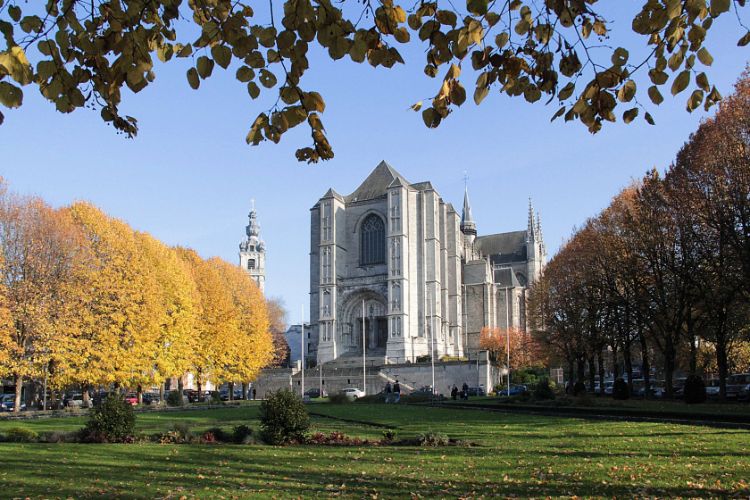Are you fascinated by religious architecture and history? Here are the must-see religious buildings in Europe:
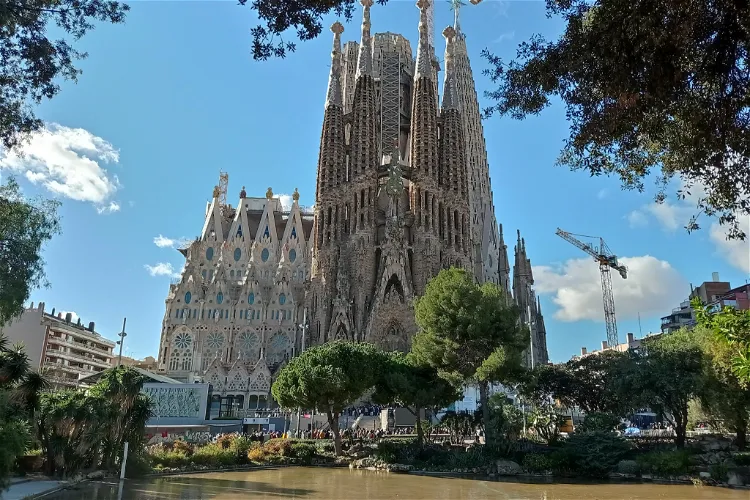
Sagrada Família
BarcelonaThe Sagrada Família, also known as the Temple Expiatori de la Sagrada Família, is an unfinished church located in Barcelona, Catalonia, Spain. This architectural marvel is widely recognized as the masterpiece of the renowned architect Antoni Gaudí.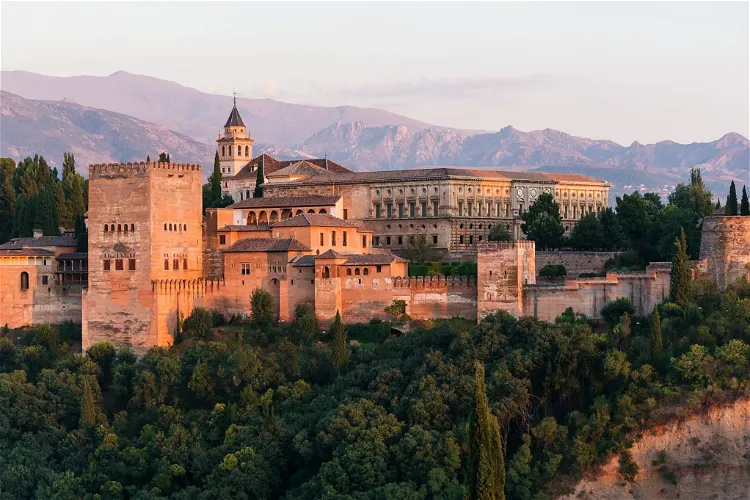
Alhambra
GranadaThe Alhambra, located in the city of Granada in the Andalusian region of Spain, is a historical building that was originally used as a palace and fortress. It was constructed with the architectural style of Islamic Arab, specifically the Kalʿatü'l-Hamrâ. Today, the Alhambra serves as a museum, offering visitors a glimpse into its rich history and architectural beauty.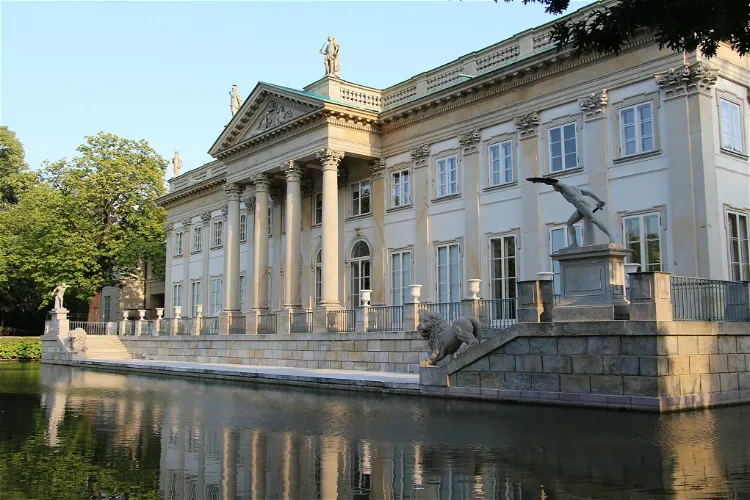
Lazienki Park
WarsawThe Royal Łazienki Park, known in Polish as Park Łazienki Królewskie, is the largest public park in Warsaw, Poland. It covers an expansive area of about 80 hectares, providing ample space for visitors to explore and enjoy. The park is a significant part of Warsaw's landscape, offering a blend of nature and architecture that is unique to the city.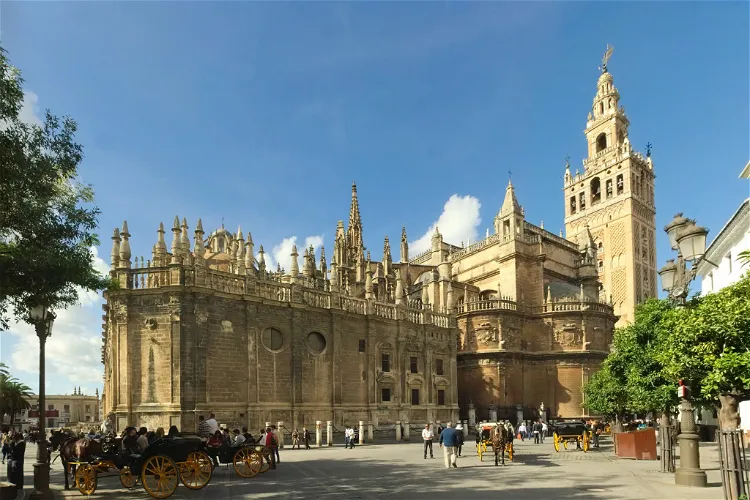
Seville Cathedral
SevilleSeville Cathedral, also known as the Cathedral of Saint Mary of the See, is a significant landmark in Seville, Spain. It holds the distinction of being the world's largest Gothic church and the third largest church overall. This Roman Catholic cathedral is a testament to the architectural prowess of the Gothic era and offers a unique insight into the religious history of Spain.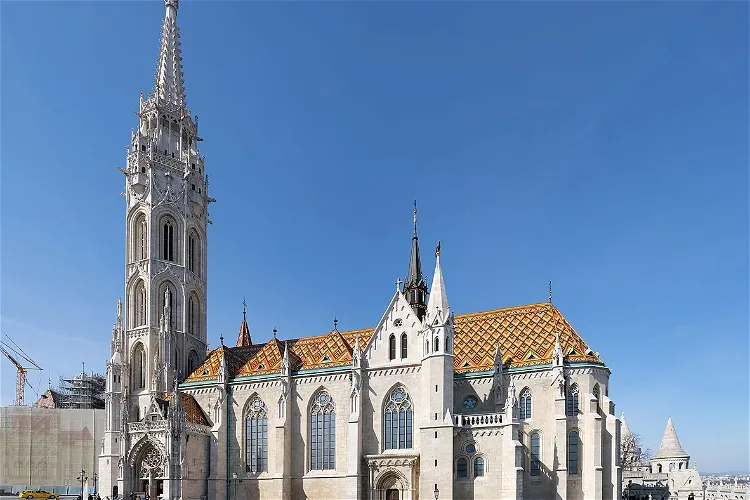
Matthias Church
BudapestThe Matthias Church has seen several modifications over the centuries, with each subsequent king adding their unique touch. These changes include the addition of a tower, a door, and the expansion of the building. Notably, Louis I of Hungary and Sigismund of Hungary carried out Gothic modifications, while Matthias I of Hungary transformed the church in a Renaissance style. These architectural changes offer a visual journey through different historical periods, providing an enriching experience for visitors.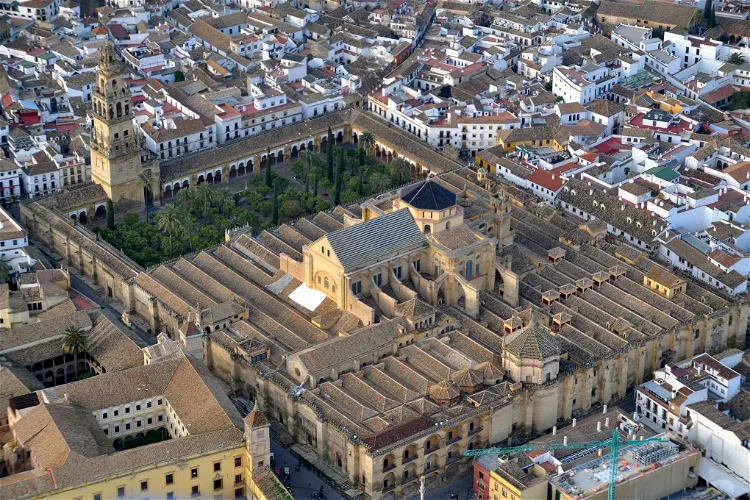
Mosque Cathedral of Córdoba
CórdobaThe Mosque-Cathedral of Córdoba, also known as the Cathedral of Our Lady of the Assumption, is a significant historical and architectural site located in the city of Córdoba, Spain. This structure has served as both a mosque and a cathedral over the centuries, reflecting the city's rich cultural and religious history.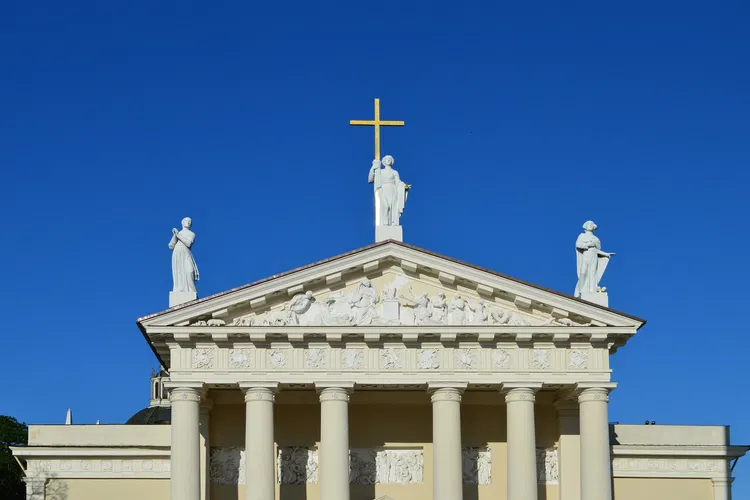
Vilnius Cathedral
VilniusVilnius Cathedral, the principal Catholic church in Lithuania, is situated in the Cathedral Square of Vilnius' historic center. This location is recognized as a UNESCO World Heritage Site, making it a significant landmark in the city. The cathedral's rich history and architectural beauty make it a fascinating place to visit for tourists interested in history, architecture, and religion.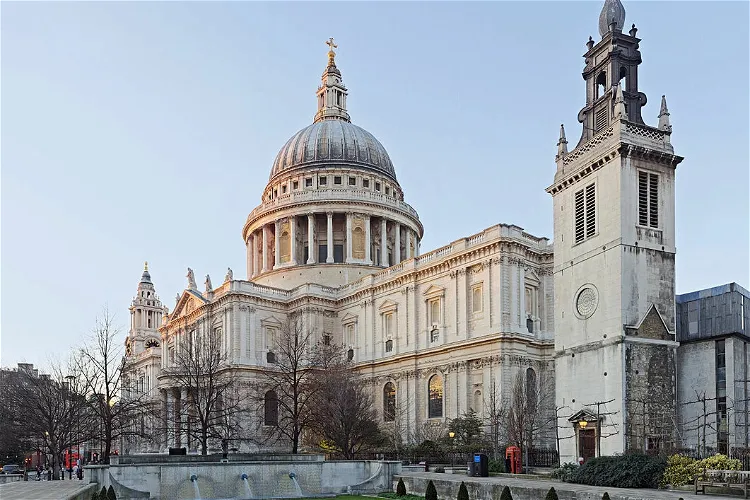
St Paul’s Cathedral
LondonSt Paul's Cathedral, situated on Ludgate Hill in the City of London, serves as the seat of the Anglican Bishop of London. This iconic structure has a rich history and is a significant landmark in the city. Visitors can appreciate the architectural grandeur of the cathedral and learn about its historical significance.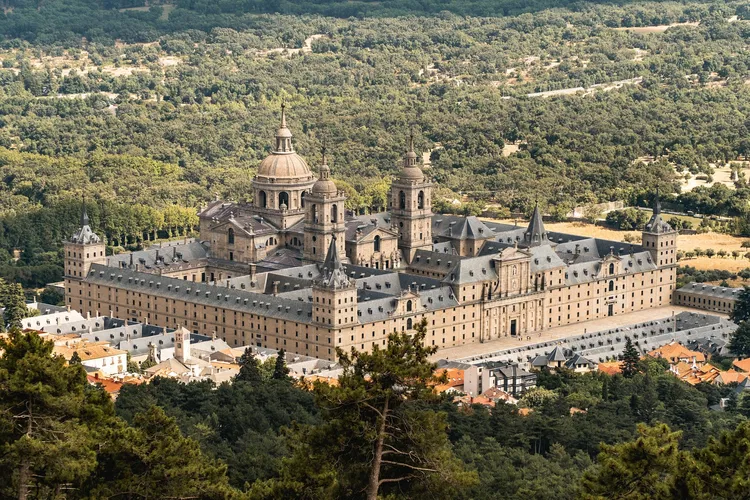
Royal Site of San Lorenzo de El Escorial
MadridEl Escorial, located in the Madrid Autonomous Region at the foot of the Sierra de Guadarrama mountain, is a significant religious and cultural structure. It comprises a monastery, palace, library, and other sections. This complex was used as a residence by King Philip II of Spain, adding to its historical significance.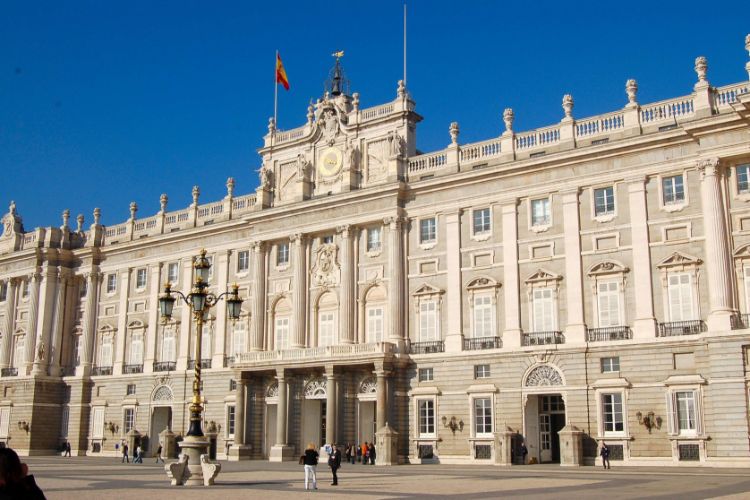
Royal Palace of Madrid
MadridThe Royal Palace of Madrid is the official residence of the Spanish royalty but is used only for state ceremonies. Visitors can see the marvelous interior decorations, made using various materials, from marble to mahogany. The palace is also home to Royal Armoury of Madrid. Surrounded by large and p- Online discount!
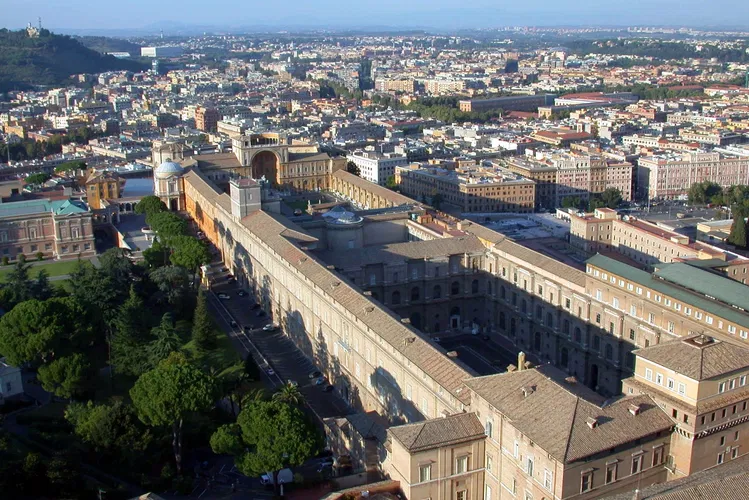
Vatican Museums
RomeThe Vatican Museums, situated in Vatican City, are recognized as some of the largest museums globally. They were constructed by the Roman Catholic Church during the Renaissance period and are renowned for housing a vast collection of significant sculptures. These museums offer a unique opportunity to explore the rich history and artistic heritage of the Catholic Church. 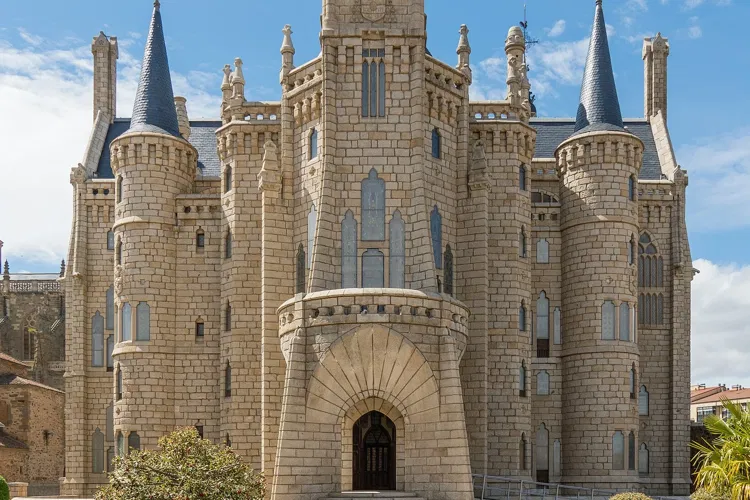
Palace of Gaudí
AstorgaThe Episcopal Palace of Astorga, a masterpiece by the renowned Catalan architect Antoni Gaudí, stands as a testament to the Catalan Modernisme style. Constructed between 1889 and 1913, this architectural marvel is one of only three buildings by Gaudí outside Catalonia. Its unique design and historical significance make it a fascinating destination for those interested in architecture and history.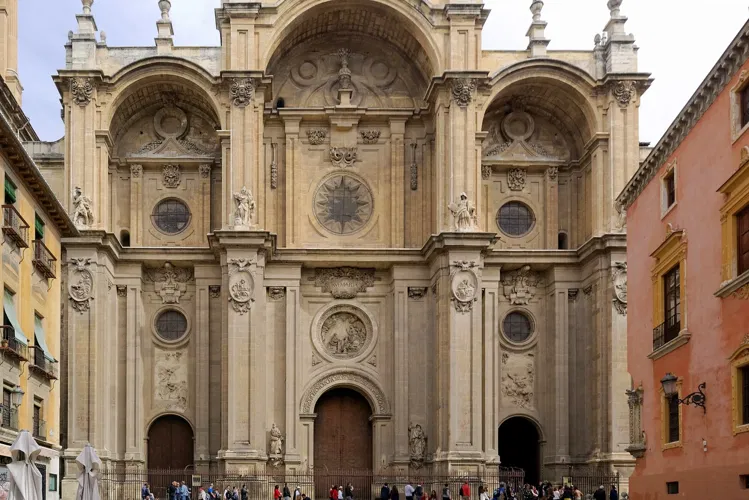
Granada Cathedral
GranadaThe Granada Cathedral, also known as Santa María de la Encarnación de Granada, is a significant religious site located in Granada, southern Spain. It serves as the seat of the Archbishop of Granada. The cathedral's rich history and architectural grandeur make it a notable point of interest for visitors.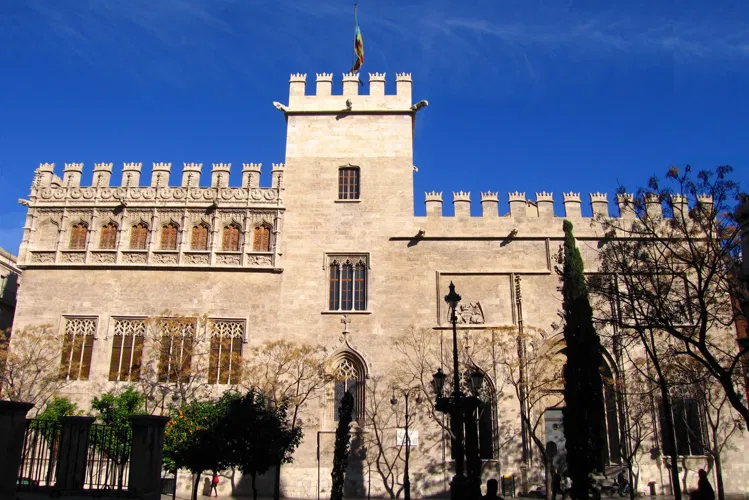
The Silk Exchange
ValenciaThe Silk Exchange, also known as Lonja de la Seda or Llotja de la Seda, is a significant historical building in Valencia, Spain. It showcases the late Valencian Gothic architectural style, making it a unique attraction for those interested in history and architecture.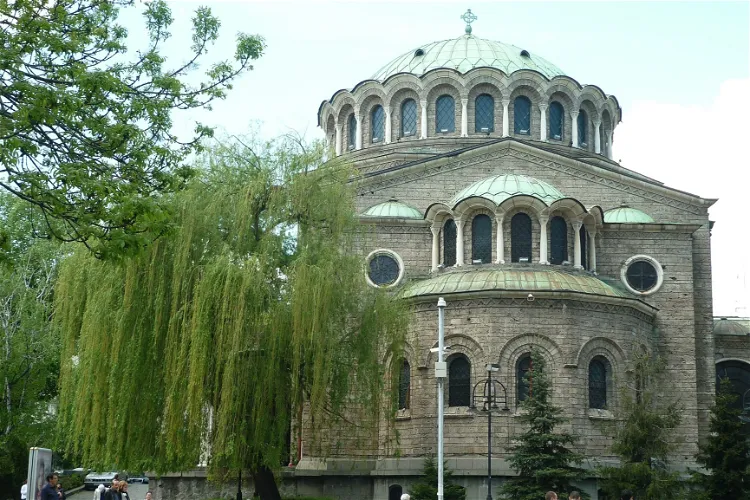
St. Nedelya Church
SofiaSaint Nedelya Cathedral is an Eastern Orthodox cathedral located in Sofia, the capital of Bulgaria. It serves as a cathedral of the Sofia bishopric of the Bulgarian Patriarchate. This religious site is a significant part of the city's spiritual and cultural heritage, offering visitors a glimpse into the rich history and traditions of the Bulgarian Orthodox Church.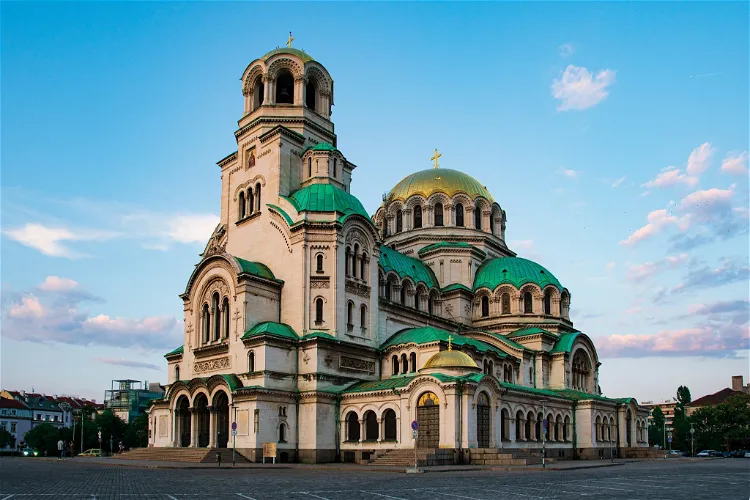
Alexander Nevsky Cathedral
SofiaThe St. Alexander Nevsky Cathedral, located in Sofia, the capital of Bulgaria, is a significant religious and architectural landmark. Constructed in the Neo-Byzantine style, it serves as the cathedral church of the Patriarch of Bulgaria. It is also recognized as one of the 50 largest Christian church buildings by volume globally.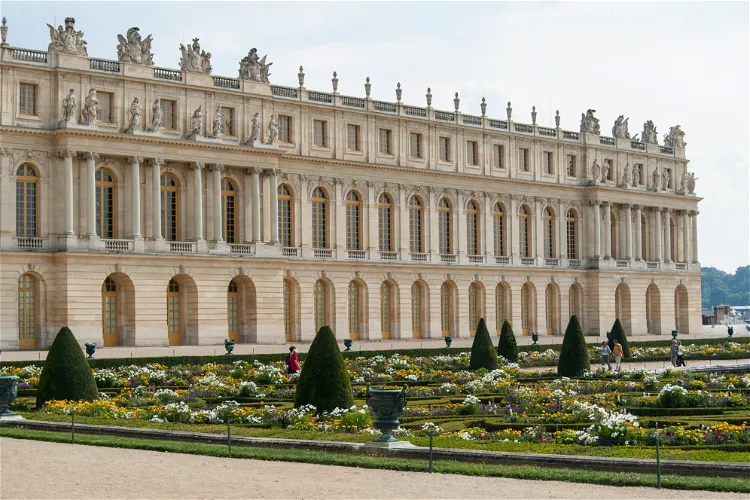
Palace of Versailles
VersaillesThe Palace of Versailles, located in the city of Versailles, is approximately 25 km away from Paris. This grand castle complex is one of the largest in Europe and served as the primary residence for French kings from the mid-17th century until the French Revolution.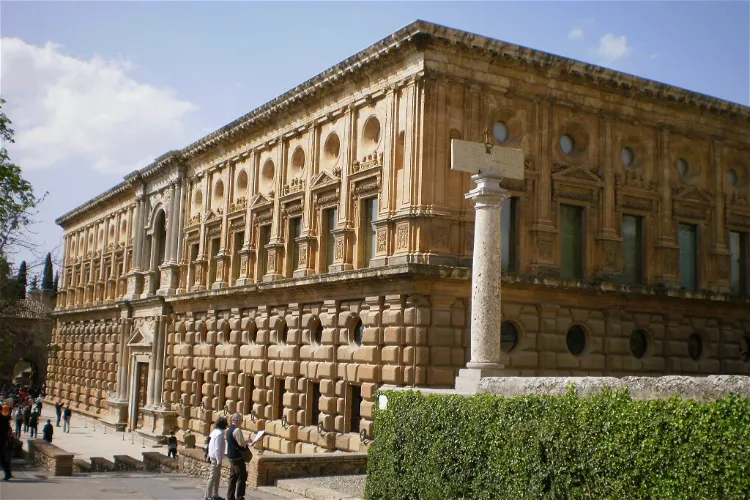
Museum of the Alhambra
GranadaThe Alhambra Museum, previously known as the National Museum of Hispano-Muslim Art, is located in the city of Granada. It is situated in the southern wing of the ground floor of the Palace of Charles V in the Alhambra. This location provides a unique setting for the museum, enhancing the historical and cultural experience for visitors.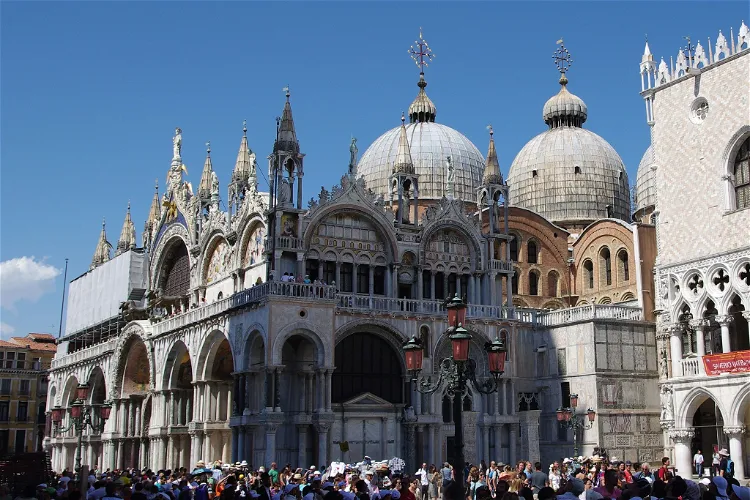
St Mark's Basilica
VeniceSt Mark's Basilica, situated in the heart of St Mark's Square, is a renowned example of Byzantine architecture. This cathedral is one of the most iconic church buildings in the city, showcasing the rich history and architectural prowess of Venice.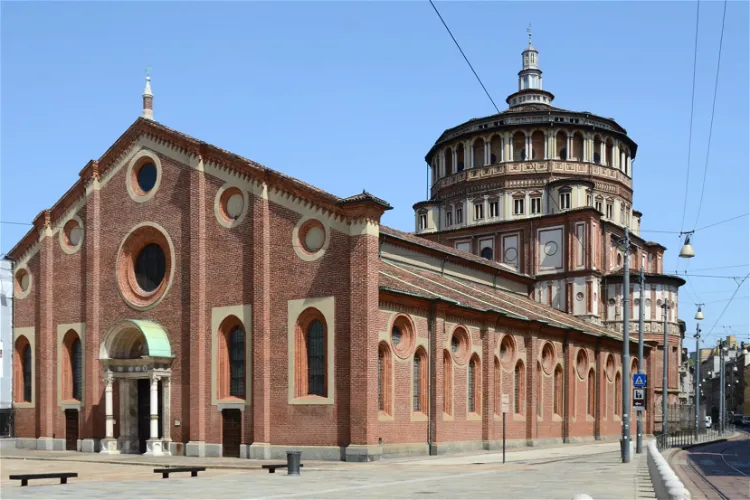
Santa Maria delle Grazie (The last supper)
MilanSanta Maria delle Grazie, located in Milan, northern Italy, is a church and Dominican convent that holds the status of a UNESCO World Heritage Site. This historic site is renowned for its architectural beauty and cultural significance, making it a notable destination for tourists visiting Italy.- 21
St. Stephen's Basilica
BudapestSt. Stephen's Basilica, known as Szent István-bazilika in Hungarian, is a significant religious building in Budapest, Hungary. It is dedicated to St. Stephen I of Hungary, the country's first king and a revered saint. As a Catholic place of worship, the Basilica holds a special place in the hearts of the locals and is a key attraction for visitors to the city. 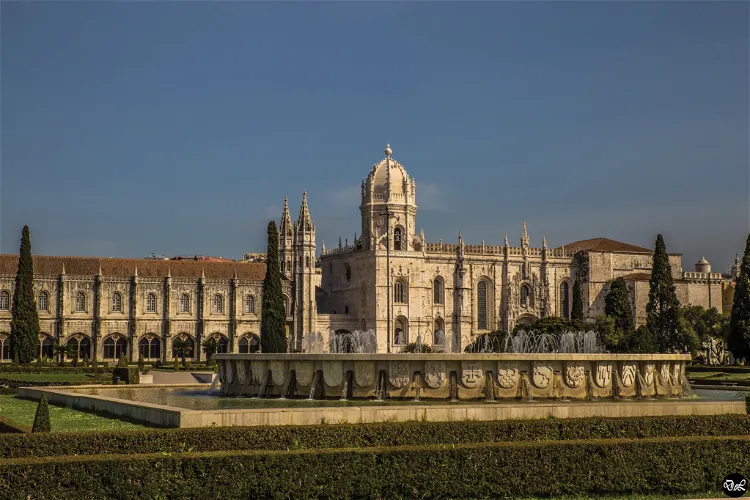
Jerónimos Monastery
LisbonThe Jerónimos Monastery, situated in the Belém district of Lisbon, Portugal, is a significant historical and architectural landmark. It was commissioned by King Manuel I and built by architect Diogo de Boitaca in the Manueline style, a Portuguese version of late Gothic architecture. The monastery was constructed to celebrate the return of the renowned Portuguese navigator Vasco da Gama, who discovered the sea route to India. This discovery marked a significant milestone in world history, opening up new trade routes and opportunities for exploration.
Fraumünster Church
ZurichThe Fraumünster Church in Zürich is a historical site with a rich past. It was originally built on the remains of an abbey for aristocratic women, which was founded in 853 by Louis the German for his daughter Hildegard. This historical context adds a layer of depth to the church's significance and is a testament to its long-standing presence in the city.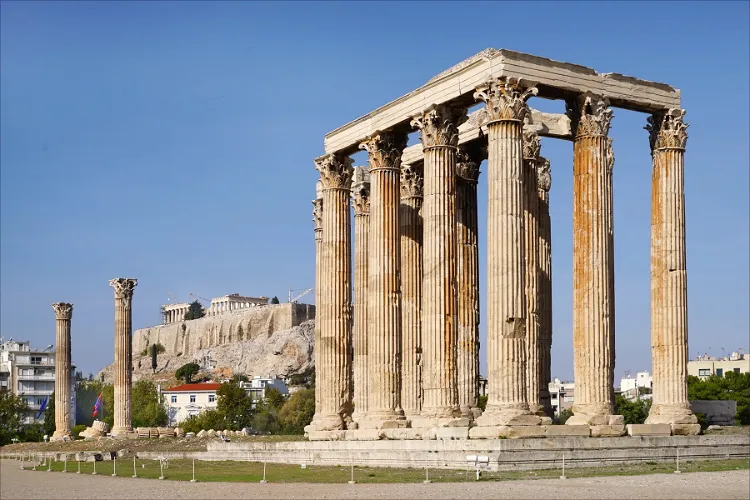
Temple of Olympian Zeus
AthensThe Temple of Olympian Zeus, also known as the Olympieion, is a significant historical site located at the foot of the Acropolis in Athens. This vast temple, of Corinthian order, is a testament to the rich history and architectural prowess of ancient Greece. Today, only fifteen columns of the original structure remain, but these still offer a glimpse into the grandeur of the past.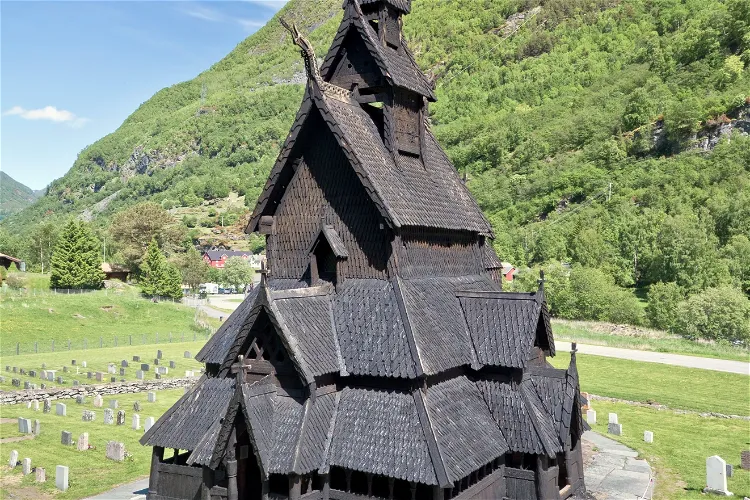
Borgund Stave Church
BorgundThe Borgund Stave Church is a historical monument located in Borgund, within the Lærdal municipality of Sogn og Fjordane county, Norway. This location is easily accessible and offers a unique opportunity to explore a piece of Norway's rich history.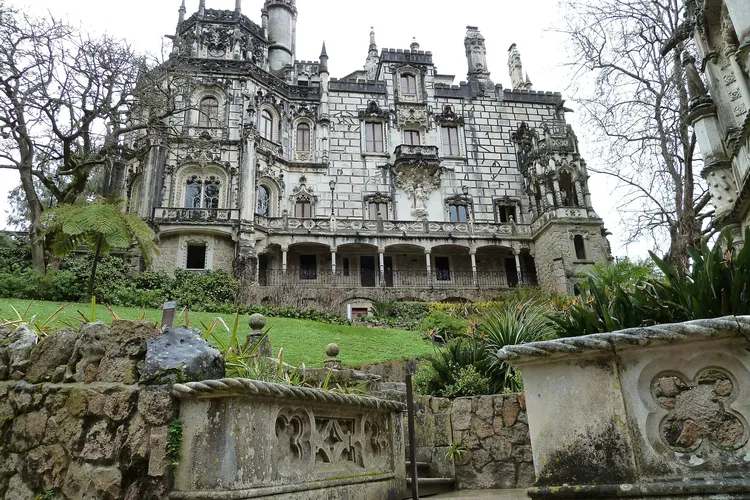
Quinta da Regaleira
SintraThe Quinta da Regaleira is an architectural complex located in the historic center of Sintra, Portugal. This city is recognized as a World Heritage Site by UNESCO, making it a significant location for cultural and historical exploration. The palace and gardens of Quinta da Regaleira were created by António Augusto Carvalho Monteiro with the help of architect Luigi Manini and cover an area of 4 hectares today.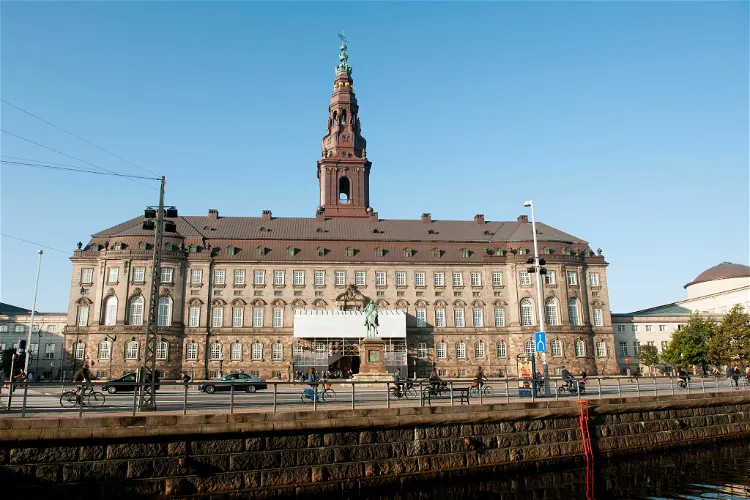
Christiansborg Palace
CopenhagenChristiansborg Palace, situated on the islet of Slotsholmen in central Copenhagen, is a unique blend of a palace and a government building. This dual function makes it a significant landmark in Denmark, offering visitors a glimpse into the country's political and royal history.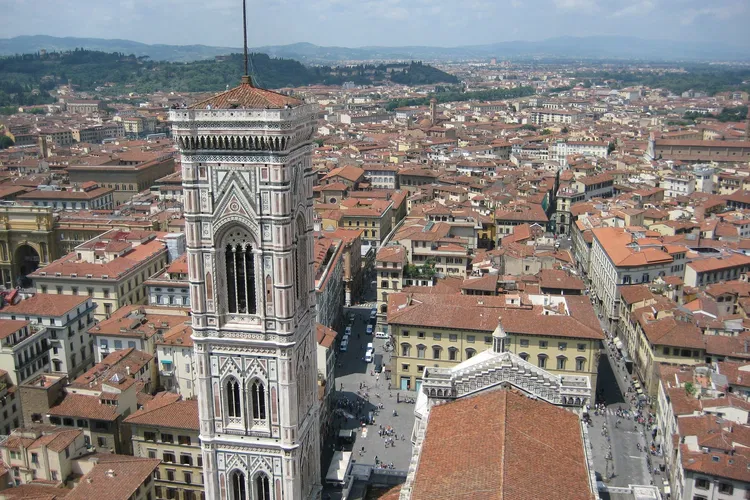
Giotto's Bell Tower
FlorenceGiotto's Bell Tower, located in Duomo Square in Florence, Italy, is a standalone bell tower that forms part of the complex complementing the Florence Cathedral. This architectural marvel is a significant part of Florence's Gothic architecture and is worth a visit for its rich plastic arts decoration and colorful marble plating.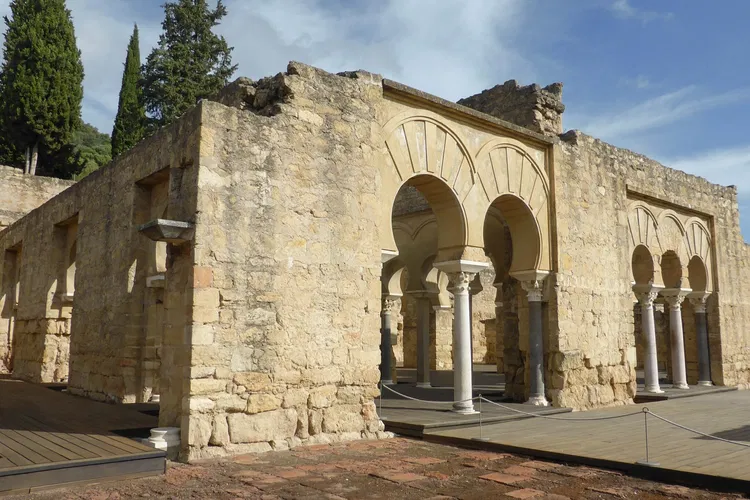
Madinat al-Zahra
CórdobaMadīnat az-zahrāʾ, also known as Medina Azahara, is a historical site located in southern Spain. It is situated approximately eight kilometers west of Córdoba and offers a panoramic view of the valley and the city of Córdoba. This former palace city is a significant part of Spain's rich history and is a fascinating destination for tourists interested in historical and architectural exploration.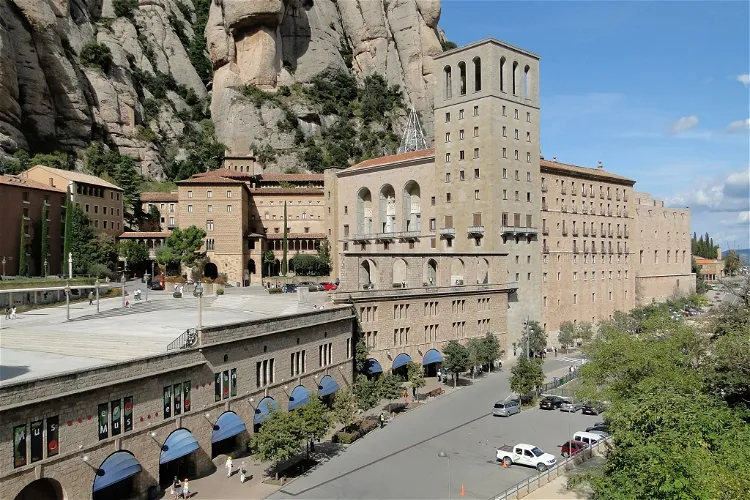
Montserrat Monastery
Monistrol de MontserratThe Montserrat Monastery, a Benedictine abbey, is situated in Catalonia. It is perched at an altitude of 720 meters on the eastern side of the Montserrat mountain, within the municipality of Monistrol de Montserrat. This location offers visitors a unique opportunity to experience the tranquility and beauty of the mountainous landscape while exploring the historical and religious significance of the monastery.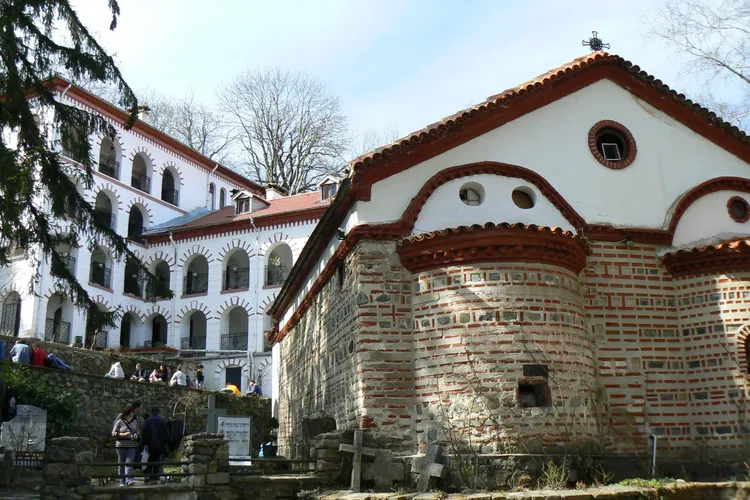
Dragalevtsi Monastery
SofiaThe Dragalevtsi Monastery of the Holy Mother of God of Vitosha is a Bulgarian Orthodox monastery situated on the lower slopes of Vitosha mountain, on the outskirts of Sofia, the capital of western Bulgaria. This location offers a serene and tranquil environment, making it an ideal place for tourists seeking peace and quiet. The monastery's location also provides a stunning view of the surrounding landscape, adding to its appeal for visitors.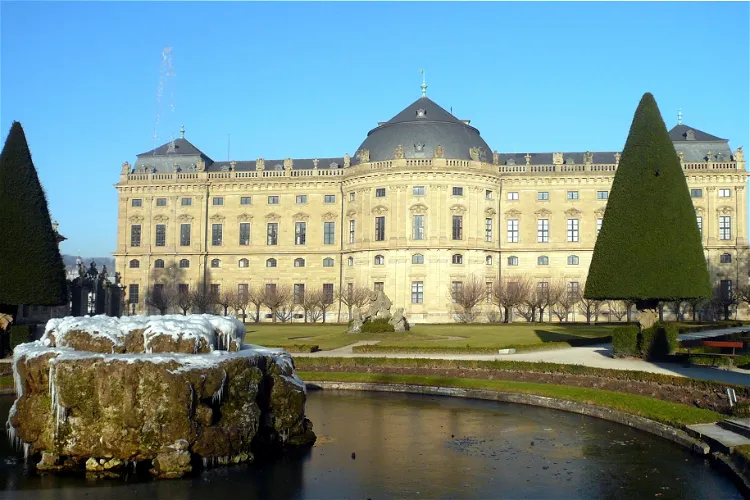
Würzburg Residence
WürzburgThe Würzburg Residence is a former episcopal palace and a combination of rococo and baroque architecture. This historical building, which was built on the orders of the two prince-bishops von Schönborn, is a testament to the architectural prowess of the 18th century. The construction lasted from 1720 to 1744 and was designed by Johann Balthasar Neumann. The late baroque residence is considered one of the most important of its kind.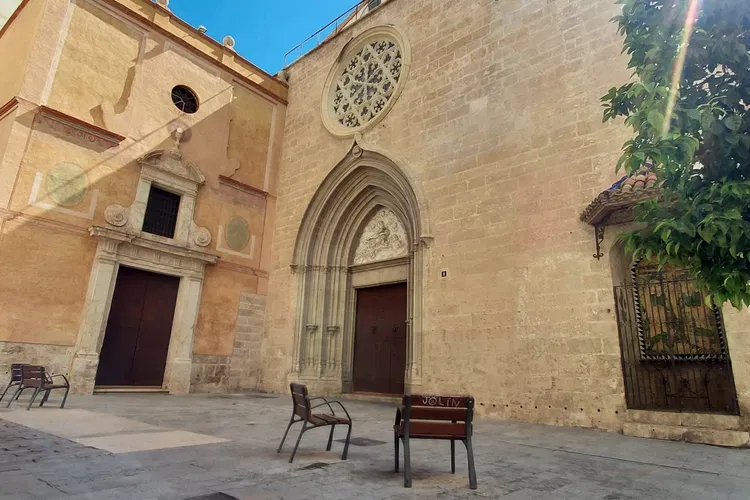
Church of San Nicolás
ValenciaThe Church of St. Nicholas and Peter, also known as the 'Sistine Chapel of Valencia', is one of the city's main attractions. Located in the El Carmen district in the historical center of Valencia, the church is renowned for its ceiling paintings. However, due to its location, it can be somewhat difficult for visitors to find as it is largely surrounded by other buildings.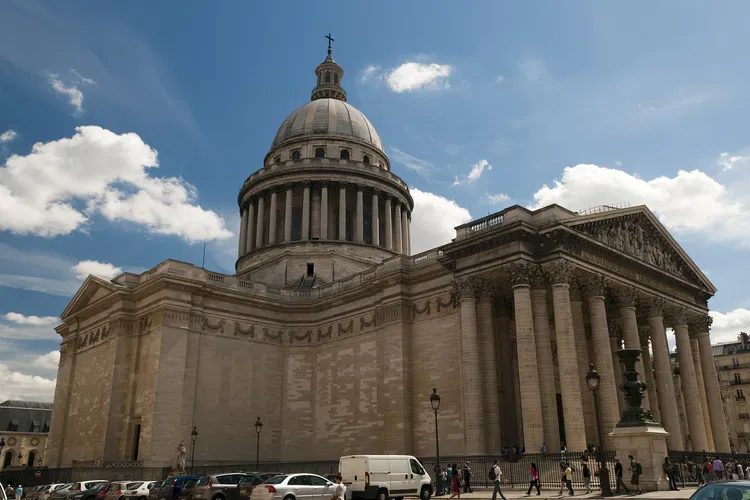
Panthéon
ParisThe Panthéon, located in the 5th arrondissement of Paris, is a significant historical monument. Originally, it was constructed as a church dedicated to Sainte-Geneviève in the 18th century. The architect behind this grand structure was Jacques Germain Soufflot. His vision was to create a classical building with the lightness of a Gothic cathedral. However, due to structural reasons, the open walls were made more massive during construction.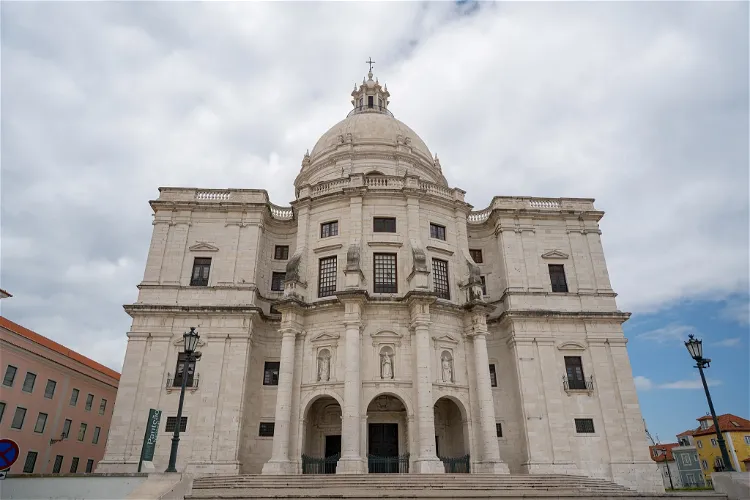
National Pantheon
LisbonThe Church of Santa Engrácia, a 17th-century monument in Lisbon, Portugal, serves as the National Pantheon. This historic site is the final resting place of many significant Portuguese personalities. Its location in the Alfama neighbourhood places it near another notable Lisbon monument, the Monastery of São Vicente de Fora.- Online discount!
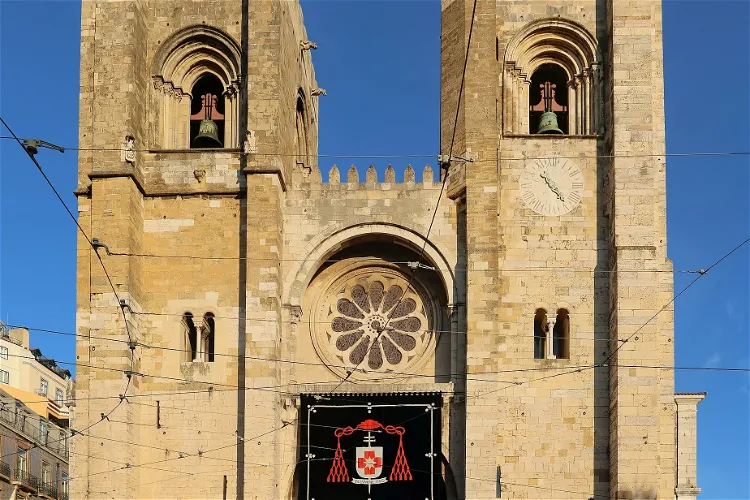
Lisbon Cathedral
LisbonSanta Maria Maior de Lisboa, also known as Sé de Lisboa, is the oldest church in Lisbon, Portugal. Its construction began in 1147 and has undergone several renovations. The cathedral has survived many major earthquakes, which is why it reflects different architectural styles today. This historical monument stands as a testament to the city's resilience and architectural evolution over the centuries. 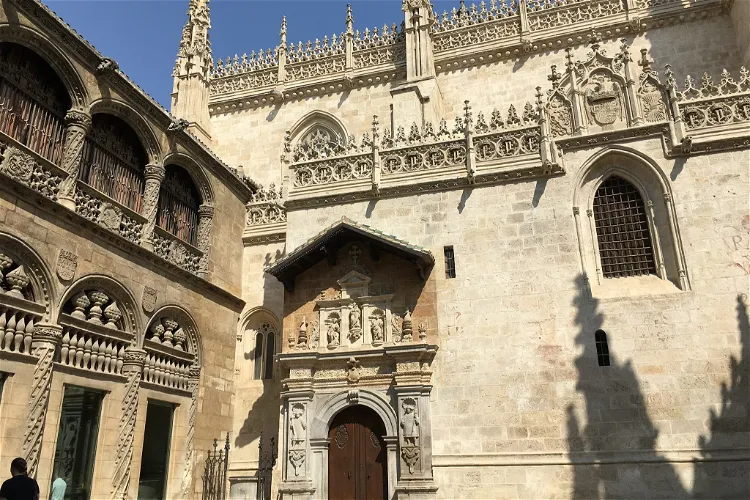
Royal Chapel of Granada
GranadaThe Cathedral of Granada, also known as Santa María de la Encarnación de Granada, is a significant religious site in southern Spain. It serves as the seat of the Archbishop of Granada. This historical monument is located in the heart of Granada, making it easily accessible for tourists.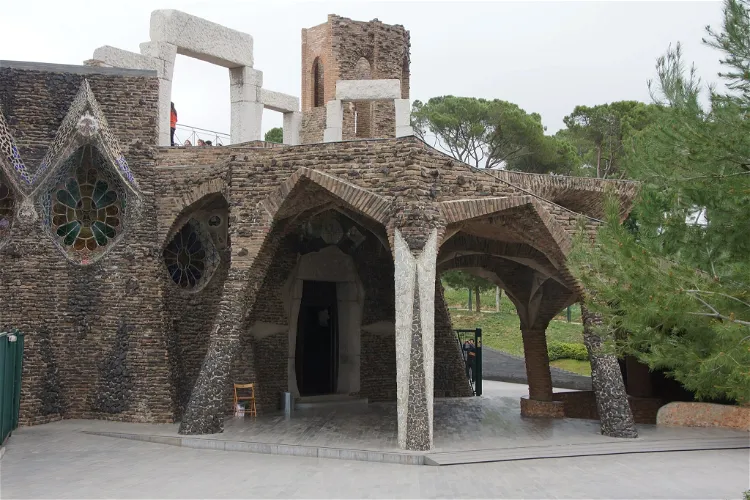
Church of Colònia Güell
Santa Coloma de CervellóThe church was commissioned by Gaudí's patron Eusebi Güell, but unfortunately, there was not enough money to finish it in the end. Gaudí managed to build only the crypt, but it is still worth visiting mainly for its exquisite interior and stained glass windows. It was declared a World Heritage Site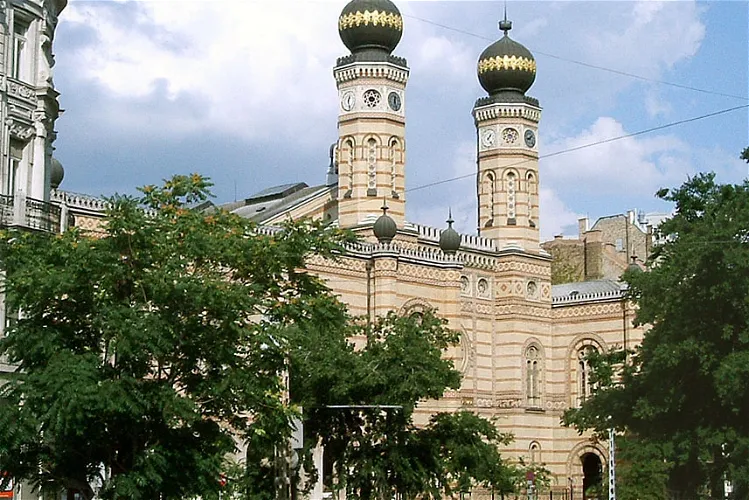
Dohány Street Synagogue
BudapestThe Dohány Street Synagogue, also known as the Great Synagogue, is a significant landmark in Budapest. It is located in the Erzsébetváros district, in the 7th arrondissement of Budapest. This location is easily accessible and is surrounded by other notable sites, making it a convenient stop for tourists exploring the city.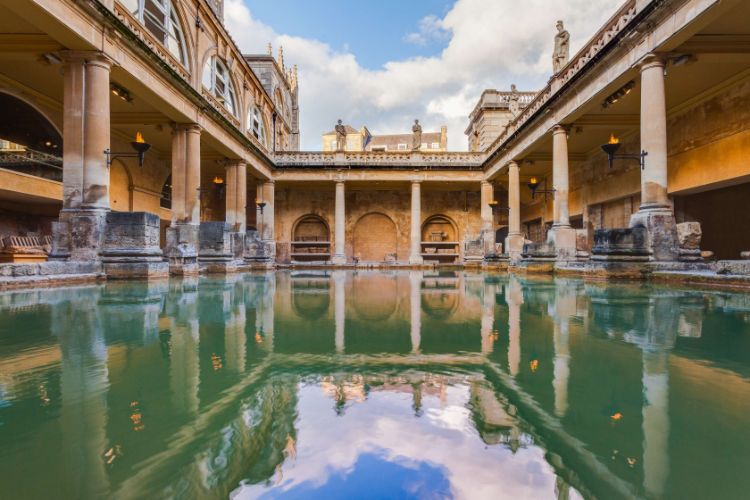
The Roman Baths
BathThe Roman Baths complex, located in the English city of Bath, is a historical site that offers a unique glimpse into the past. This well-preserved Roman public bathing site is situated below the level of the modern street and features four main points of interest: the Sacred Spring, the Roman Temple, the Roman Baths, and a museum housing artifacts discovered during excavations. The buildings at street level date back to the 19th century, adding another layer of historical interest to the site.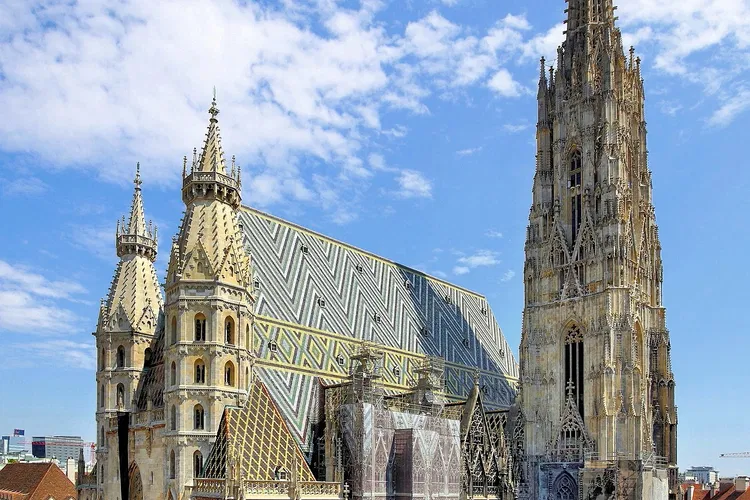
St. Stephen's Cathedral
ViennaSt. Stephen's Cathedral, also known as Stephansdom, is a Roman Catholic cathedral located in Vienna, the capital of Austria. It serves as the seat of the Archbishop of the Austrian Archdiocese of Vienna. This cathedral is not only a place of worship but also a symbol of Austrian history and identity.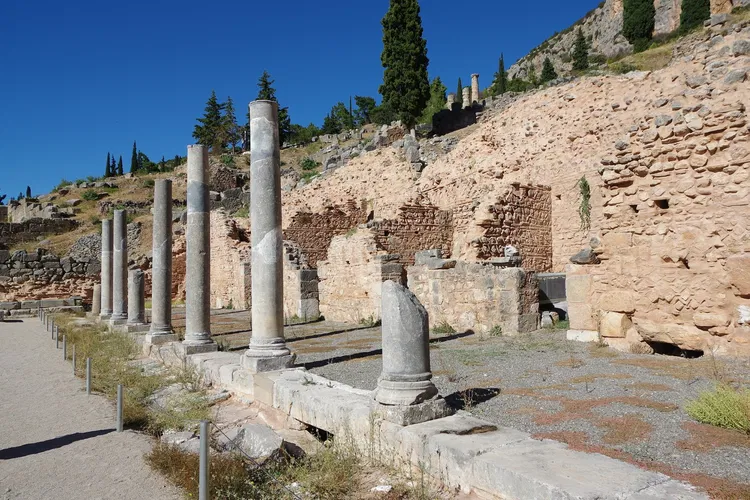
Ágora Romana
AthensThe Roman Agora, an ancient public square in Athens, is a significant historical site that offers a glimpse into the city's past under Roman rule. It is conveniently located a bit east of the original Agora and north of the Acropolis, in the current Plaka neighborhood, near Monastiraki square. This location makes it easily accessible for tourists exploring the city.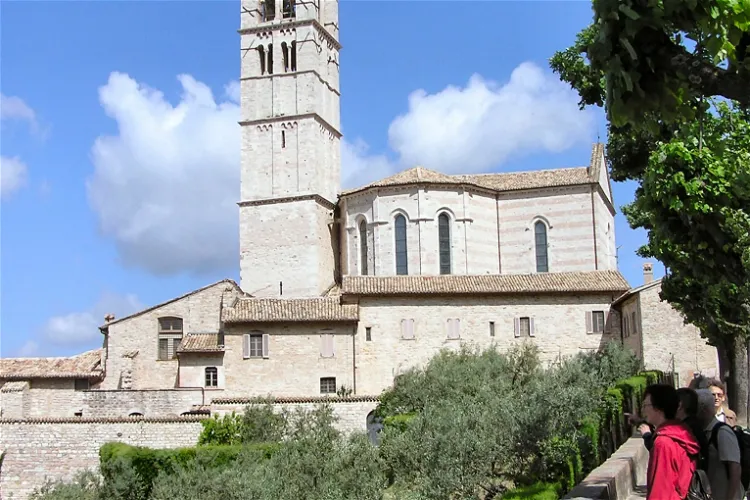
Basilica of Saint Clare
AssisiThe Basilica of Santa Chiara, located in Assisi, Umbria, Italy, is a church dedicated to Saint Clare of Assisi. This historic site is a significant place of worship and a testament to the life and works of Saint Clare. Visitors can explore the church's architecture and learn about its rich history.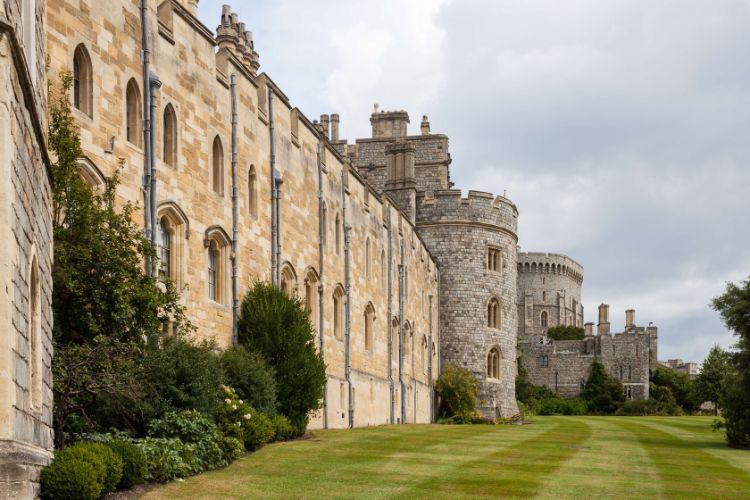
Windsor Castle
WindsorWindsor Castle, located in the town of Windsor in Berkshire County, is a royal castle with a rich history. It is renowned for its long-standing association with the English and later British royal family, as well as its impressive architecture. This castle has been a significant part of British history and culture, making it a fascinating destination for tourists interested in history, architecture, and the royal family.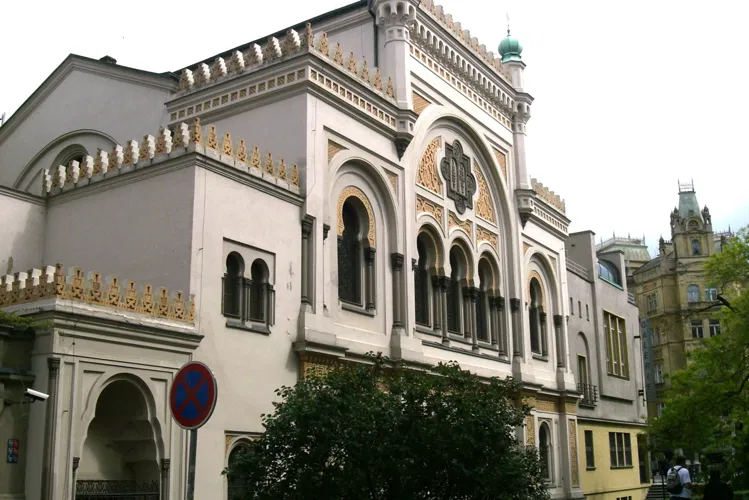
Spanish Synagogue (Prague)
PragueThe Spanish Synagogue, located in the Jewish Town of Prague, Czech Republic, is a former Conservative Jewish synagogue. It was completed in 1868 and is a beautiful example of Moorish Revival style architecture. This style was inspired by the art of the Arabic period of Spanish history, which is presumably why the synagogue was named 'Spanish'.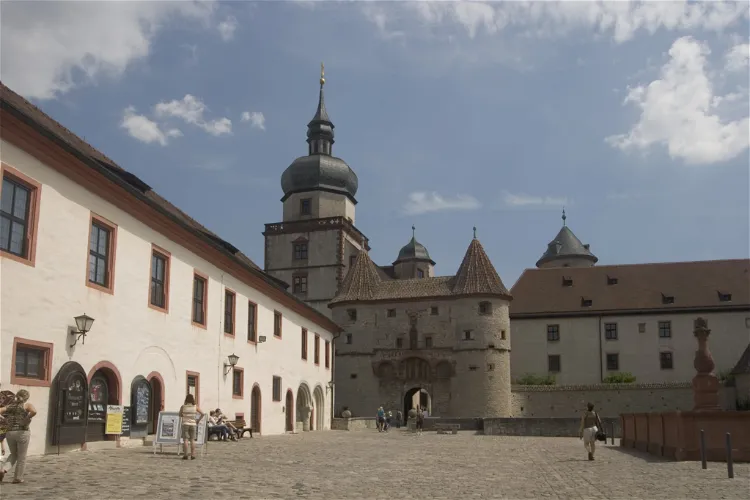
Marienberg Fortress
WürzburgMarienberg Fortress, the oldest structure in the city of Würzburg, Germany, stands on a hill by the Main River. This historic site was once the residence of counts before becoming the seat of prince-bishops. Its strategic location and rich history make it a fascinating destination for tourists interested in history and architecture.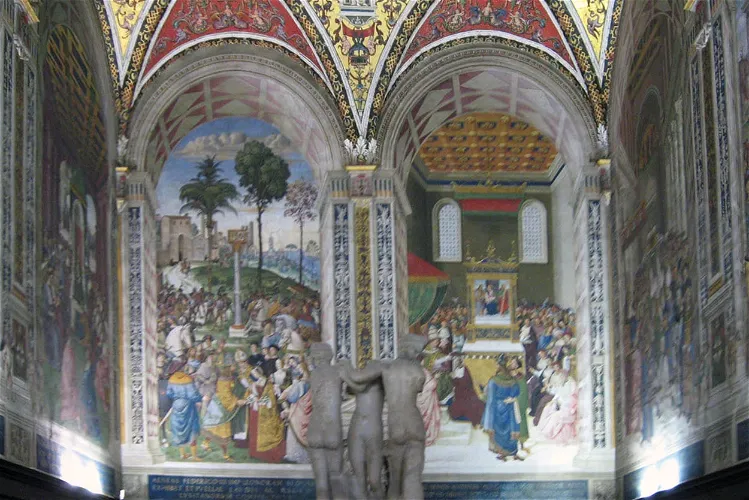
Piccolomini Library
SienaThe Piccolomini Library, located within the Siena Cathedral, is a significant historical site dedicated to the life of Pope Pius II. The library was established by his nephew, Cardinal Francesco Piccolomini, who was also the Bishop of Siena. The library houses precious book collections of the humanist Pope, Enea Silvio Piccolomini, who passed away in 1464. The library's entrance is from within the cathedral itself.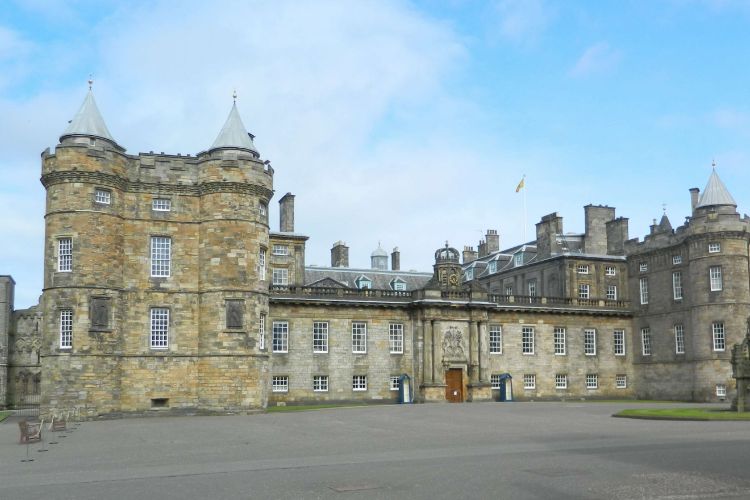
The Palace of Holyroodhouse
EdinburghThe Palace of Holyroodhouse, colloquially known as Holyrood Palace, has a rich history dating back to 1128 when it was founded as a monastery by David I of Scotland. Since the 16th century, it has served as the primary residence of the Scottish monarchs, with its last inhabitant being Queen Mary Stuart. This historical significance makes it a fascinating destination for those interested in Scottish history and royal residences.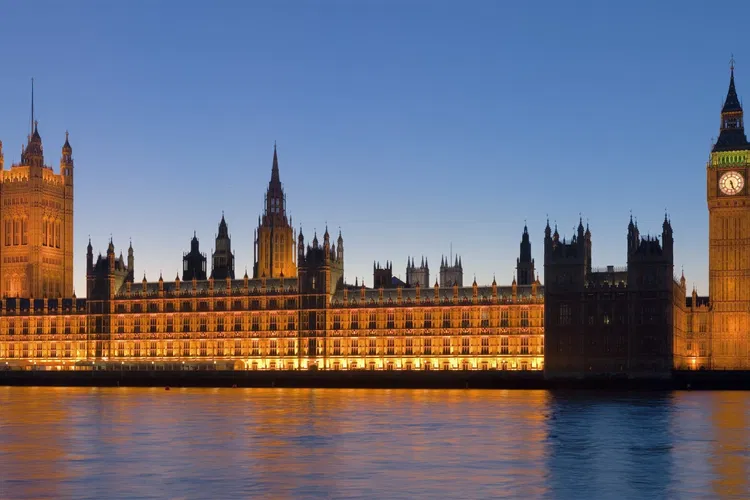
The Palace of Westminster - Houses of Parliament
LondonThe Palace of Westminster, also known as the Houses of Parliament, is a significant landmark located on the banks of the Thames in the London district of Westminster. This historic building serves as the seat of the British Parliament, making it a central hub of political activity in the United Kingdom. Its location offers visitors a picturesque view of the Thames, adding to the overall appeal of the site.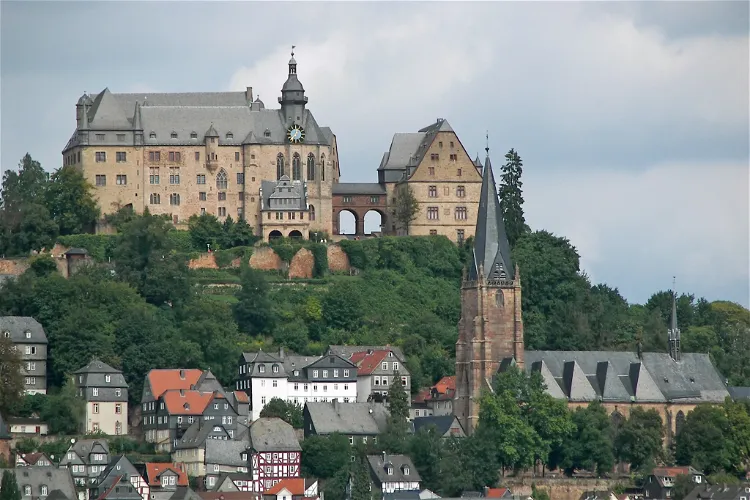
Marburger Schloss
MarburgMarbach Castle, located in the German city of Marburg, is a significant historical site. The city of Marburg originally formed around this fortress, which was constructed in stages starting from the 11th century. This castle has witnessed numerous historical events and changes, making it a fascinating destination for those interested in history and architecture.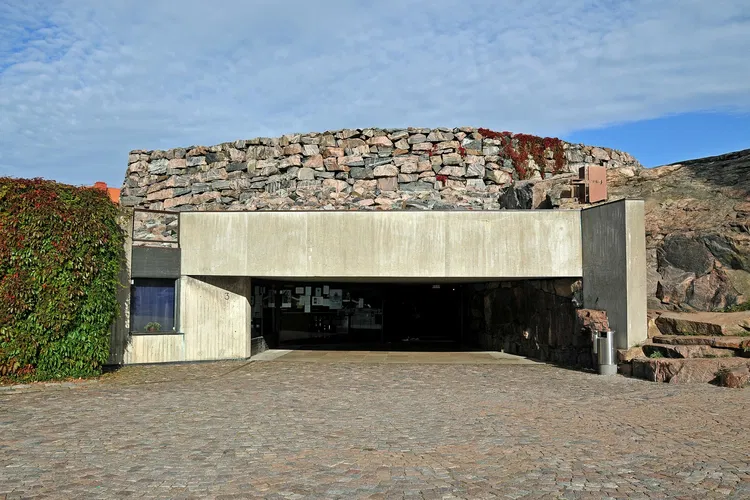
Temppeliaukio Church
HelsinkiThe Temppeliaukio Church, also known as the Church of the Rock or Rock Church, is a Lutheran church located in the Töölö neighbourhood of Helsinki, Finland. It was designed by the architect brothers Timo and Tuomo Suomalainen and was opened to the public in 1969. The church is unique in its design as it is built directly into solid rock, giving it its popular names.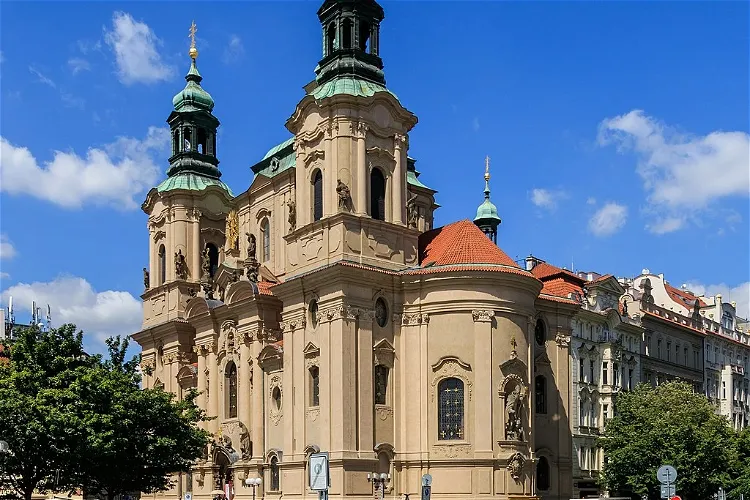
Saint Nicolas Church
PragueSt. Nicholas Church, situated in the old town area of Prague, is steeped in history. Its first mention dates back to a document from 1273, making it one of the oldest churches in the area. This historical significance adds a layer of depth to any visit, allowing tourists to step back in time and experience a piece of Prague's rich past.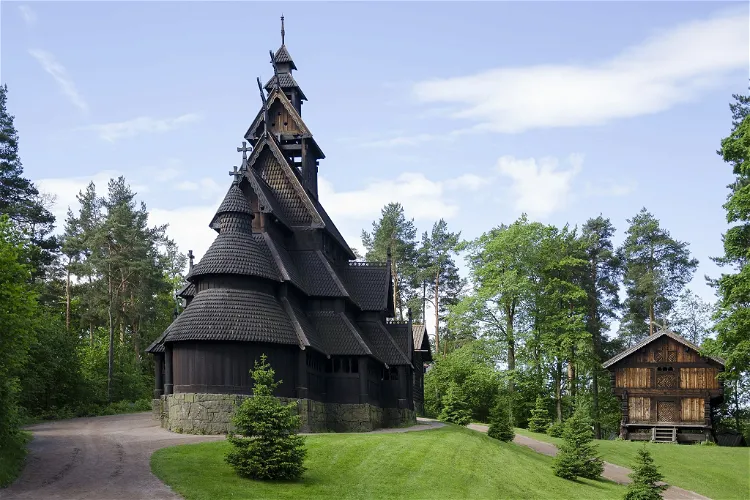
The Norwegian Museum of Cultural History
OsloThe Norwegian Museum of Cultural History, also known as Norsk Folkemuseum, is located in Bygdøy, Oslo, Norway. It is a cultural history museum that houses extensive collections of artifacts from all social groups and regions of the country. This provides a comprehensive insight into the diverse cultures and histories of Norway.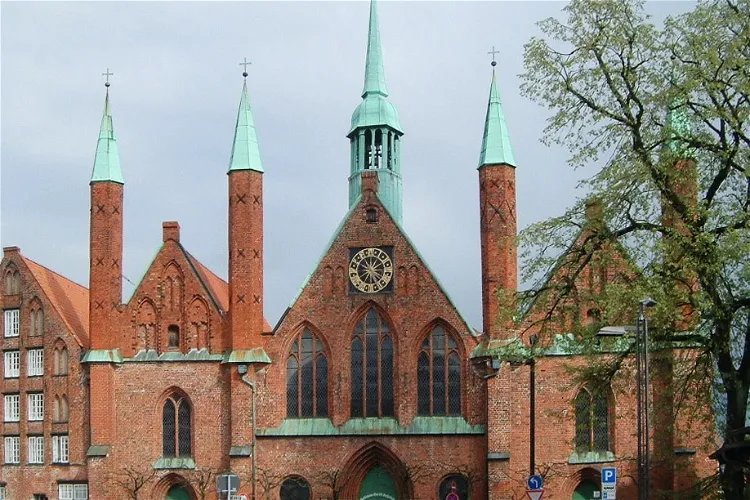
Hospital of the Holy Spirit
LübeckThe Hospital of the Holy Spirit, or Heiligen-Geist-Hospital, is a significant historical landmark in Lübeck. Constructed between 1227 and 1286, it stands as one of the best-preserved medieval hospices in Germany and is recognized as one of the oldest social institutions in Europe. Its rich history and architectural grandeur make it a fascinating destination for tourists interested in history, architecture, and social institutions.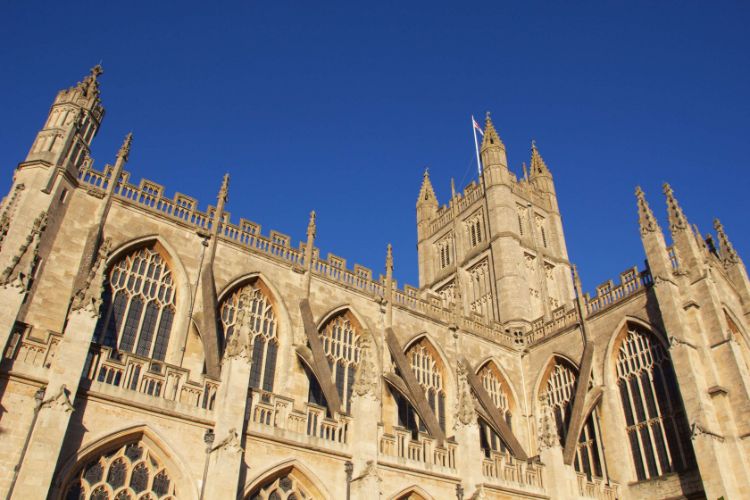
Bath Abbey
BathBath Abbey, also known as the Abbey Church of Peter & Paul, is an Anglican parish church located in Bath, Somerset, England. It was formerly a Benedictine monastery and was founded in the 7th century. The church underwent reorganization in the 10th century and was rebuilt in the 12th and 16th centuries. It is one of the largest examples of Perpendicular Gothic architecture in the West Country.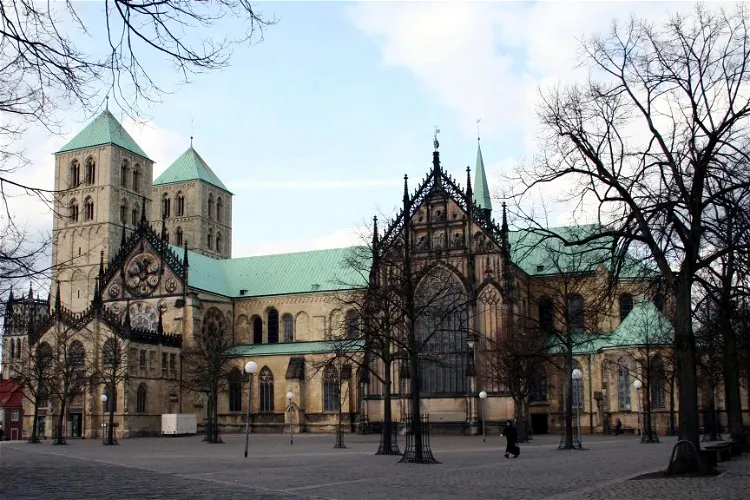
St. Paul's Cathedral, Münster
MünsterSt. Paul's Cathedral, also known as St.-Paulus-Dom, is a significant monument in the city of Münster, Germany. It stands as a testament to the city's rich history and architectural prowess. The cathedral's grandeur and prestige make it a notable point of interest for tourists visiting Münster.
DomQuartier Salzburg
SalzburgThe DomQuartier Salzburg, established in 2014, is a museum complex located in the city of Salzburg. It offers a unique blend of architectural structures and a display of both secular and sacred art collections centered around the Salzburg Cathedral and the Cathedral Square. The establishment of the DomQuartier has made several previously inaccessible areas open to the public.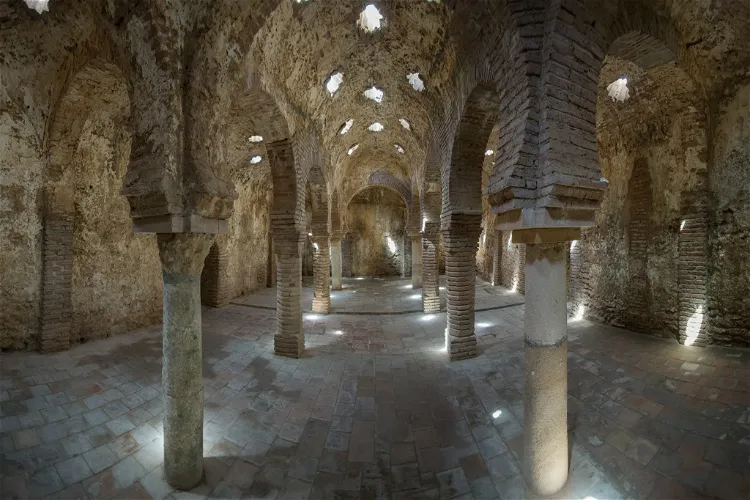
Arab Baths
RondaVisit the richly ornate spa complex that is really extraordinarily well preserved. Situated in a charming old quarter, too.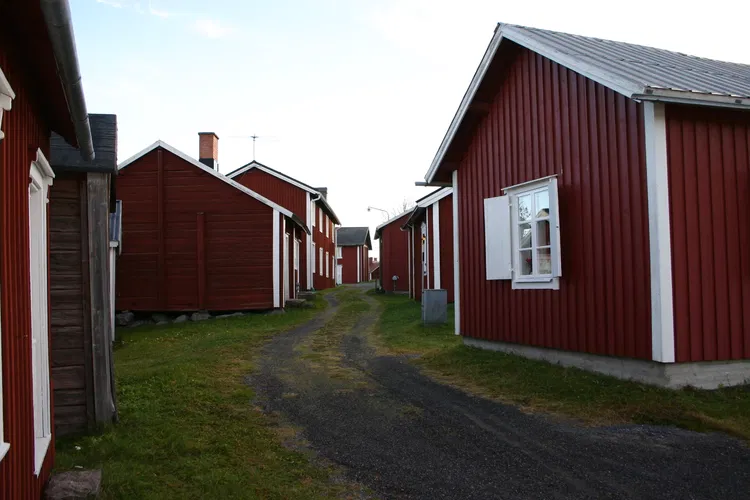
Gammelstad Church Town
LuleåGammelstad Church Town is a UNESCO World Heritage Site, located 10 km north of Luleå, Sweden. It is situated at the northern end of the Gulf of Bothnia, making it a significant historical and cultural site. The town is a well-preserved example of a 'church town', a type of settlement that was once common in northern Scandinavia. Its unique architecture and rich history make it a fascinating destination for tourists.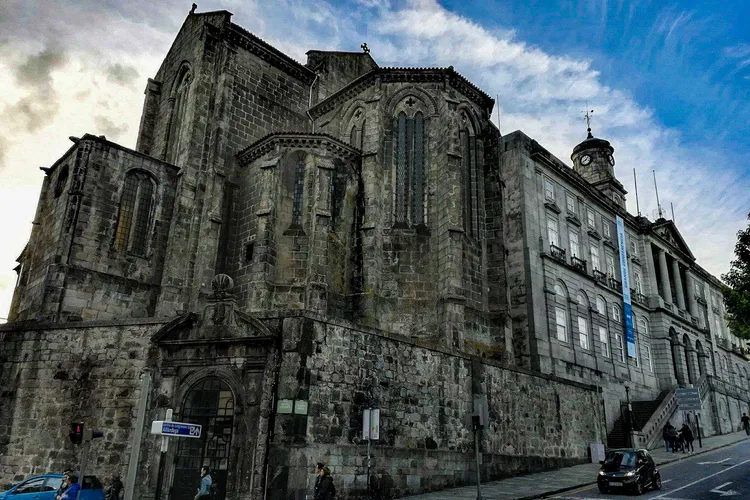
Church of São Francisco
PortoThe Church of São Francisco is a significant historical site in Porto. It is a Gothic church that was built in the 14th century as part of a Franciscan convent. The church is located in the historic center of Porto, making it easily accessible for tourists. The church's architecture and history make it a fascinating place to visit.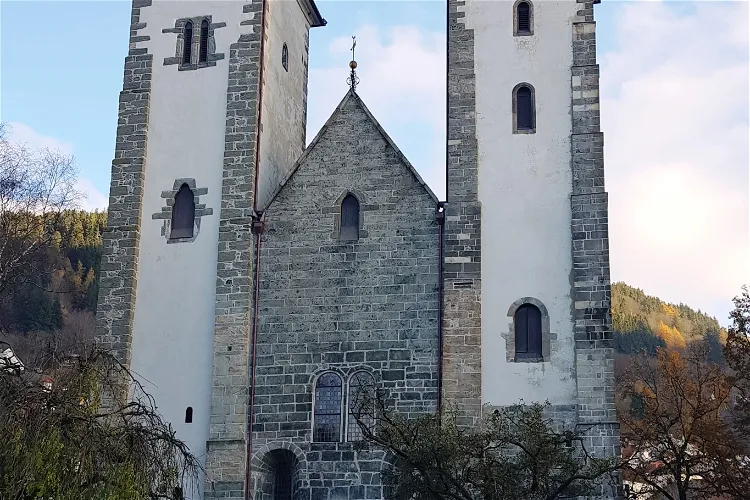
St. Mary's Church
BergenSt Mary's Church, also known as Mariakyrkja or Mariakirken, is a significant religious site located in the heart of Bergen, Norway. Situated in the Bryggen area, this parish church is part of the Church of Norway and is easily accessible due to its central location. It is one of the churches for the Bergen Cathedral parish, which is part of the Bergen domprosti (arch-deanery) in the Diocese of Bjørgvin.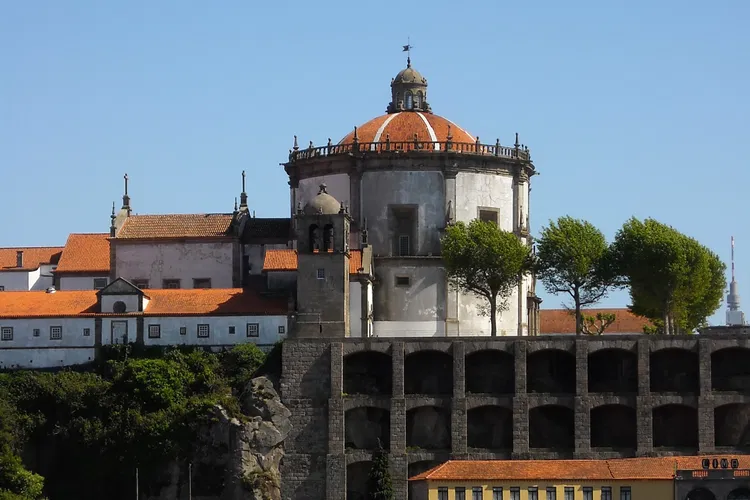
Monastery of Serra do Pilar
Vila Nova de GaiaThe Monastery of Serra do Pilar is a historical site located in Vila Nova de Gaia, Portugal. It is situated on the opposite side of the Douro River from Porto. This former monastery offers a unique perspective of the city and its surroundings.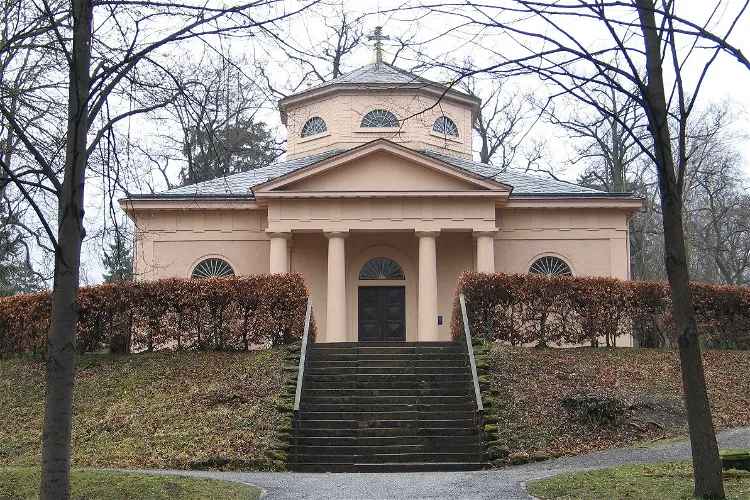
Classical Foundation Weimar
WeimarThe Klassik Stiftung Weimar, or Classical Foundation Weimar, is a major cultural institution in Germany. It boasts an impressive collection of over 20 museums, palaces, historic houses, and parks, along with a vast array of literary and art collections. This makes it a significant destination for those interested in exploring Germany's rich cultural history.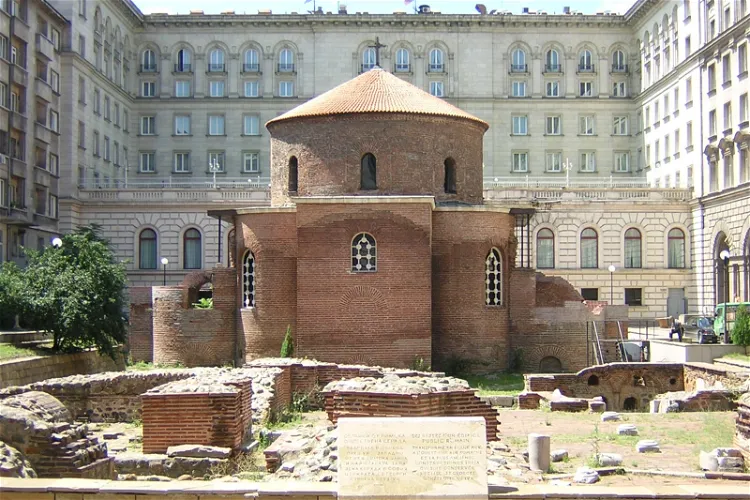
The Rotunda Church of St George
SofiaThe Rotunda of St. George, an early Christian church, is a significant historical site located in the heart of Sofia, Bulgaria. Constructed from red brick, the church is situated in the area known as Serdica, which is the historical center of the city. This location offers visitors a chance to explore the rich history of Sofia and its early Christian roots.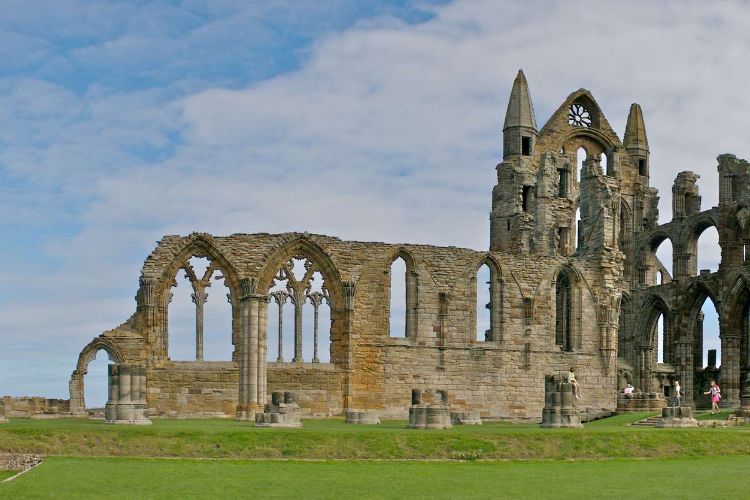
Whitby Abbey
WhitbyCholmley House, also known as Whitby Hall, is a historic banqueting house located adjacent to the ruins of Whitby Abbey in North Yorkshire, England. This significant structure was built in 1672 by Sir Hugh Cholmeley, a member of a family that had acquired the Abbey ruins and the surrounding land after its dissolution in 1539. The Cholmeley family resided in what had been the Abbey's gatehouse and guest lodgings until the construction of the house.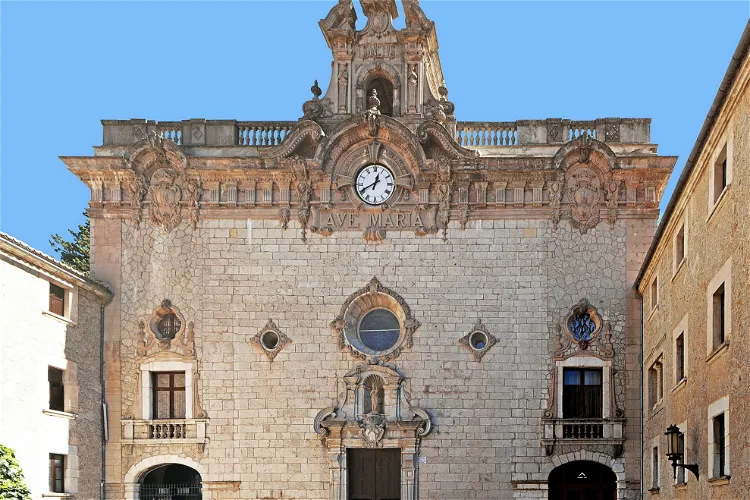
Lluc Sanctuary
EscorcaThe Lluc Sanctuary, also known as Santuari de Santa Maria de Lluc, is a significant religious site located in the Spanish municipality of Escorca. It is situated about 400 meters above sea level, nestled in the Tramontana mountain range on the island of Mallorca. This location offers visitors a unique blend of spiritual significance and natural beauty.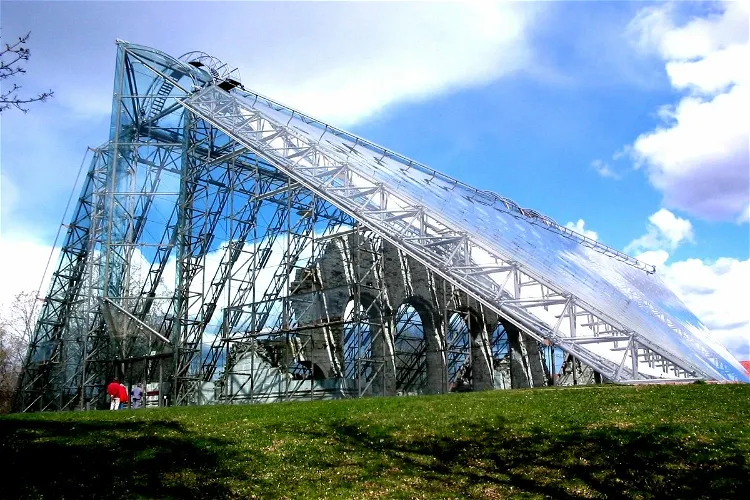
Hedmark Museum
HamarThe Anno Museum, located in the former county of Hedmark in southeastern Norway, is a regional group of cultural and natural history museums. Spread across 23 different locations, the museum offers a diverse range of exhibits and collections that reflect the rich history and natural beauty of the region.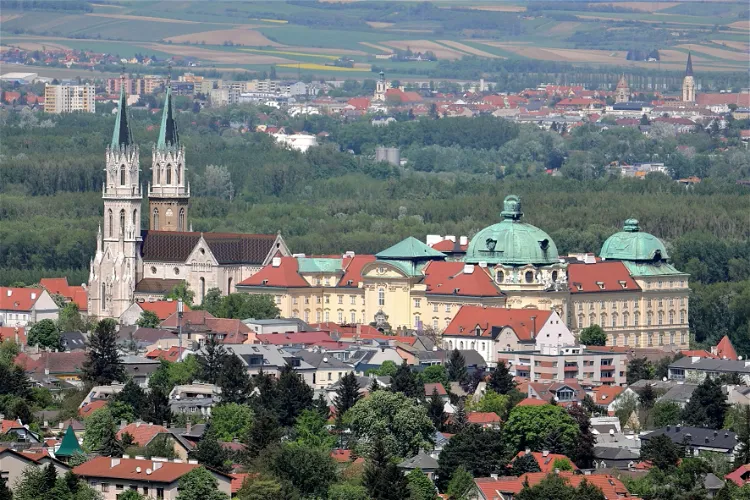
Klosterneuburg Monastery
KlosterneuburgThe Klosterneuburg Monastery, located northwest of Vienna in the town of Klosterneuburg, belongs to the congregation of the Austrian Augustinian Canons Regular. The complex has a rich history, dating back to its foundation by the Austrian Margrave Leopold III and his wife Agnes of Waiblingen in the early 12th century.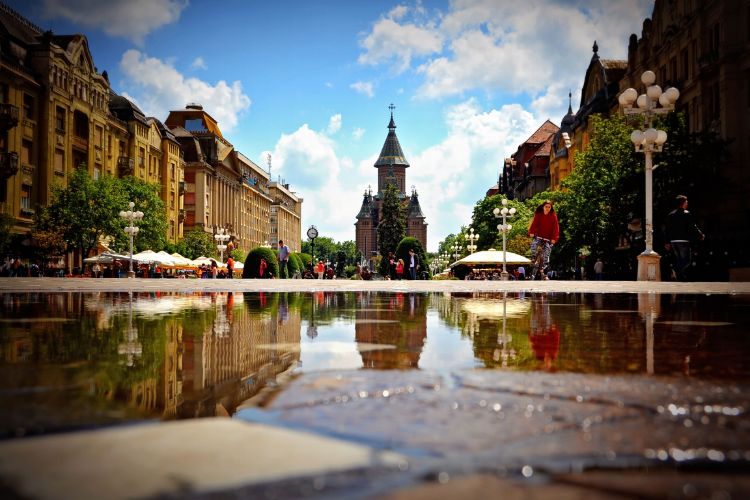
Timișoara Orthodox Cathedral
TimișoaraThe Timișoara Orthodox Cathedral is a Romanian Orthodox in Timișoara that is the seat of the Archbishop of Timișoara and Metropolis of Banat. The Cathedral holds and displays historic and artistic religious items, including a large collection of old Romanian icon paintings, a collection of early wri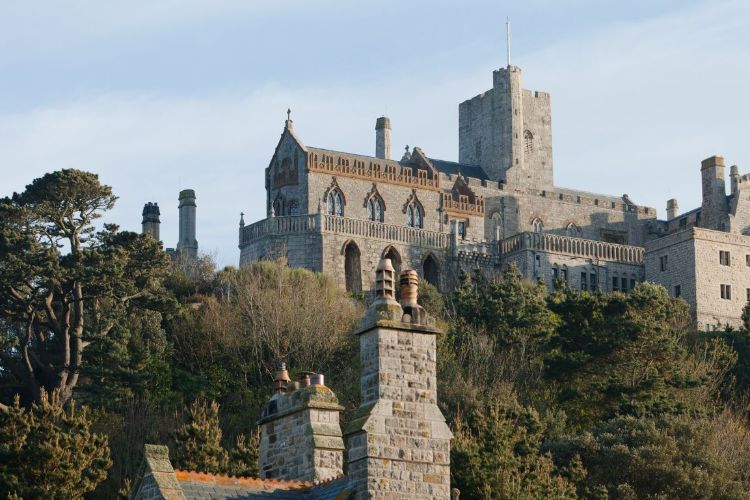
St Michael's Mount
MarazionSt Michael's Mount is a unique destination for tourists, offering a blend of natural beauty and historical significance. This pyramid-shaped granite island is located in Mount's Bay in Cornwall, approximately a kilometer from the town of Penzance, in the southwest of Great Britain. The island is accessible at low tide, providing a unique experience for visitors.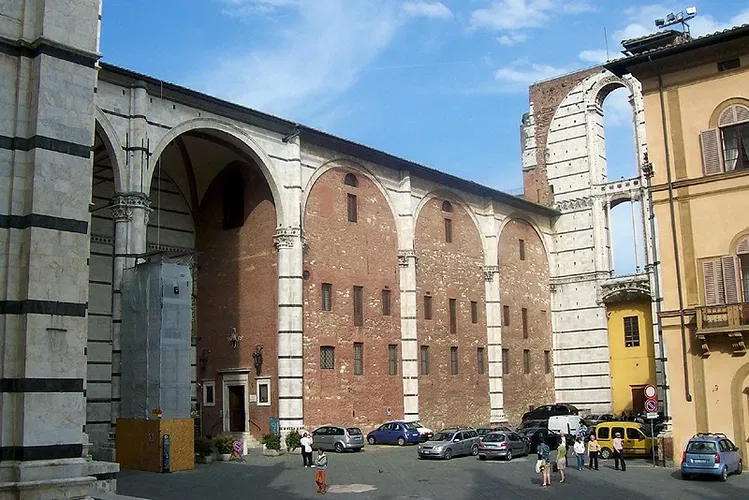
Museo dell'Opera del Duomo (Siena)
SienaThe Museo dell'Opera Metropolitana del Duomo is a museum located in Siena, Italy. It is dedicated to preserving the works of various artists who have contributed to the city's rich cultural and artistic heritage over the centuries. These works were created for the dome, baptistery, and oratory of San Bernardino, some of the city's most significant architectural landmarks.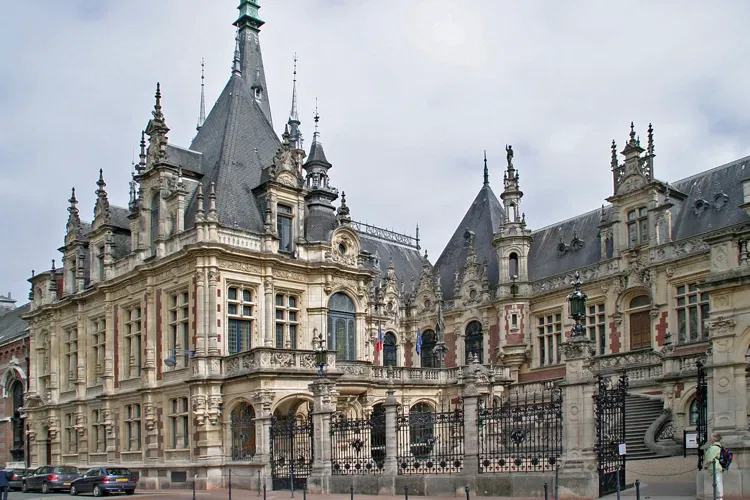
Benedictine Palace
FécampThe Benedictine Palace is not only a historical monument but also a functioning distillery with cellars. In addition, it houses a museum that showcases a variety of collections, including carved ivories, coins, locks, and ancient religious paintings. In 1988, a space dedicated to contemporary art exhibitions was added, further enriching the cultural offerings of the palace.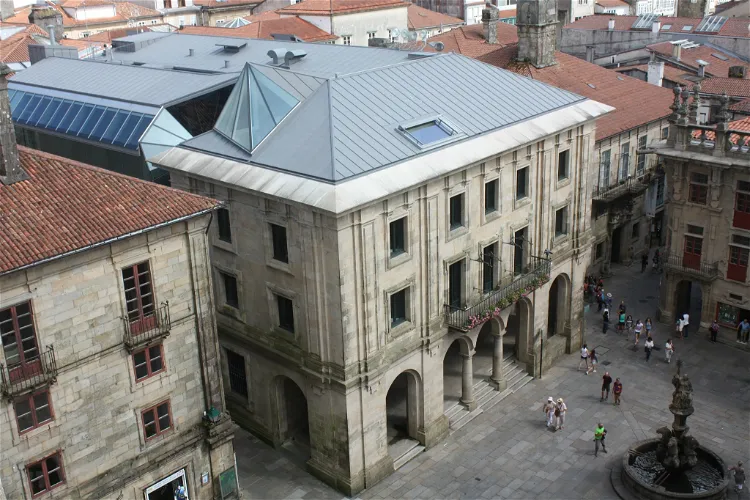
Museum of Pilgrimages and Santiago
SantiagoThe Museum of Pilgrimages and Santiago, established in 1951, is a cultural institution dedicated to the phenomenon of pilgrimage. It is situated in Santiago de Compostela, a city known for the Camino de Santiago, the cathedral, and the Jacobean phenomenon of the tomb of the apostle Santiago the Greater. The museum provides a deep insight into the cultural and historical aspects of these significant religious events and places.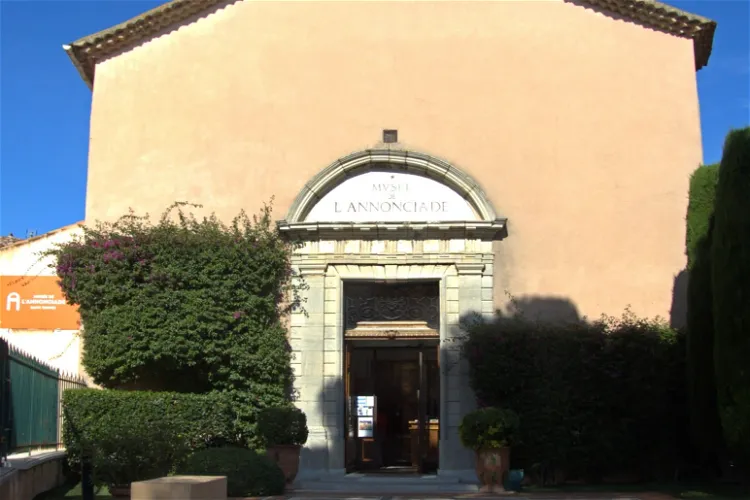
Annonciade Museum
Saint-TropezThe former chapel dating to the wake of the 16th century now serves as a museum of the modern art. A must do for every art connoisseur.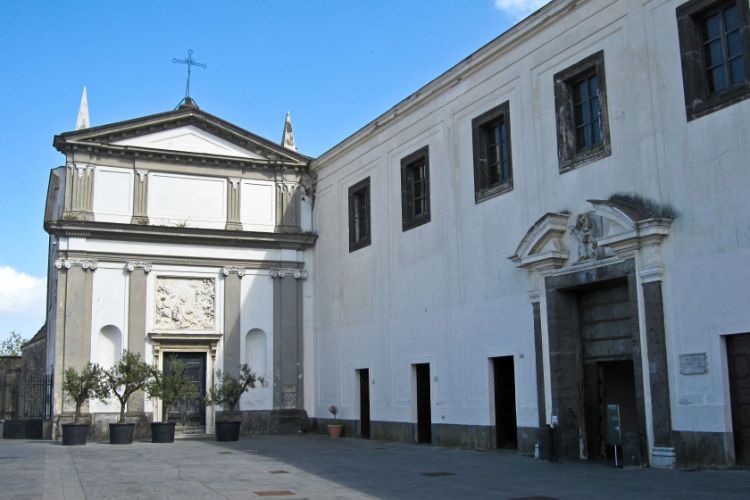
Certosa e Museo di San Martino Napoli
NaplesCertosa e Museo di San Martino Napoli (Charterhouse of St. Martin) is a museum in Naples and is a former monastery complex on top of the Vomero hill. The museum houses collections of Spanish and Bourbon era artifacts, as well as displays of the presepe (Nativity scene) that is considered to be one o
Fountains Abbey
RiponFountains Abbey, located in North Yorkshire, England, is a historical site that dates back to 1132. It was originally a Cistercian monastery, but now stands as a monument in ruins. Despite its current state, the abbey still holds significant historical value and offers a glimpse into the past.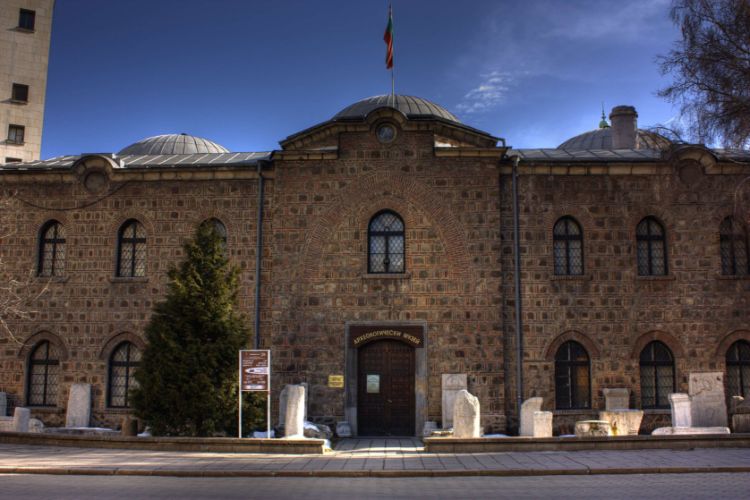
National Institute and Museum of Archaeology
SofiaThe National Institute and Museum of Archaeology (National Institute of Archaeology with Museum in Bulgarian Academy of Sciences) is devoted to the culture of tribes and peoples that have occupied present day Bulgaria from the remote past until the 18th century. The museum is an archaeological museu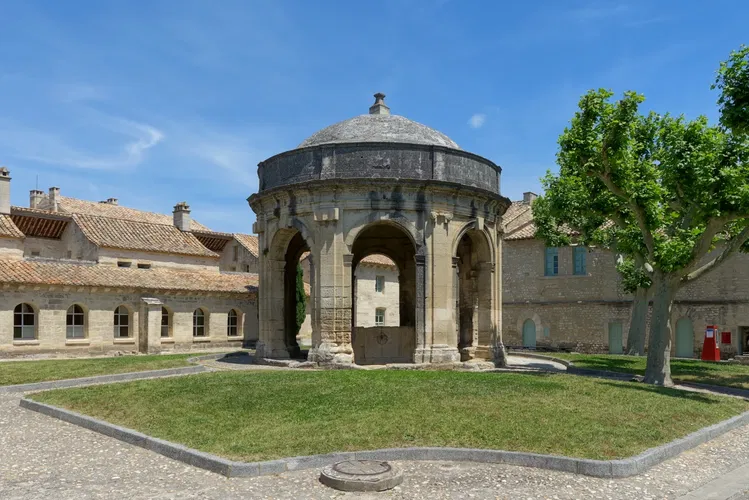
Val de Bénédiction Charterhouse
Villeneuve-lès-AvignonThe Charterhouse of Notre-Dame-de-val-de-Bénédiction, a significant historical site, is situated in the French town of Villeneuve-lès-Avignon. This location is directly opposite the city of Avignon, with the Rhône river acting as a natural boundary between the two. The Charterhouse is a testament to the rich religious history of the region and offers a unique insight into the past.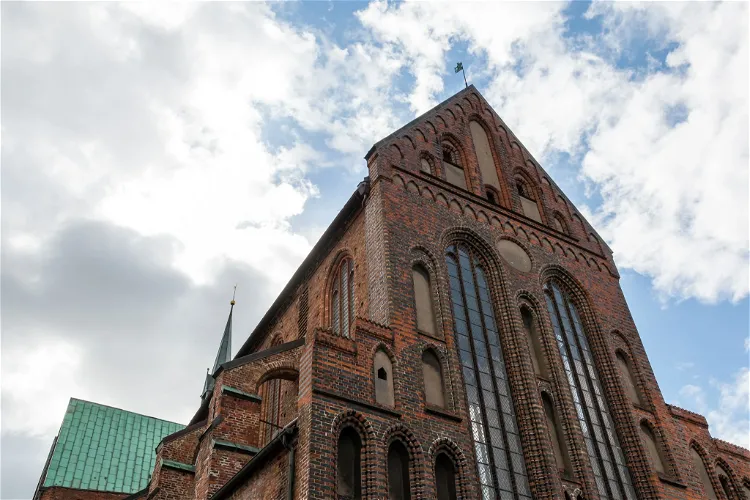
St. Catherine's Church
LübeckSt. Catherine Church in Lübeck is a significant historical site, originally serving as a Brick Gothic church that was part of a Franciscan monastery. The church was dedicated to Saint Catherine of Alexandria, a revered Christian saint and martyr. Its architectural style and historical significance make it a point of interest for visitors.- 80
Benedictine Monastery of San Nicolò l'Arena
CataniaInscribed in the UNESCO World Heritage List, this monastery is a must-see! Visit the church, ancient Roman house and the museum of art, too. 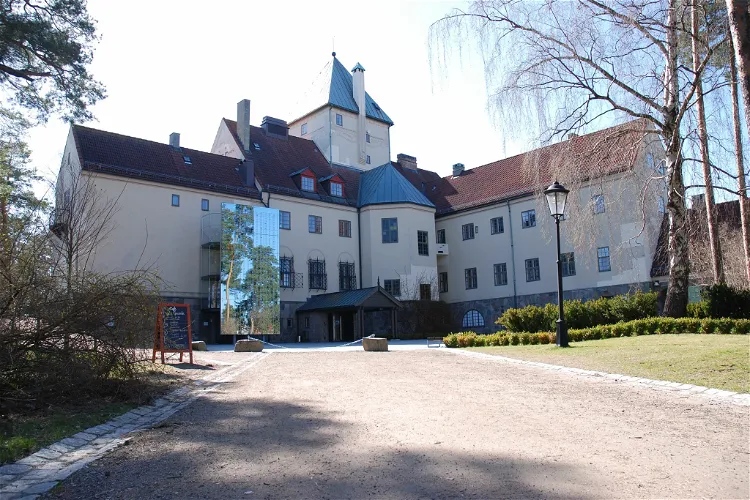
Villa Grande
OsloDuring the tumultuous times of World War II, Villa Grande served as the residence of Vidkun Quisling, a prominent figure of the era. Known as Gimle at the time, the villa was the center of Quisling's activities. This historical context adds a layer of intrigue and significance to the villa, making it a point of interest for those interested in World War II history.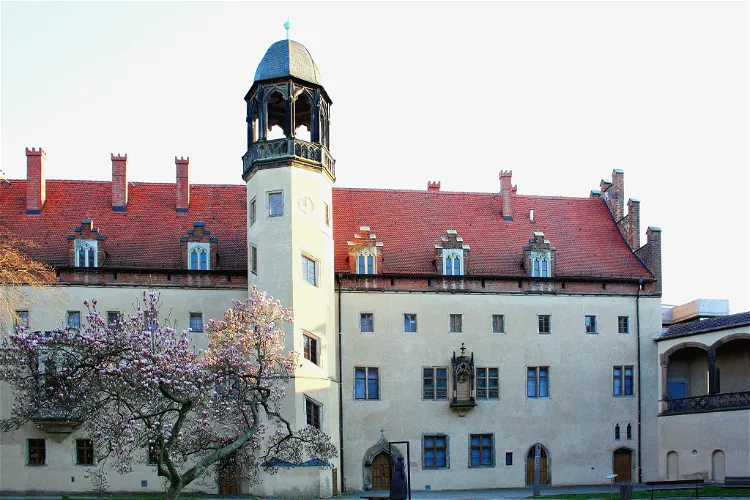
Luther Hall
WittenbergThe Luther House, or Lutherhaus in German, is a significant historical site in Wittenberg, Germany. It served as the home of Martin Luther, the Protestant reformer and founder of Lutheranism, for over 35 years. Today, it stands as a museum, offering visitors a glimpse into the life and work of this influential figure.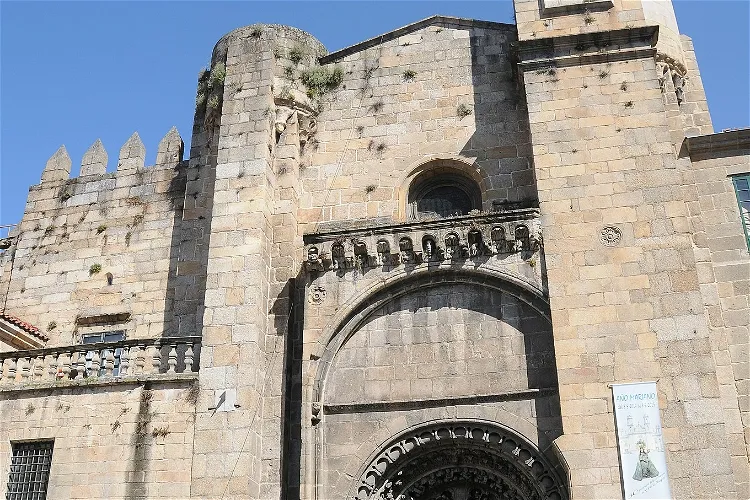
Ourense Cathedral
OurenseThe Ourense Cathedral has a history marked by destruction and rebirth. It was destroyed during Muslim incursions and later rebuilt during the 12th and 13th centuries, a period known for Romanesque architecture. The construction of the cathedral in its current form began in 1160 and was completed in the mid-13th century. This history of resilience and transformation is reflected in the cathedral's architecture, making it a fascinating site for those interested in historical architecture.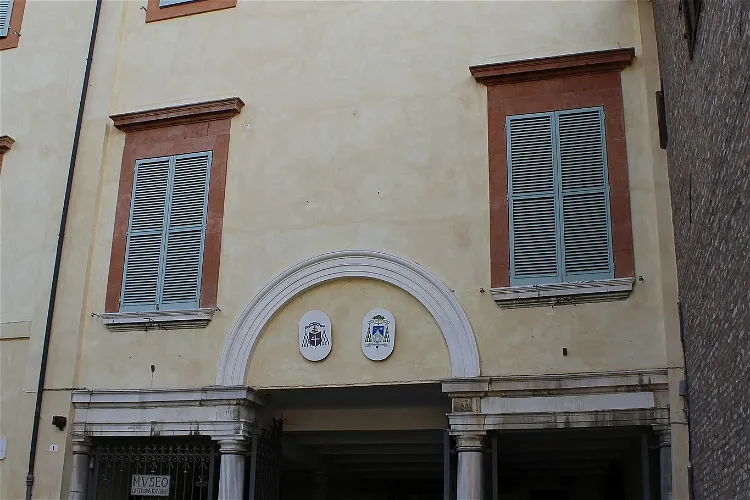
Archiepiscopal Museum
RavennaThe Archiepiscopal Museum of Ravenna is a significant destination for those interested in early Christian, Byzantine, and medieval archaeology. It is conveniently located in the Archbishop's Palace, situated in the historic center of Ravenna. This location not only provides easy access for visitors but also adds to the historical ambiance of the museum.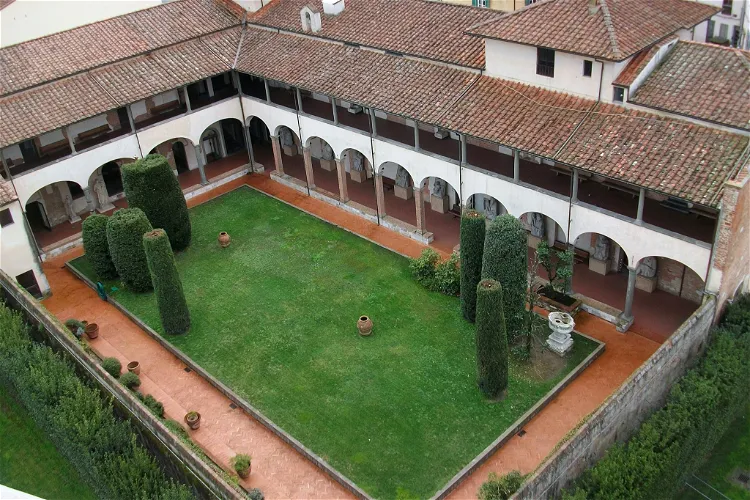
Opera del Duomo Museum
PisaThis museum holds an impressive collection of artifacts that once used to be the Cathedral Treasure, including medieval liturgical objects and sculptures. Local tip: the cloister of the museum offers a splendid view of the Leaning Tower.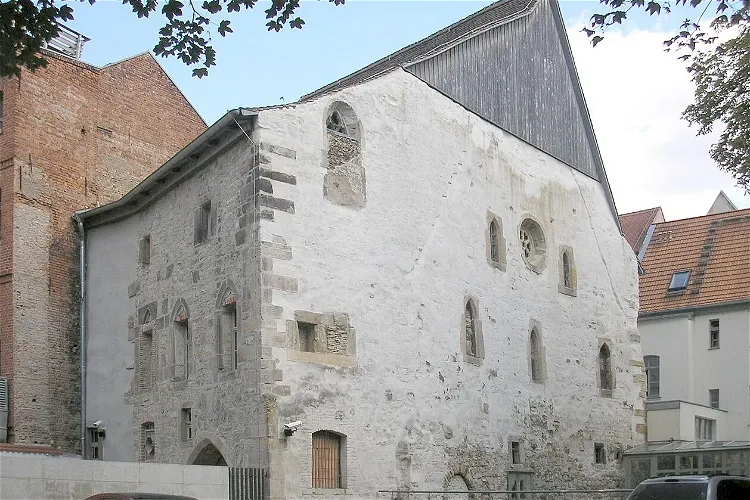
Old Synagogue
ErfurtThe Old Synagogue in Erfurt, with its age of over 900 years, holds the distinction of being the oldest preserved synagogue in Europe. This former synagogue is a testament to the rich Jewish history of the region and offers a unique glimpse into the past. Its location in the heart of Erfurt's old town adds to its historical charm and significance.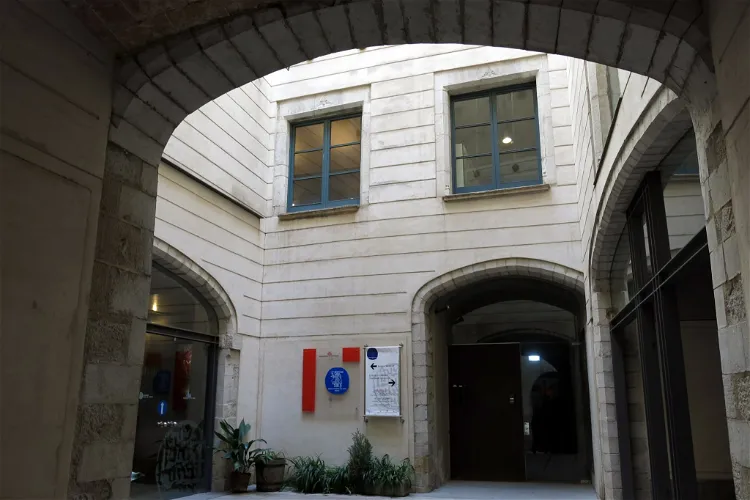
Museum of Jewish History
GeronaThe Museum of Jewish History in Gerona is situated in the Bonastruc ça Porta center, right in the heart of the Jewish quarter of Gerona. This location is steeped in history, providing an authentic backdrop to the museum's exhibits and collections.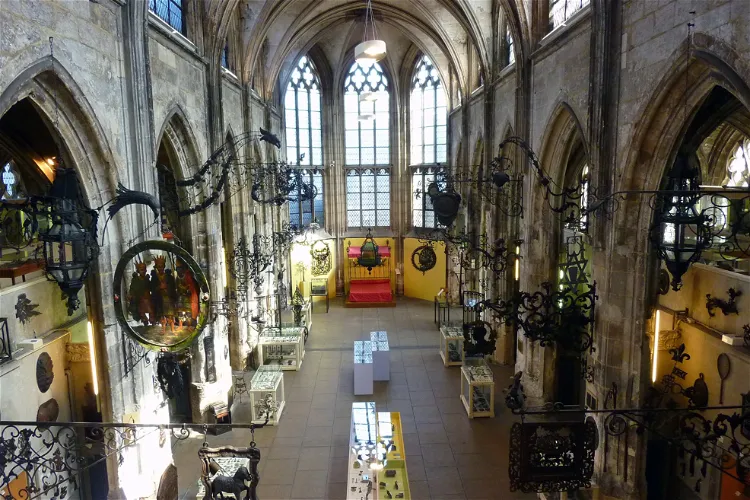
Le Secq des Tournelles Museum
RouenLe Secq des Tournelles Museum is a unique destination in Rouen, France. It is a museum dedicated to ironwork and is housed in a former church. This gives the museum a unique atmosphere, combining the historical and religious significance of the building with the artistic and practical aspects of the ironwork on display.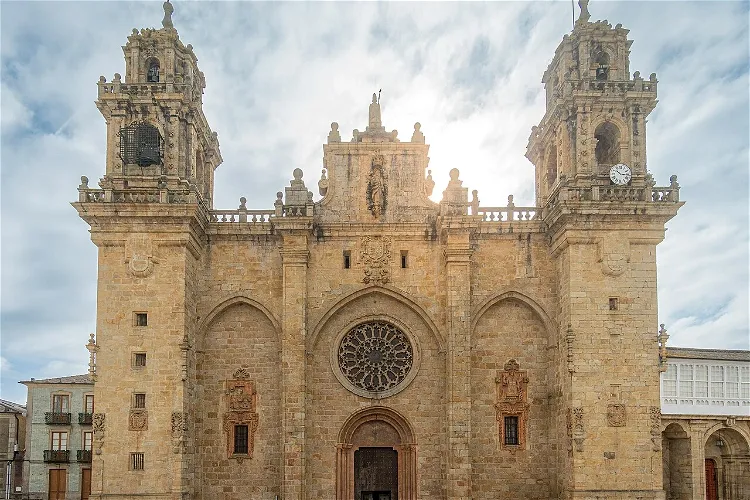
Mondoñedo Cathedral
MondoñedoMondoñedo Cathedral, also known as the Basilica of the Assumption of Our Lady, is one of the episcopal seats of the Diocese of Mondoñedo-Ferrol in Galicia, Spain. It is often referred to as the 'Kneeling Cathedral' due to its perfect proportions and modest height. The cathedral was declared a National Monument on May 23, 1902, and was named a basilica by Pope John XXIII in 1959.
National Museum of Villa Guinigi
LuccaThe Museo Nazionale di Villa Guinigi is housed in a villa, one of the oldest and most prestigious buildings in the city. This villa was commissioned by Paolo Guinigi, who was the lord of Lucca from 1400 to 1430. The construction began in 1413 by craftsmen from northern Italy, and the villa was intended to be Guinigi's 'residence of delights'.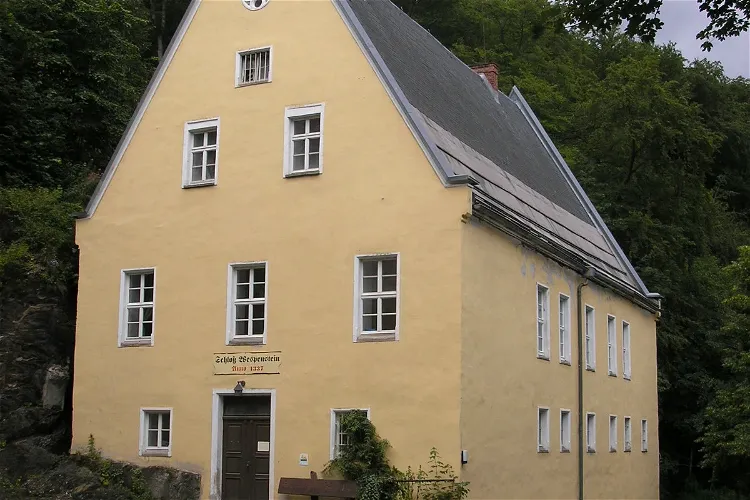
Schloss Wespenstein
GräfenthalSchloss Wespenstein is a historic castle located in the city of Gräfenthal in Thuringia, right on the border with Bavaria. The castle played a significant role in securing the pass section of a medieval army and trade route that stretched from Leipzig via Saalfeld to Nuremberg over the ridge of the Thuringian Slate Mountains. This strategic location underscores the historical importance of the castle.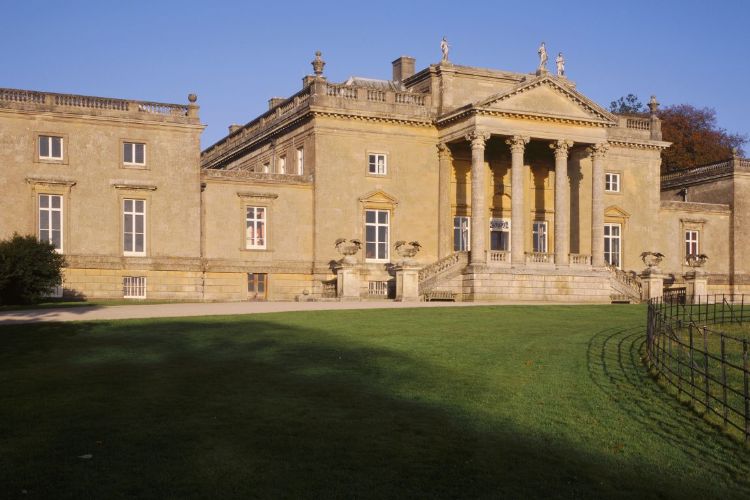
Stourhead
WarminsterStourhead House is a sprawling 1.06 hectare estate located near the source of the Stour River, in Wiltshire County, England. The estate is home to a Palladian-style mansion, the quaint village of Stourton, beautifully manicured gardens, expansive farmland, and a lush forest. This diverse range of attractions offers visitors a unique opportunity to explore and appreciate the rich history and natural beauty of the area.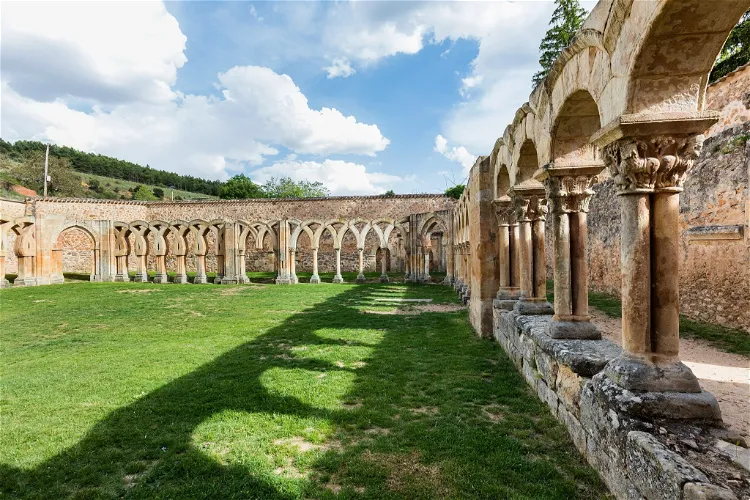
Monastery of San Juan de Duero
SoriaSan Juan de Duero, also known as Arcos de San Juan de Duero, is a significant site of Castilian Romanesque architecture. It is situated on the outskirts of the city of Soria, in the region of Castilla y León, Spain. This historical site serves as the Medieval Section of the Numantine Museum, offering visitors a glimpse into the architectural style and history of the period.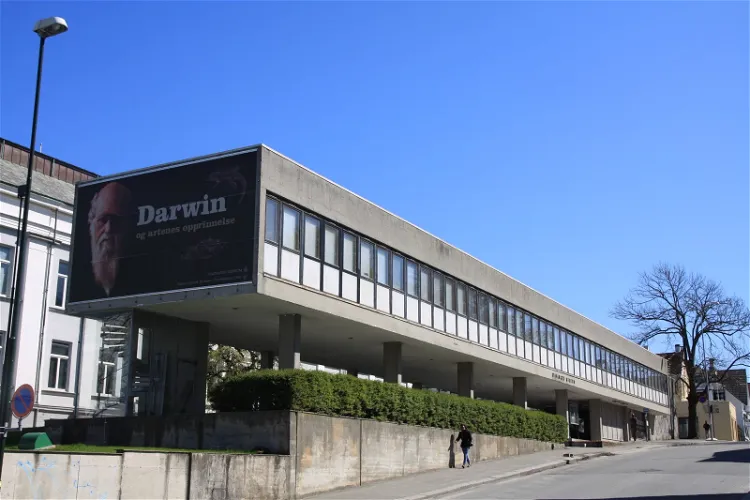
Stavanger Museum
StavangerStavanger Museum, established in 1877, is a museum of natural and cultural history located in the city of Stavanger, Norway. It offers a rich collection of exhibits that reflect the natural and cultural history of the region.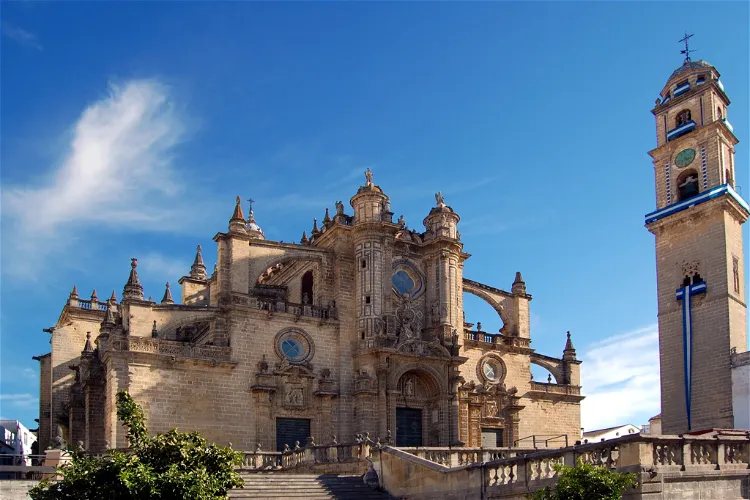
Cathedral of Jerez de la Frontera
Jerez de la FronteraThe Cathedral of the Holy Savior, a Catholic cathedral, is situated in the city of Jerez de la Frontera, within the autonomous community of Andalusia in Spain. This cathedral serves as a significant religious and cultural landmark in the region.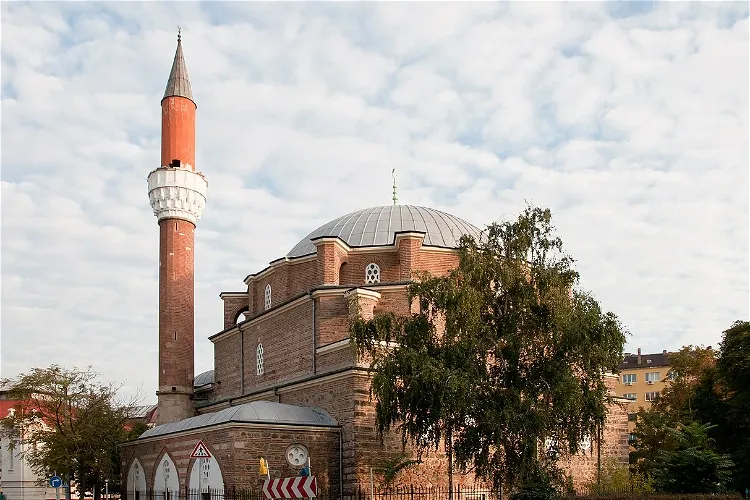
Banya Bashi Mosque
SofiaThe Banya Bashi Mosque, also known as Seyfullah Efendi Mosque, is a significant historical and religious site in Sofia, the capital of Bulgaria. It is the only active mosque in the city and is considered one of the oldest mosques in Europe. This mosque, built during the Ottoman Empire, continues to serve as a place of worship and is a testament to the city's rich history and cultural diversity.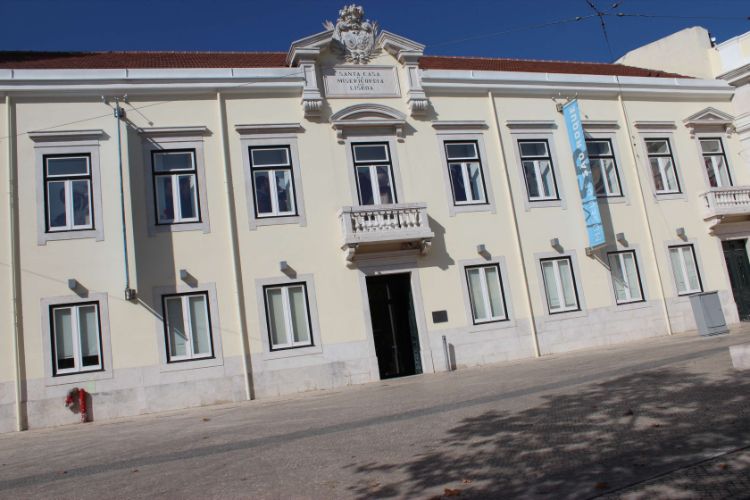
Church of Saint Roch
LisbonThe Church of Saint Roch is one of the earliest Jesuit churches in the world. Even though the exterior of this church is quite simple, its interior is elaborately decorated - it is a fusion of Mannerist and Baroque styles. The Church of Saint Roch boasts eight splendid chapels and three altars. One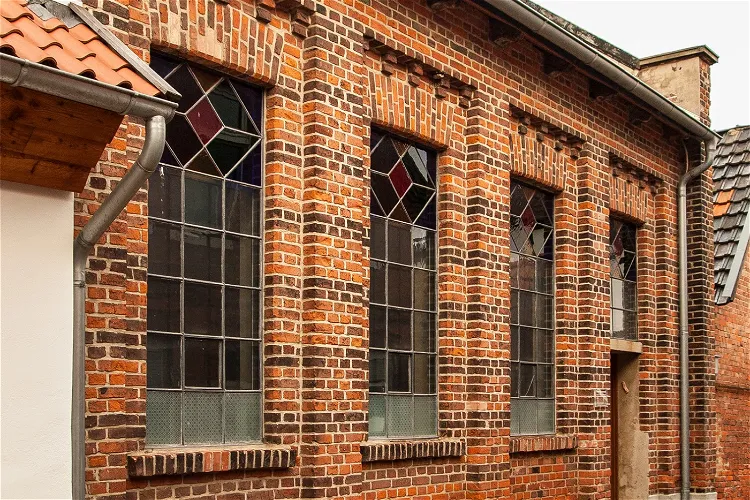
Alte Synagoge Petershagen
PetershagenThe Alte Synagoge Petershagen is a significant historical site located at Goebenstraße in Petershagen, in the district of Minden-Lübbecke, North Rhine-Westphalia. This protected monument offers a glimpse into the rich Jewish history of the region and stands as a testament to the resilience of the Jewish community.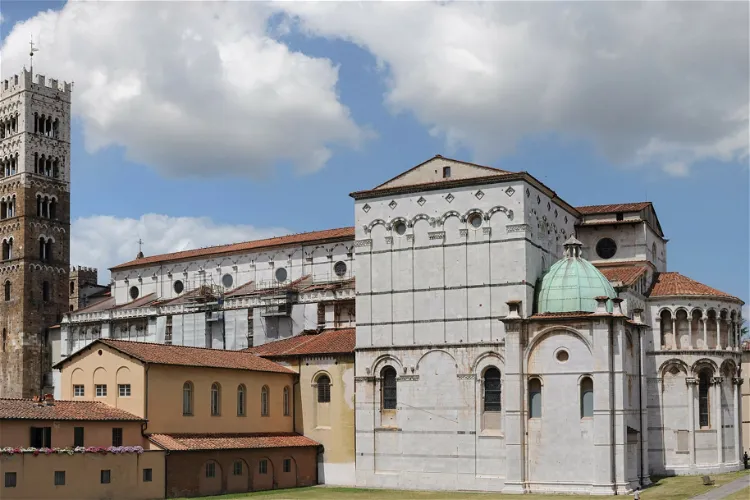
Complesso Museale e Archeologico della Cattedrale di Lucca
LuccaVisit the museum which preserves artworks from the Cathedral of St. Martin. Admire the valuable religious artefacts.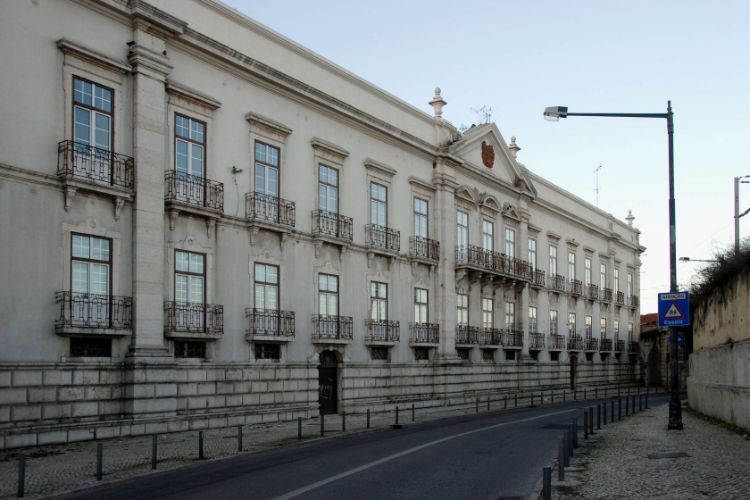
National Tile Museum
LisbonThe National Tile Museum in Lisbon presents the history of craft-making of decorative ceramic tiles, azulejos, popular in Spain and Portugal. The collection showcases evolution of this craft since the 15th century up to present days. Opened in 1965, it is housed in an ancient monastery, formerly kno
Duomo Museum
MilanThe Duomo Museum in Milan (Museum of the Duomo of Milan) is a museum that originates from the cathedral, from which all the works on display have been taken. The museum is housed inside the Royal Palace. A tour through the museum also includes the Church of San Gottardo in Corte. The tour through th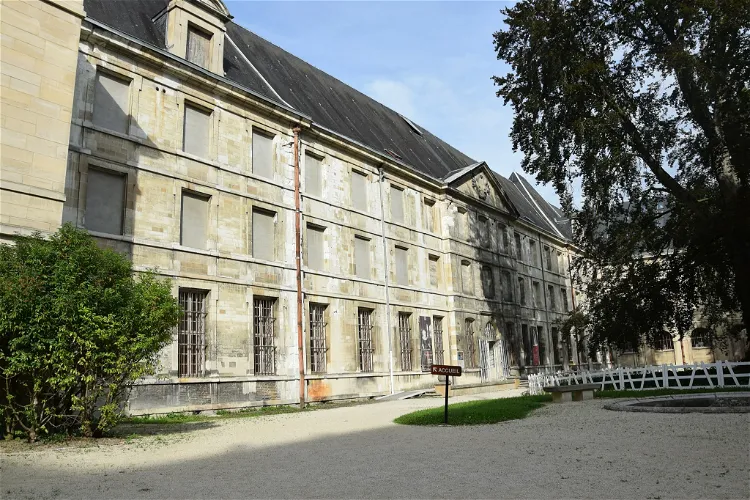
Museum of Fine Arts and Archeology
TroyesThe Abbey of Saint-Loup was not only a religious center but also a hub of intellectual activity. It developed a renowned library and a scriptorium, contributing significantly to the literary culture of the time. The famous poet Chrétien de Troyes is believed to have been a distinguished guest of this abbey, further enhancing its cultural significance.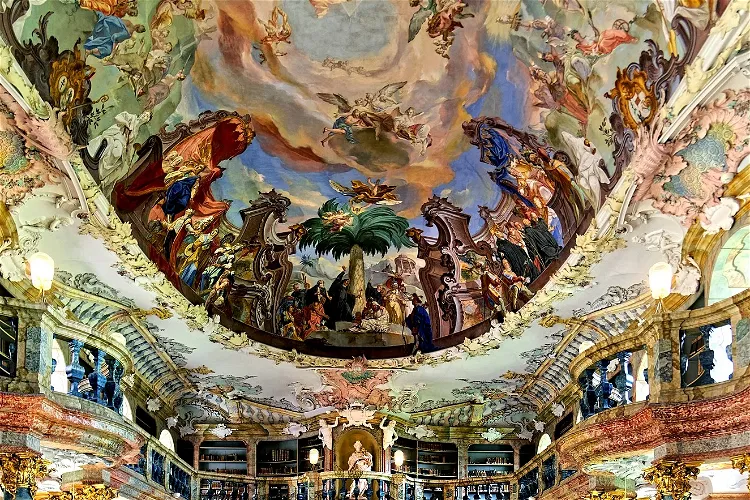
Wiblingen Abbey
UlmWiblingen Abbey, located in Ulm, was once a German Benedictine abbey. Today, the abbey church, which has been converted into a basilica, is one of the preserved structures of the abbey. The abbey was also used as military barracks in the past. This historical site offers a glimpse into the rich history of the region.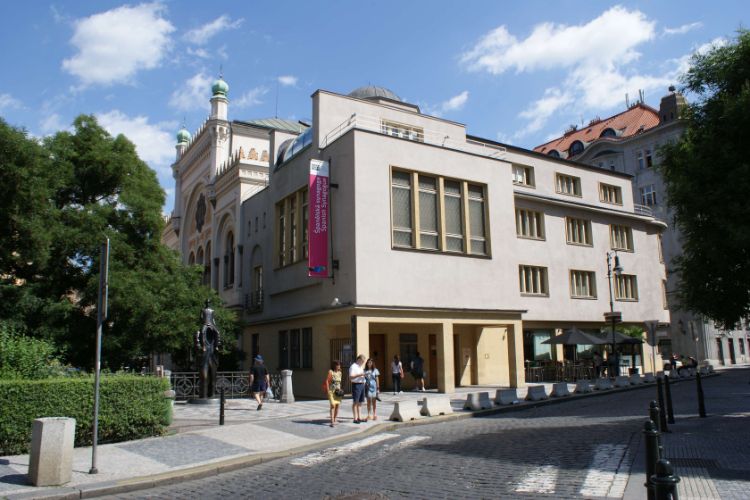
Jewish Museum in Prague
PragueThe Jewish Museum in Prague was established in 1906 and is a foundation that gathers and administrates all the Jewish sights such as synagogues, the Old Jewish Cemetery and more. Its primary aim is to document history and customs of Czech and Moravian Jewish community. The museum itself is housed in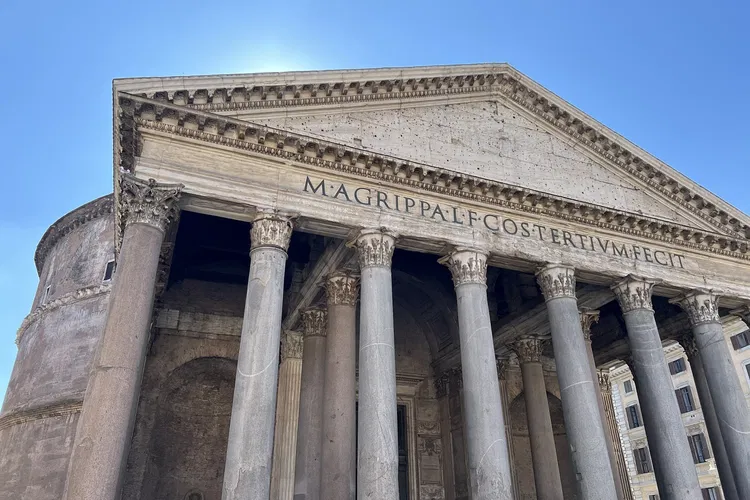
Pantheon
RomeThe Pantheon is an ancient temple in Rome, rebuilt in the 2nd century AD. It is one of the best-preserved Roman buildings in the world, thanks to its transformation into a church in the 7th century and its continuous use and maintenance since then. This makes it a unique historical site that offers a glimpse into the architectural prowess of the ancient Romans.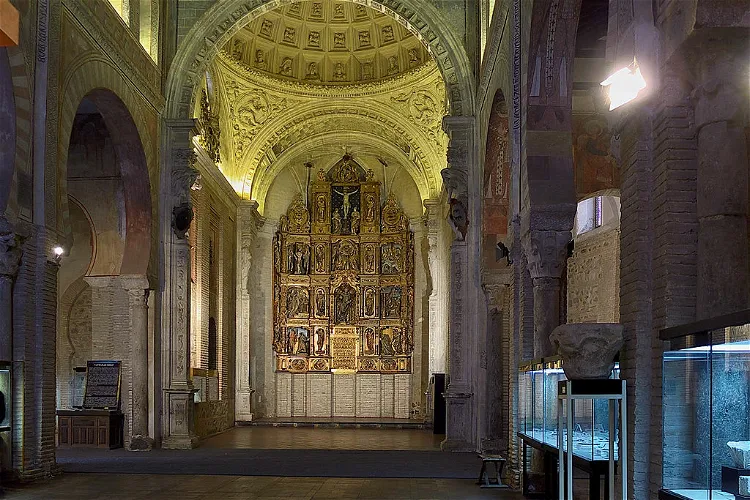
Church of San Román
ToledoThe Iglesia de San Román is a significant historical site in Toledo, Spain. Constructed in the 13th century, the church is a prime example of the Mudéjar architectural style, a unique blend of Christian and Islamic influences that is characteristic of the period. The church's design and construction reflect the cultural and religious diversity of Toledo during the Middle Ages.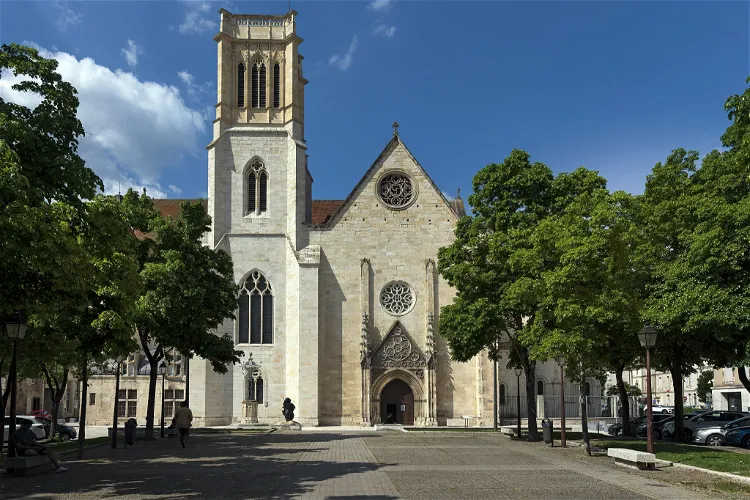
Agen Cathedral
AgenAgen Cathedral, located in Agen, Lot-et-Garonne, Aquitaine, France, is a Roman Catholic cathedral dedicated to Saint Caprasius. This historic site is a significant part of the city's cultural and religious heritage, offering visitors a glimpse into the region's rich history.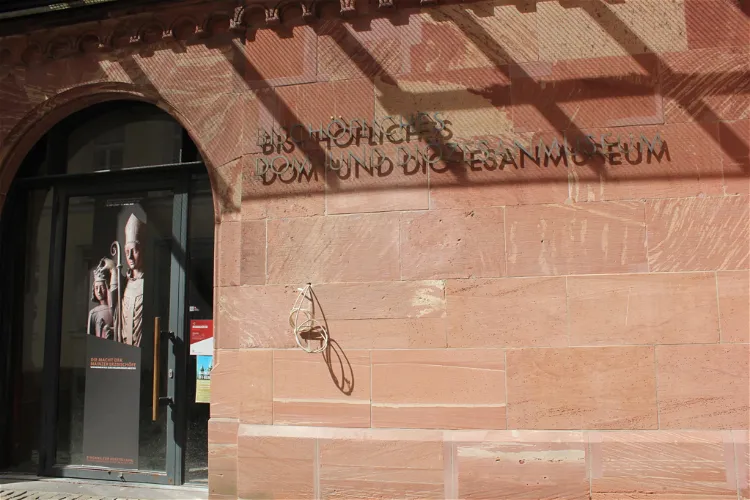
Dom- und Diözesanmuseum (Mainz)
MainzThe Episcopal Museum of the Cathedral and Diocese of Mainz, also known as Dom- und Diözesanmuseum, is situated in the cloister of the Saint Martin Cathedral. This location is in the heart of the old town of Mainz, providing visitors with a historical setting that complements the museum's collections. The museum building, made of sandstone, is located at the foot of the cathedral, adding to the overall historical ambiance.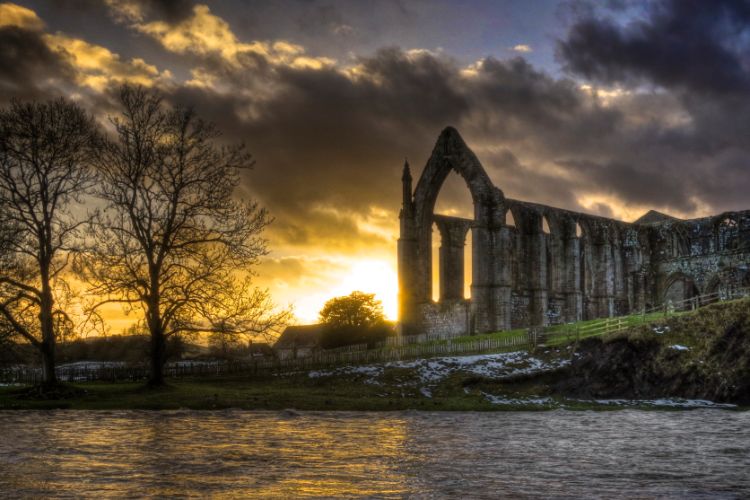
Bolton Abbey
Bolton AbbeyBolton Abbey is in the heart of the Yorkshire Dales on the banks of the River Wharfe. With just under 30,000 acres of beautiful countryside, over 80 miles of footpaths and ample space to run around and enjoy the fresh air, there is something for all ages. Explore the ruins of the Priory and discover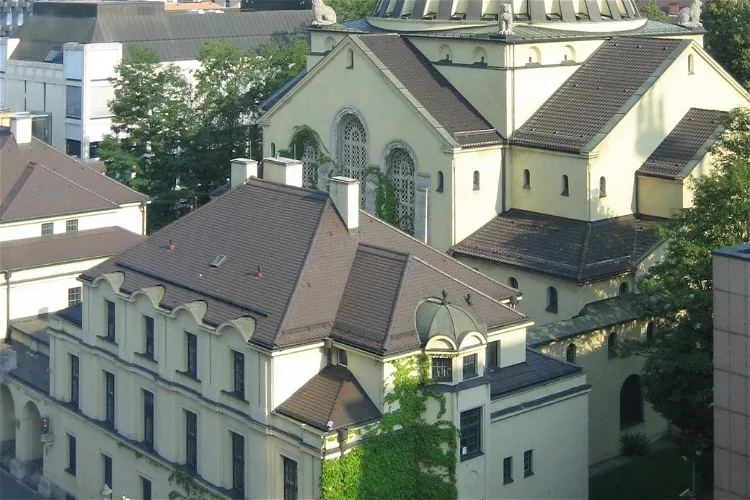
Jewish Museum Augsburg Swabia
AugsburgThe Jewish Museum Augsburg Swabia documents the culture and history of the Jews in Augsburg and Swabia from the Middle Ages to the present. The permanent exhibition, opened in November 2006, presents Jewish history as a dynamic interplay of settlement and expulsion, and of self-assertion and adaptation. It highlights the relationship between the Jewish minority and the Christian majority, emphasizing Jewish history as an integral part of the broader Augsburg and Swabian history.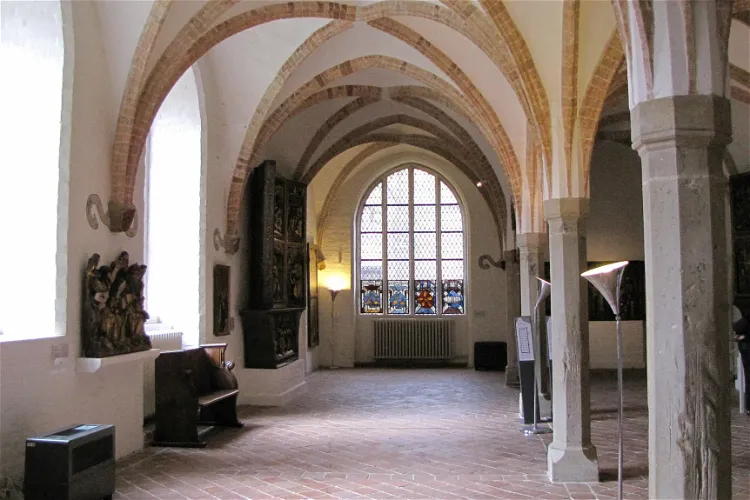
St. Anne's Museum Quarter, Lübeck
LübeckThe St. Anne's Museum Quarter in Lübeck, Germany is a significant historical site, located in a former abbey of the Order of Saint Augustine. This red brick abbey, which is situated next to the Church of St. Giles, was built just before the Protestant Reformation, between 1502 and 1515, in late Gothic style. The abbey was dedicated to St. Anne, the mother of the Virgin Mary.
St Andrews Cathedral And St Rule's Tower
Saint AndrewsSt Andrews Cathedral has a rich history that dates back to the year 742. It was during this time that the relics of the apostle Saint Andrew, who is now the patron saint of Scotland, arrived in the area. This event marked the beginning of the cathedral's existence and its significance in Scottish history.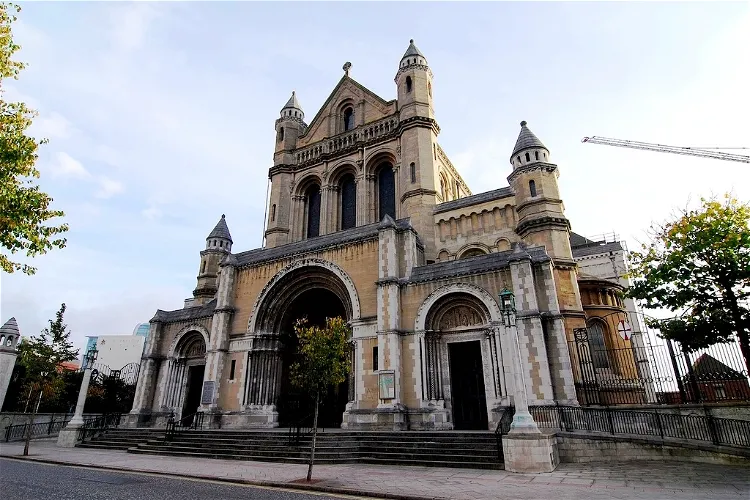
Belfast Cathedral
BelfastSt. Anne's Cathedral, also known as Belfast Cathedral, is a significant religious site located in Donegall St., Belfast, Antrim, in Northern Ireland. This cathedral is unique in serving two separate dioceses: Connor and Down and Dromore. Despite not being the seat of either, it is situated within the first diocese. The cathedral is a notable landmark in Belfast and a place of worship for the Church of Ireland.
Byzantine and Christian Museum
AthensThe Byzantine and Christian Museum is a museum in Athens that is located in the former Villa Ilissia that displays Christian art dating back to the third century. There are about 25,000 items, including sculptures, paintings, mosaics, frescoes and icons.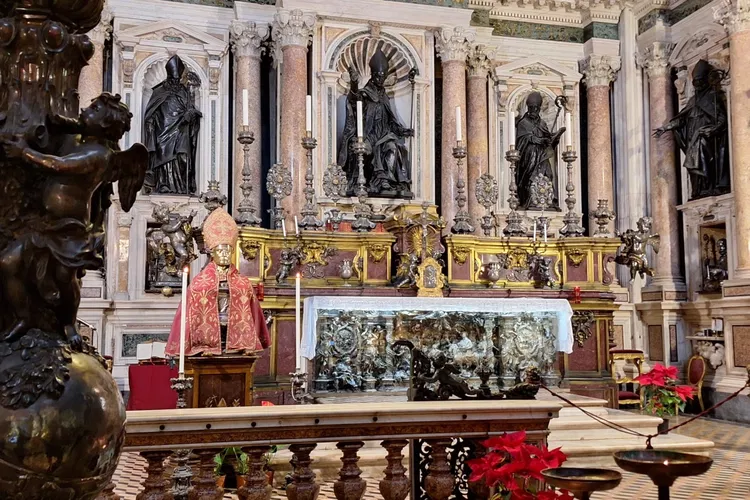
Cathedral of Naples, Chapel of St. Januarius
NaplesThe Royal Chapel of the Treasure of St. Januarius, also known as the Reale cappella del Tesoro di San Gennaro, is a significant part of the Cathedral of Naples in Italy. This chapel is dedicated to St. Januarius, who is the patron saint of the city. It is the most lavishly decorated chapel in the cathedral, showcasing contributions from the premier Baroque artists in Naples.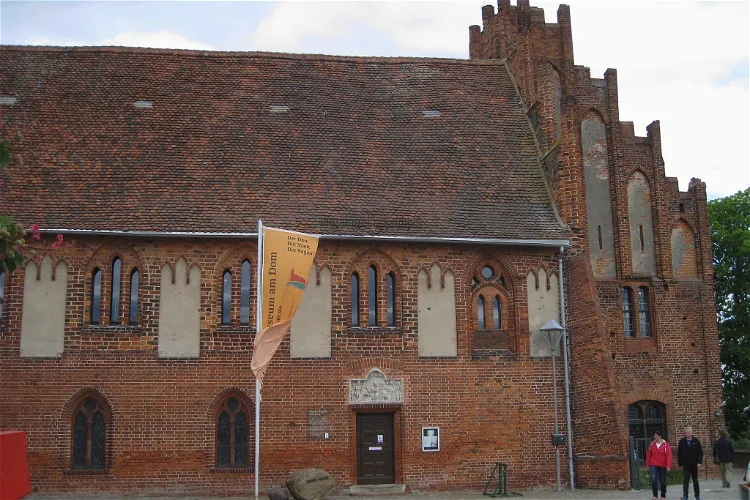
Prignitz-Museum
HavelbergThe Prignitz-Museum in Havelberg welcomes more than 10,000 visitors annually and is open throughout the year. This makes it a popular destination for tourists and locals alike. The museum's year-round availability allows visitors to plan their visit at a time that suits them best, making it a convenient option for those exploring the region.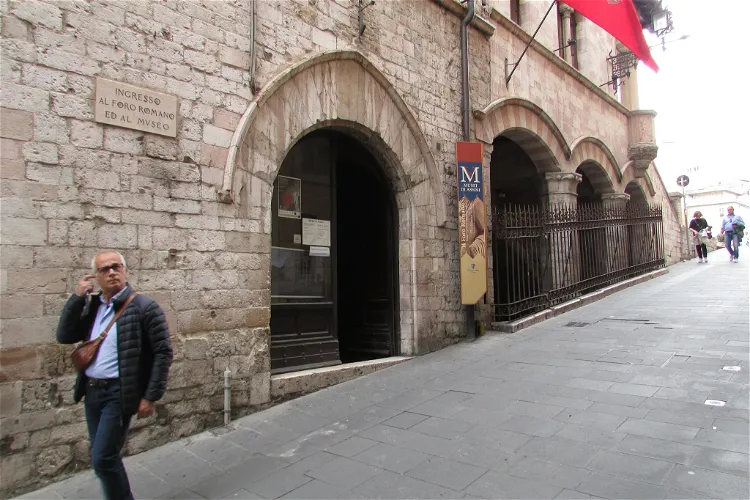
Foro Romano e Collezione Archeologica
AssisiThe Civic Museum and Roman Forum of Assisi offers a unique opportunity to explore the remnants of the ancient Roman forum of the town. In addition to this, the museum houses a collection of archaeological objects that are relevant to the history of the region. These artifacts provide a glimpse into the past, shedding light on the cultural and historical significance of Assisi during the Roman era.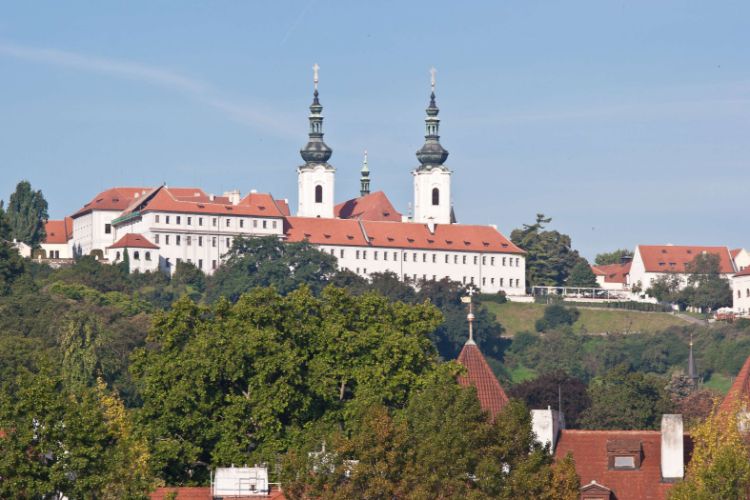
Strahov Monastery
PragueSet up in the 12th century, the Strahov Monastery is nowadays used by Strahov library and Strahov Picture Gallery. The gallery has more than 1,500 pieces of art on display, including collections of Rudolfine, Flemish and Italian paintings. The library has a beautiful interior with colourful frescoes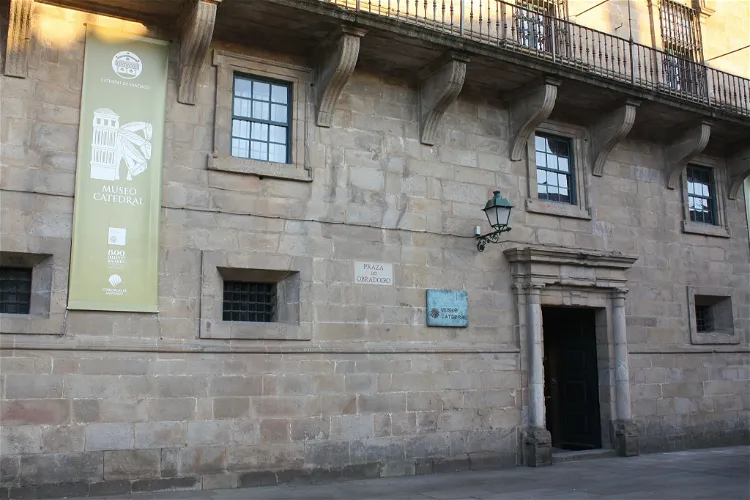
Santiago Cathedral Museum
Santiago de CompostelaThe Santiago de Compostela Cathedral Museum is a significant institution that houses a wide range of artistic and archaeological works. These works are owned by the Santiago de Compostela Cathedral and cover a broad timeline from the Roman era to the present day. This extensive collection provides a unique opportunity for visitors to explore the rich history and culture of the region through the various exhibits.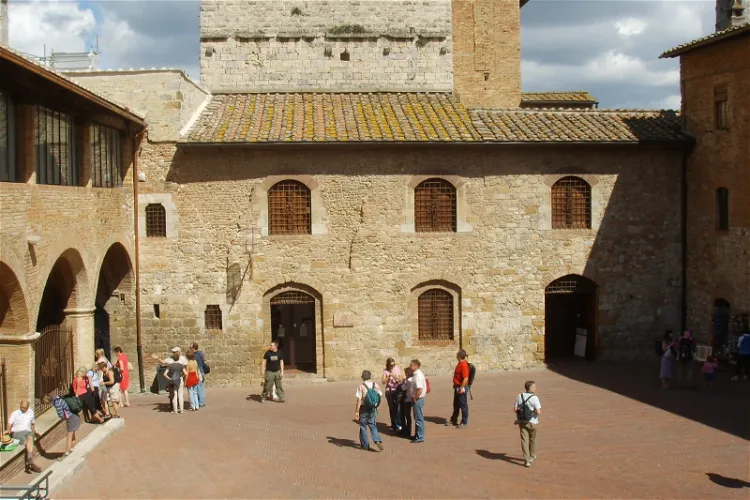
Museum of Sacred Art San Gimignano
San GimignanoThe Museum of Sacred Art of San Gimignano is situated in the historic building of the ancient dormitory of the Chaplains. This location, in Piazza Pecori 1 in San Gimignano, adds a layer of historical significance to the museum, making it a fascinating destination for those interested in both art and history.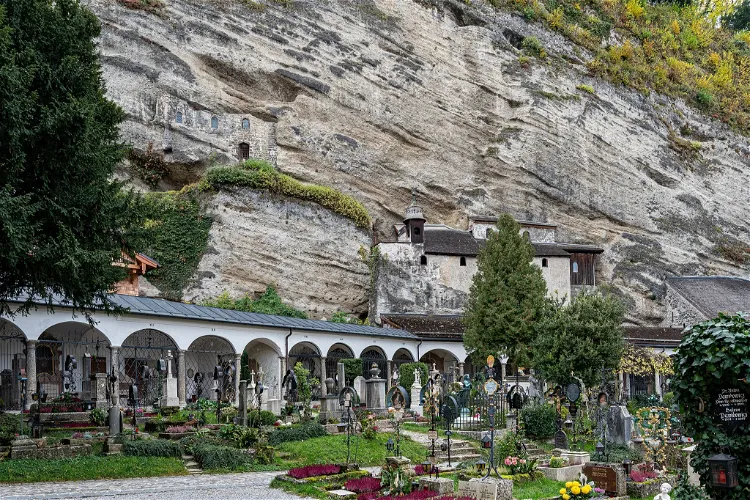
Katakomben Salzburg
SalzburgThe catacombs of Salzburg, situated on the edge of the Petersfriedhof, are a significant historical site. They were carved into the Festungsberg, a mountain in Salzburg, and are believed to be of late antique-early Christian origin. Despite their name, these catacombs were not used as burial sites but likely served as early Christian meeting places.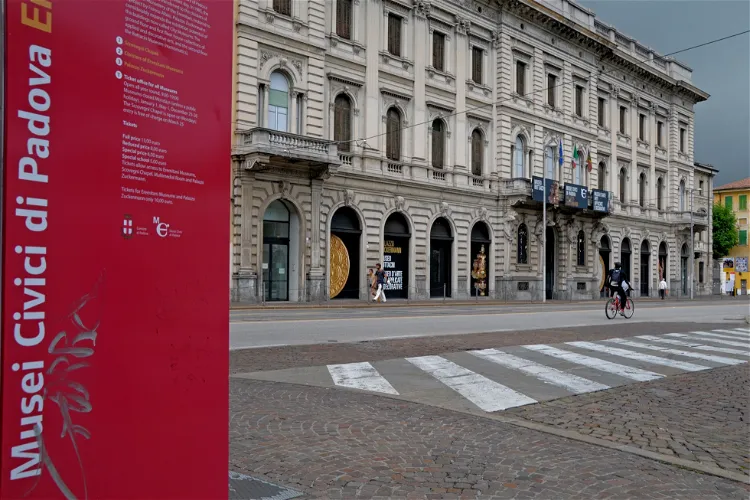
Civic Museum (Museo Civico di Padova)
PaduaThe Civic Museums of Padua, also known as the Civic Museums at the Eremitani, are a museum complex located in Piazza Eremitani in the city of Padua. This complex is a significant cultural hub in the city, housing a variety of collections and exhibitions that span across different periods and disciplines. The museums are situated in a historic location, adding to the overall cultural experience for visitors.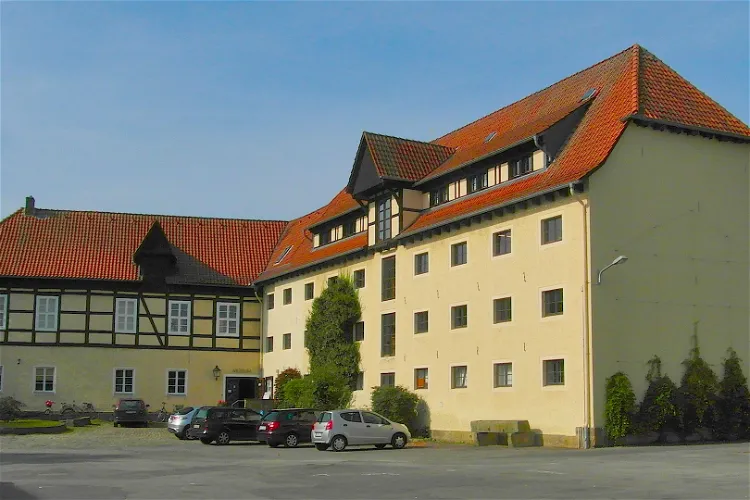
Ilsenburg Abbey
IlsenburgIlsenburg Abbey, located near Wernigerode in Saxony-Anhalt, Germany, was a monastery of the Benedictine Order. This historical site offers a glimpse into the religious and architectural history of the region.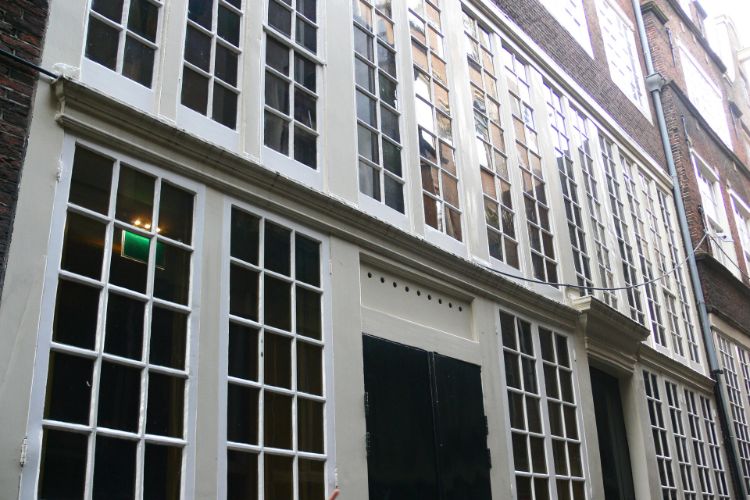
Museum Our Lord in the Attic
AmsterdamMuseum Ons' Lieve Heer op Solder is a former clandestine church. The building looks like an ordinary canal house. It is one of the oldest museums in the Netherlands. The 17th century church with an altar, corridors and approximately 150 seats is situated in the attic. After the Protestant Reformatio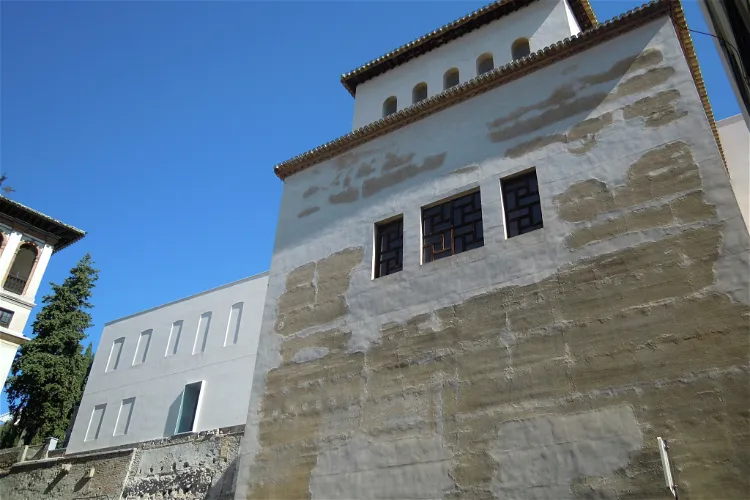
Royal Quarters of Santo Domingo
GranadaThe Cuarto Real de Santo Domingo, located in the Realejo quarter of Granada, Spain, is a former Nasrid palace and convent. This historical site offers visitors a glimpse into the past, showcasing the architectural and cultural heritage of the Nasrid dynasty.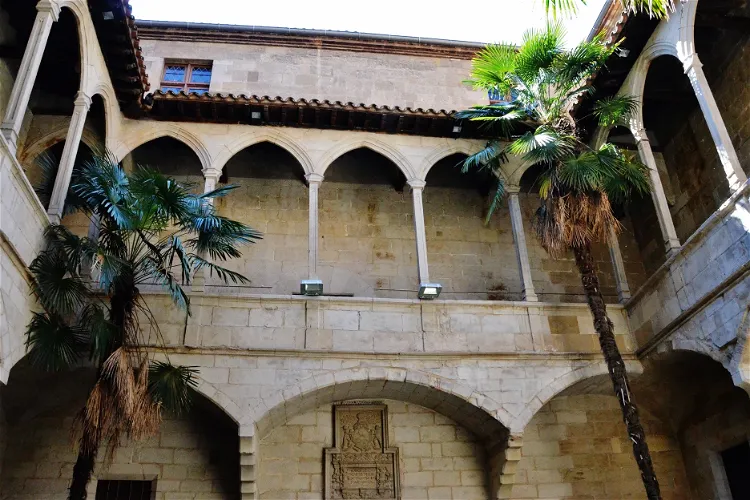
Old hospital of Santa Maria
LleidaThe Old Hospital of Santa Maria is a significant historical site in the Spanish city of Lleida. It is a prime example of Catalan Gothic civil architecture from the 15th and 16th centuries. The building's structure is simple, with a square layout and a square courtyard in the center. The ground floor has thick walls to support the weight of the roof beams and thinner walls on the upper floors. The building was declared an Architectural Artistic Monument by royal order on March 15, 1920.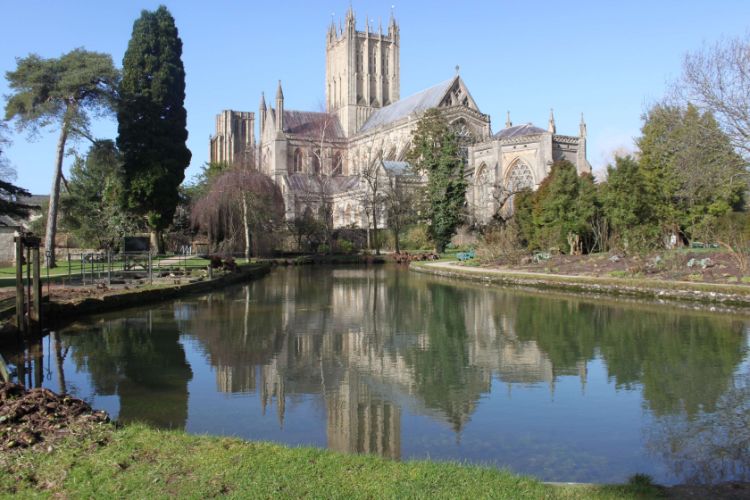
The Bishop's Palace
WellsThe Wells and Mendip Museum is conveniently located next to Wells Cathedral, making it an easy addition to a day of sightseeing. The museum itself is housed in the former Chancellors' House, a building with origins dating back to the 15th century. However, most of the current structure of the building is from the 17th and 18th centuries, adding a historical charm to your visit.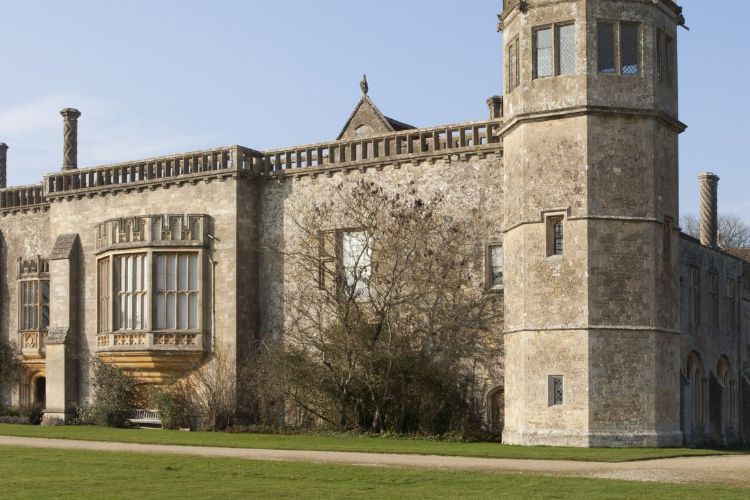
Lacock Abbey
LacockLacock Abbey is a house with over 800 years of history. Founded as an abbey in 1232, it has been a home to many different characters, each of whom has put their own unique stamp on the building.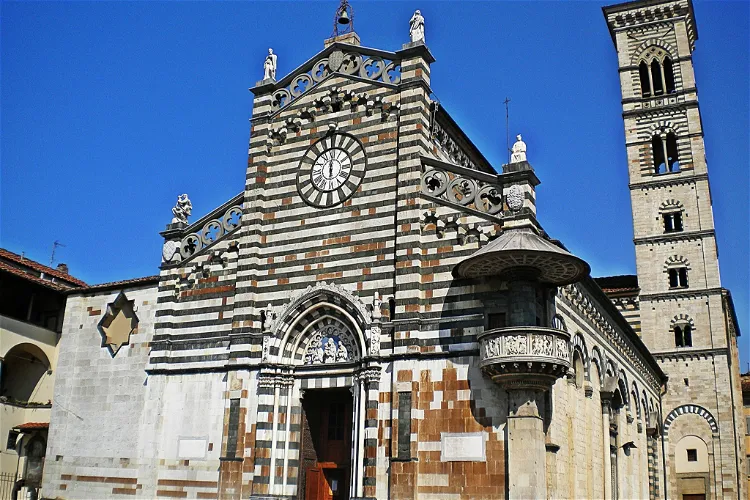
Museo dell'Opera dell Duomo
PratoThe museum's collection is organized as a diocesan museum. In 1980, the vaults beneath the cathedral's transept were incorporated into the museum's space. Further areas were added between 1993 and 1996, culminating in a comprehensive itinerary that takes visitors through various sections of the museum. This journey includes rooms in the old Palazo dei Proposti, around the harmonious Romanesque cloister, and concludes under the cathedral.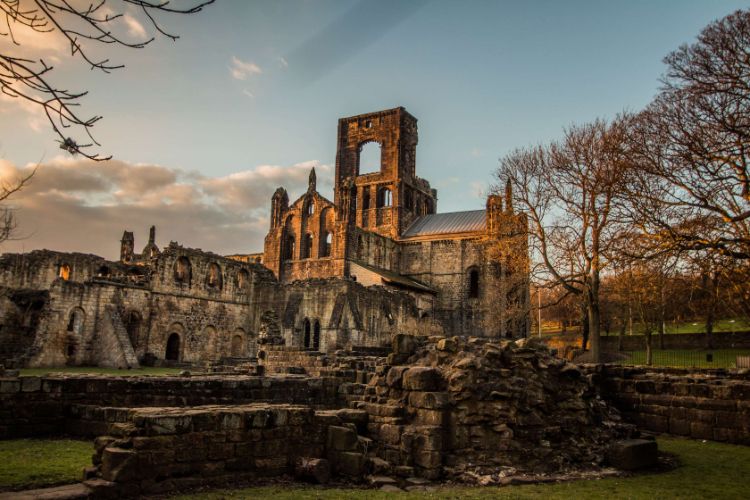
Kirkstall Abbey
LeedsKirkstall Abbey, located on the outskirts of Leeds in Yorkshire county, is a historical site that offers a glimpse into the past. The ruins of this ancient Cistercian monastery are situated in a public park on the north bank of the River Aire. This location not only provides a serene setting for the ruins but also offers visitors a chance to enjoy the natural beauty of the area.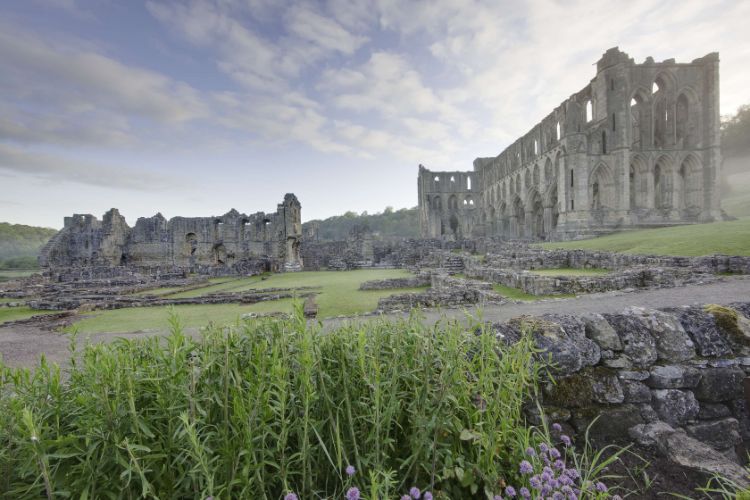
Rievaulx Abbey
HelmsleyRievaulx Abbey is a museum in Helmsley. The museum features exhibits related to: decorative and applied art.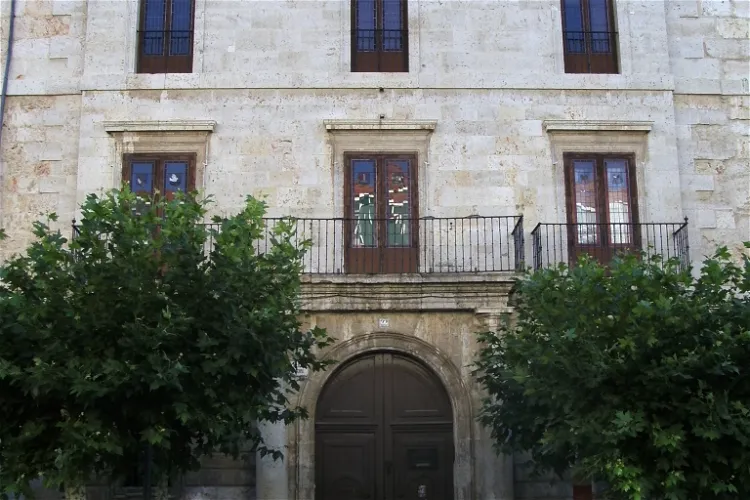
Diocesan Museum
PalenciaThe Diocesan Museum of Palencia, inaugurated in 1973, is a museum dedicated to the custody and study of the sacred art of the diocese. It is located in the Episcopal Palace of the capital of Palencia, a significant historical site in itself.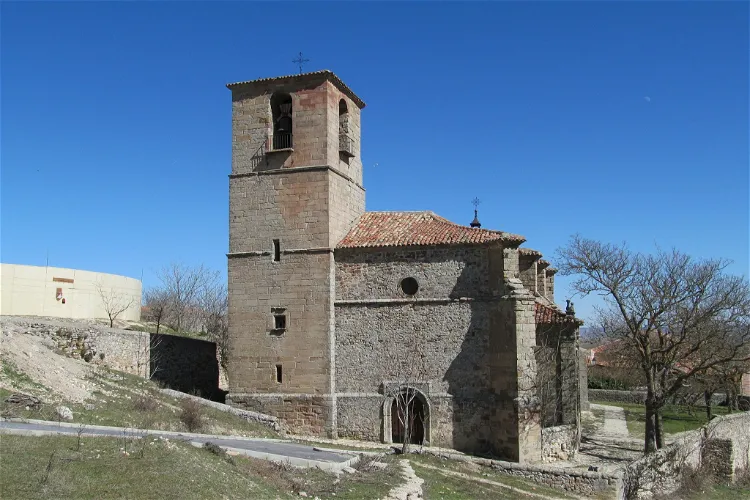
Church of the Holy Trinity
AtienzaThe Church of the Holy Trinity, located in Atienza, is a Romanesque style Catholic church that dates back to the late 12th century. This historical monument offers a glimpse into the architectural style and religious practices of the period. Its unique design and historical significance make it a point of interest for tourists visiting Atienza.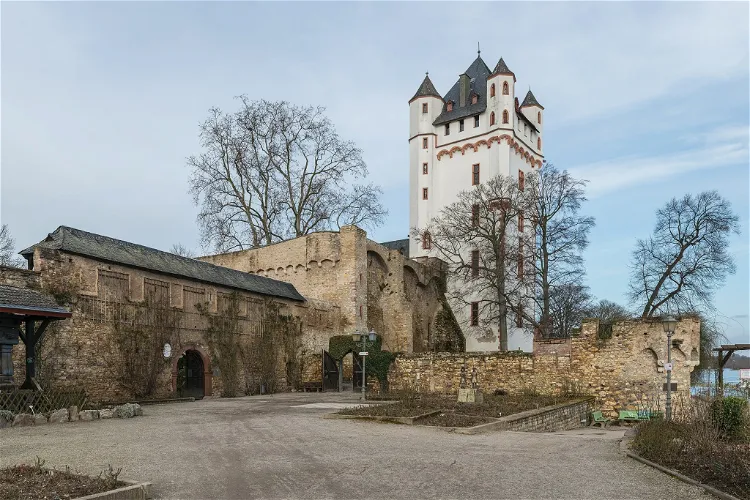
Eltville Castle
Eltville am RheinEltville Castle, also known as the Kurfürstliche Burg, is a significant urban castle located in Eltville am Rhein in the Hessian county of Rheingau-Taunus. The castle serves as a symbol of the town and is a key point of interest for visitors.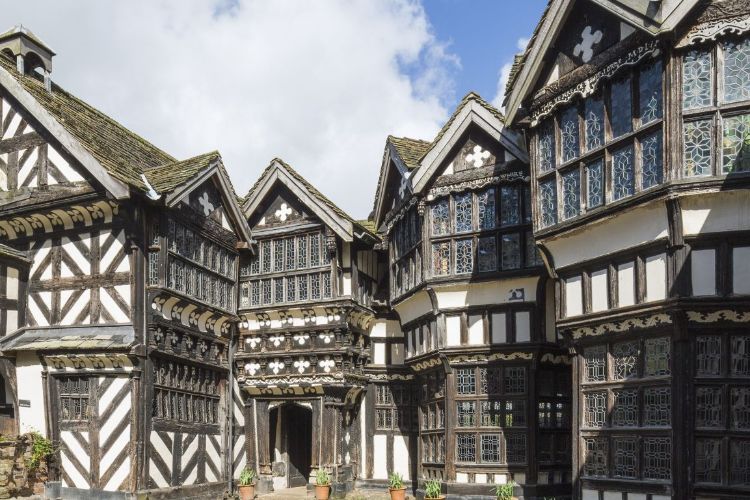
Little Moreton Hall
CongletonLittle Moreton Hall is a historic manor house situated 6.4 km southwest of Congleton, Cheshire, England. This timber-framed house was constructed in the 16th and 17th centuries and is surrounded by a moat, adding to its historic charm. It's a Grade I listed building and is considered one of the best-preserved timber-framed manor houses in the United Kingdom.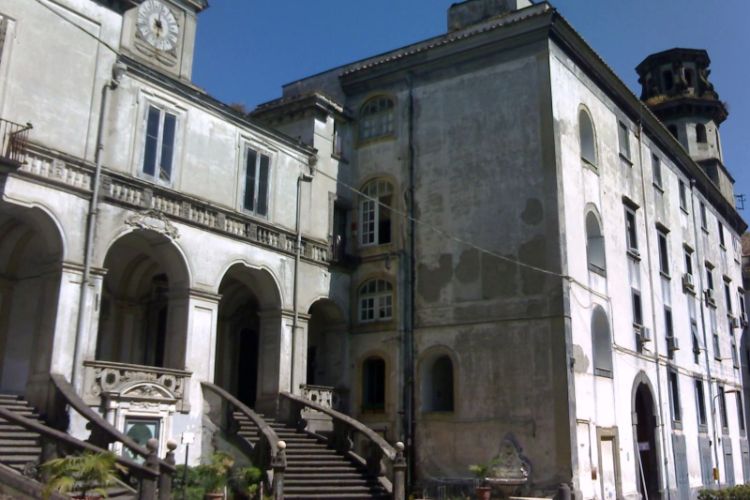
Farmacia Storica degli Incurabili
NaplesThe Ospedale degli Incurabili (Hospital for the Incurables) or Complesso degli Incurabili is an ancient hospital complex in Naples. Part of the complex, including the pharmacy, are now the Museo delle arti sanitarie of Naples. The museum exhibits archival documents, furnishings, silverware, sculptur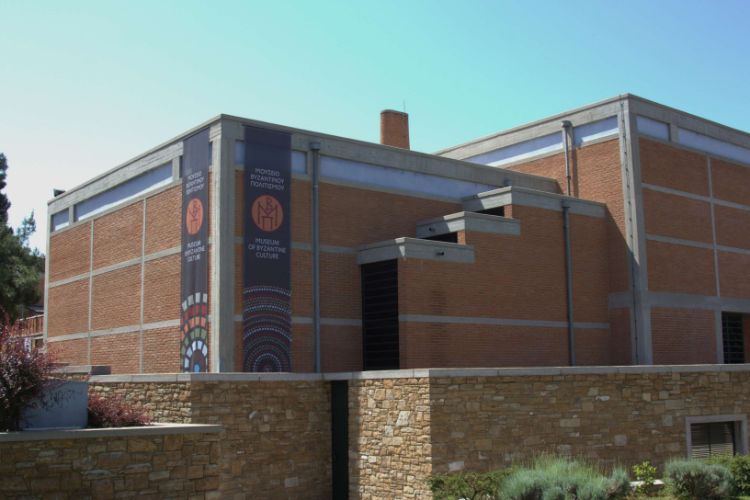
Museum of Byzantine Culture
ThessalonikiThe Museum of Byzantine Culture is a history museum in Thessaloniki with a collection of objects from the 2nd to the 20th century, mostly consisting of coins, seals and small artifacts, but also sculptures and icons, all from Thessaloniki and Macedonia, from churches, private houses and cemeteries.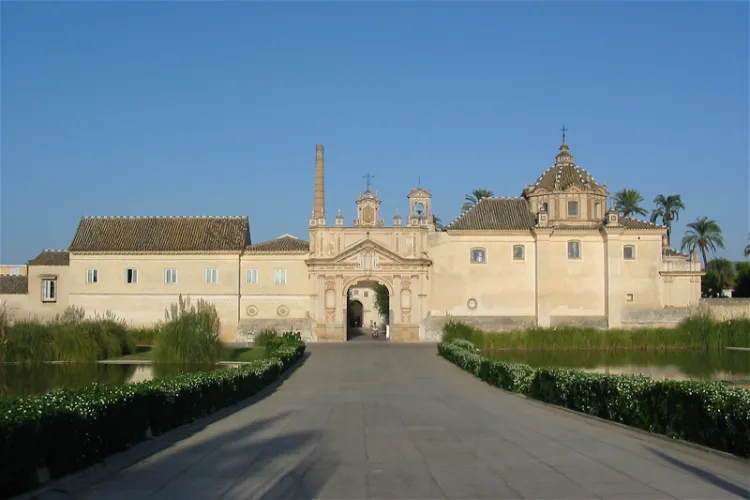
Monastery of the Cartuja
SevilleThe Monastery of Santa María de las Cuevas, also known as La Cartuja, is a former Carthusian monastery located in Seville, the capital of the Andalusia region in Spain. It is situated between the arms of the Guadalquivir on the island of La Cartuja, which got its name from the Carthusian monastery. The monastery was the symbolic center of the Expo 92, the World Exposition 1992 in Seville.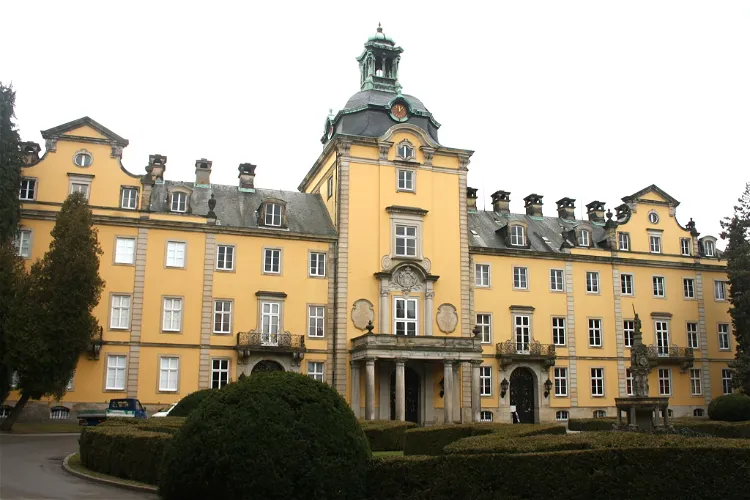
Schloss Bückeburg
BückeburgVisitors can explore Schloss Bückeburg through pre-booked tours. These tours offer a comprehensive experience of the castle, including themed tours that may include a visit to the mausoleum, a meal at the castle restaurant, or horse riding demonstrations. This provides a unique opportunity to delve into the history and culture of the castle and its surroundings.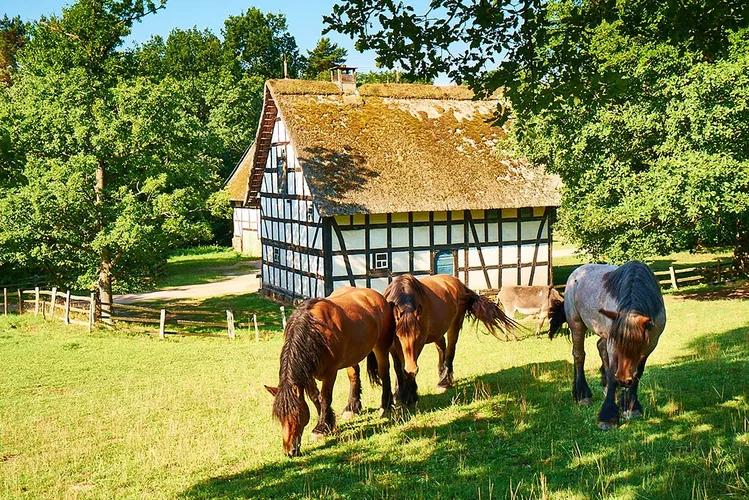
Kommern Open Air Museum
MechernichThe Kommern Open Air Museum, located in Kommern/Eifel, is recognized as one of the largest open air museums in Europe. It spans an impressive area of over 95 hectares and showcases approximately 67 historic buildings that originate from the Prussian Rhine Province. The museum is operated by the Rhineland Regional Association (Landschaftsverband Rheinland, LVR).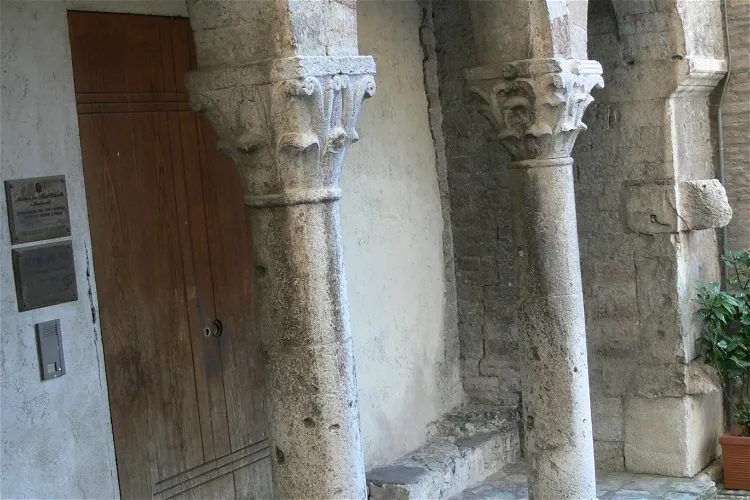
Museo archeologico nazionale e Teatro romano di Spoleto
SpoletoThe National Archaeological Museum of Spoleto is an Italian state museum that is situated within the monumental complex of Sant'Agata in Spoleto. Since December 2014, the museum has been managed by the Umbria Museum Pole, which became the Regional Museum Directorate in December 2019. This museum is a significant cultural institution that houses a vast collection of archaeological artifacts.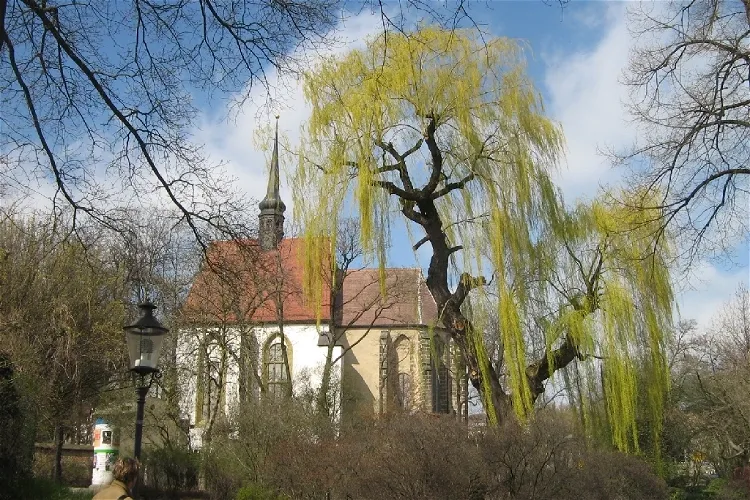
Museum Church of the Holy Cross
ZittauThe Church of the Holy Cross in Zittau, located in Saxony, is a secularized Gothic church. It is known for being the largest single-support room in Germany. The church now serves as a museum, where the Great Zittau Lenten Veil is exhibited. This historical artifact is a significant part of the museum's collection and is a major attraction for visitors.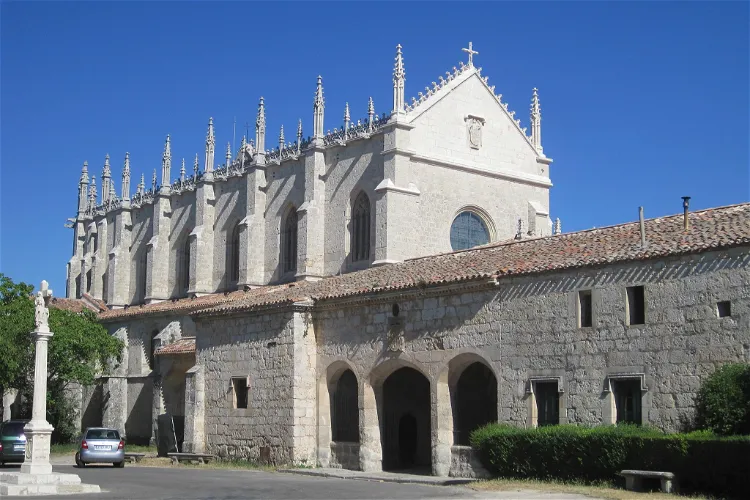
Miraflores Charterhouse
BurgosLa Chartreuse Notre-Dame de Miraflores, an ancient Carthusian monastery, is located on a hill known as Miraflores. This historical site is situated approximately three kilometers from the city center of Burgos, in the Fuentes Blancas park. The serene surroundings and the historical significance of the monastery make it an interesting site for tourists visiting Burgos.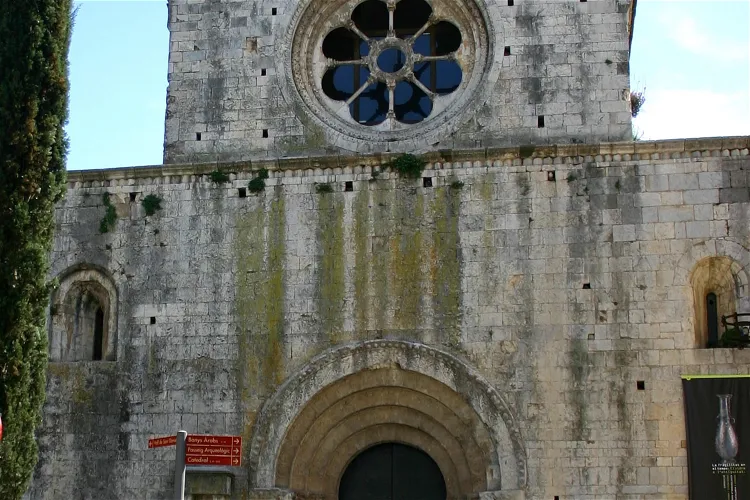
Archaeology Museum of Catalonia
GeronaThe Archaeology Museum of Catalonia in Gerona is housed in the historic monastery of San Pedro de Galligans. Established in 1857, the museum continues to operate from this location, offering visitors a unique blend of history and culture. The museum's setting in a former monastery adds a layer of historical significance to the artifacts on display.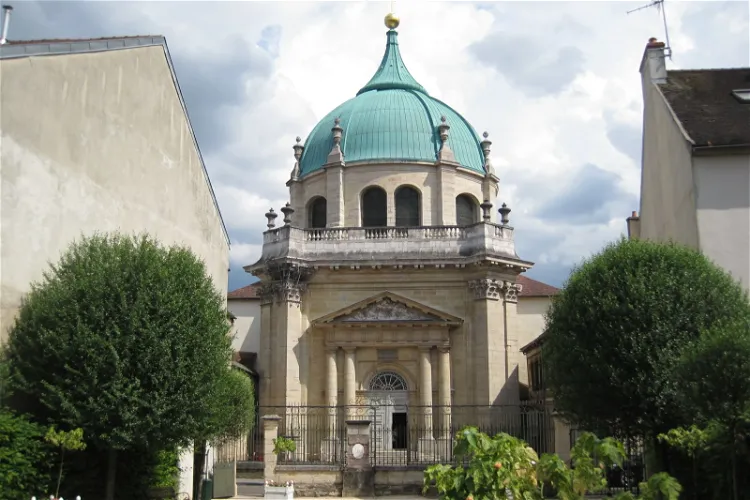
Église Sainte-Anne
DijonThe Sainte-Anne Church in Dijon is a unique architectural structure. It is a circular church with a copper dome, built in the 18th century. The church is dedicated to Saint Anne and is associated with the Bernardines monastery of Dijon, which dates back to the 17th century. This combination of religious and architectural history makes it a fascinating place to visit.
Scuola di San Giorgio degli Schiavoni
VeniceThe interior of the Scuola Dalmata dei Santi Giorgio e Trifone is adorned with a series of significant works of art. Among these is a renowned pictorial cycle by Vittore Carpaccio, a prominent Venetian painter of the early Renaissance. This cycle of paintings, depicting the stories of the school's patron saints, is still visible in the lower hall of the school and is a highlight for visitors.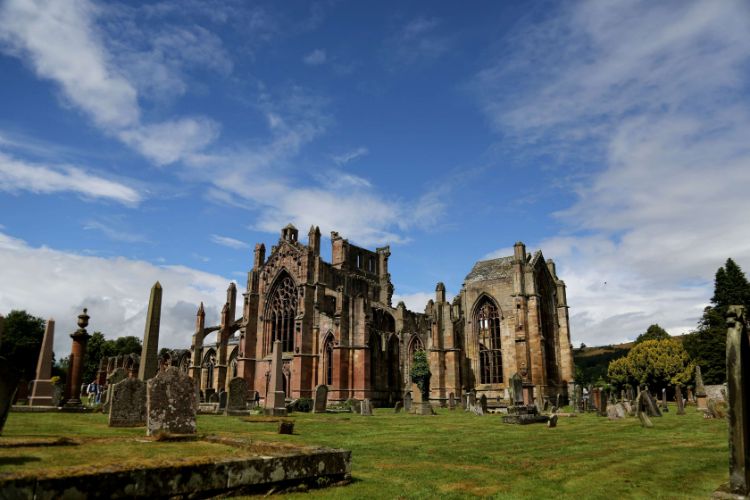
Melrose Abbey
MelroseMelrose Abbey, a historical site in Melrose, Scotland, was established in 1136. The Cistercian monks from Clairvaux Abbey in France founded it at the request of King David I, who was the King of Scotland at the time. This historical context adds to the rich tapestry of the Abbey's past, making it a fascinating site for visitors interested in history and architecture.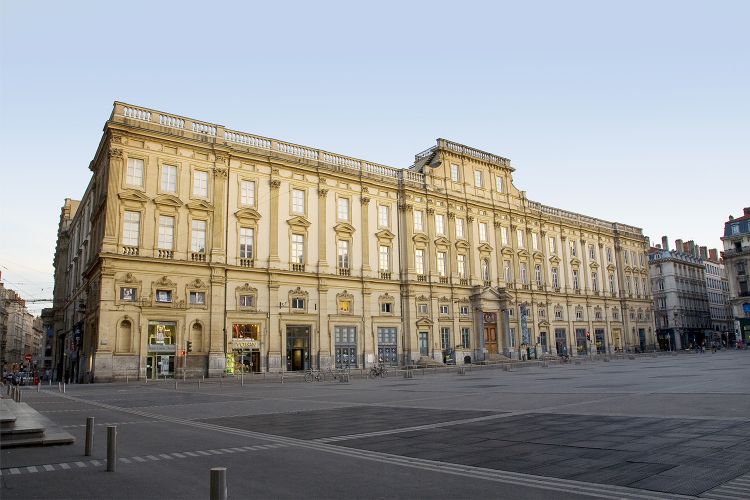
Musee des Beaux-Arts
LyonMusee des Beaux-Arts (The Museum of Fine Arts of Lyon) is a municipal museum of fine arts in Lyon and is one of the largest art museums in France. The museum is housed in a former Benedictine convent of the 17th and 18th century. The Musee des Beaux-Arts holds diverse collections consisting of objec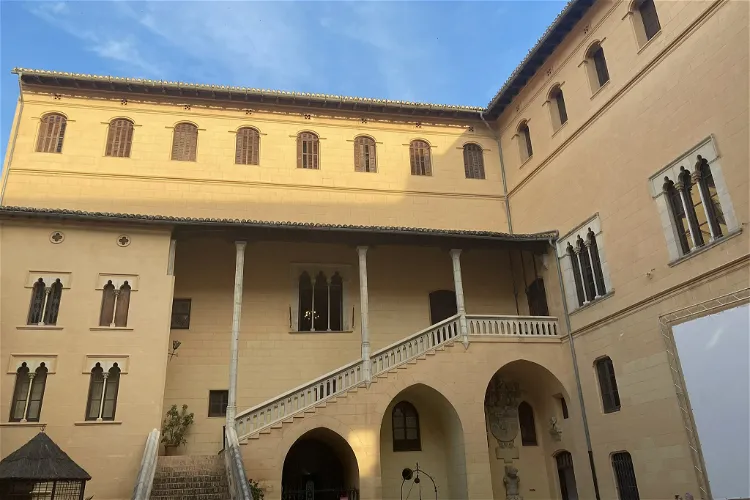
Ducal Palace of Gandia
GandíaThe Ducal Palace of Gandía, a significant monument in the city of Gandía, has seen numerous restorations over the years. This important example of Valencian civil Gothic architecture is a testament to the city's rich history and cultural heritage.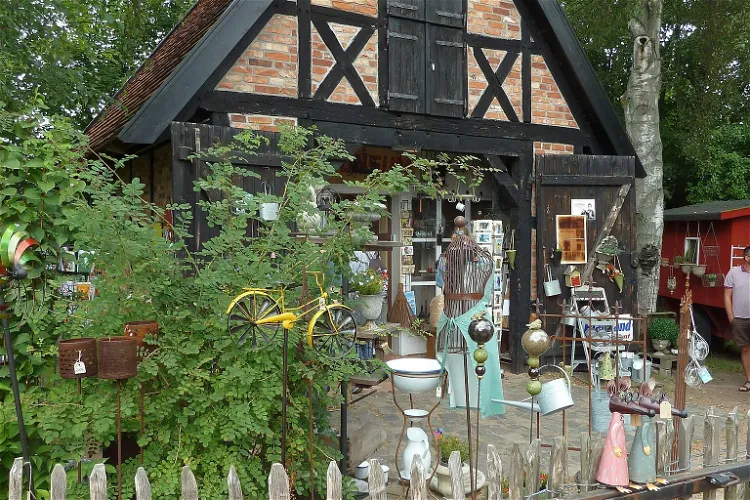
Freilichtmuseum Klockenhagen
Ribnitz-DamgartenThe Freilichtmuseum Klockenhagen is open to visitors from April 1 to October 31. During this period, the museum hosts a variety of events including plant tours, sheep shearing, book readings, and craftsman days. Additionally, a special exhibition is regularly displayed during the summer season, providing a unique experience for visitors.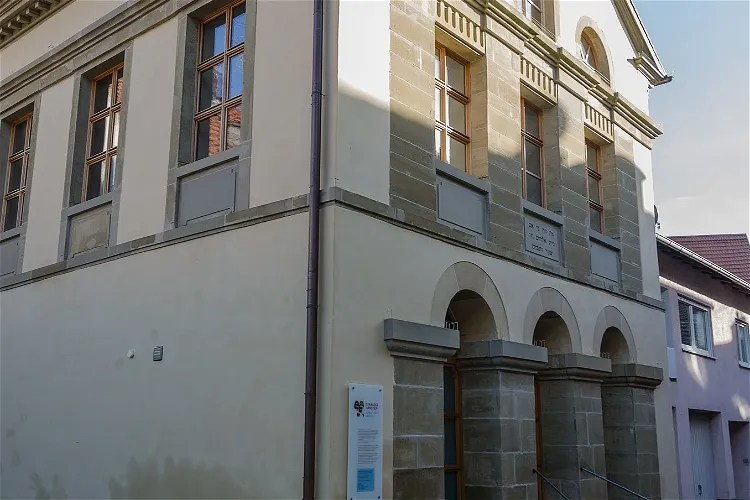
Alte Synagoge Arnstein
ArnsteinThe Alte Synagoge Arnstein, located in the Lower Franconian district of Main-Spessart in Bavaria, is a historical site that dates back to 1819. This former synagogue is a testament to the rich Jewish history of the region and offers a unique glimpse into the past.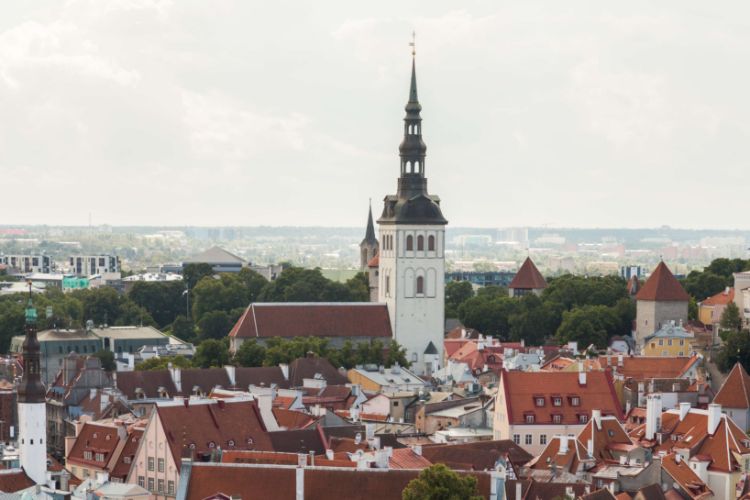
Niguliste museum
TallinnThe Niguliste Museum is an open-air museum in the Old Town of Niguliste and is one of the branches of the Art Museum of Estonia. The Niguliste museum has the largest and most remarkable collection of older sacred art in Estonia. Bernt Notke's "Death Dance" is a highlight in the museum. The museum al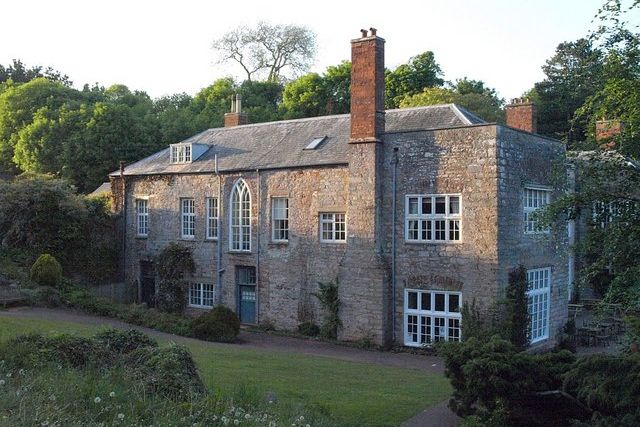
Cockington Court
TorquayJust a mile from Torquay seafront, historic Cockington Court is nestled within 460 acres of country park and is home to a growing number of skilled craftsmen – watch them as they work and perhaps indulge in a spot of retail therapy in their studios. Thanks to new funding, additional craft studios an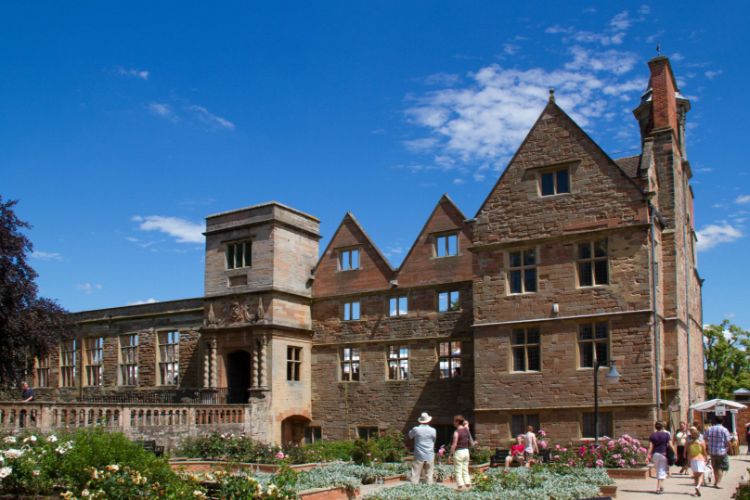
Rufford Abbey and Country Park
OllertonRufford Abbey and Country Park is a museum in Ollerton. The museum features exhibits related to Architecture, Decorative and Applied Art and Religion.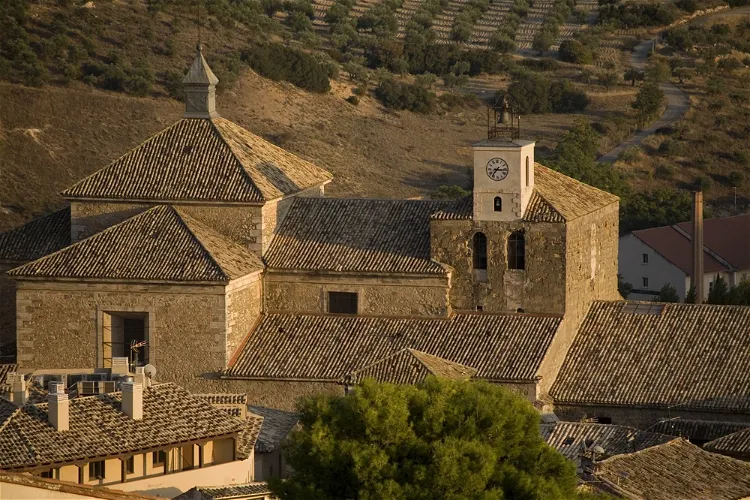
Collegiate Church
PastranaThe Collegiate Church of the Assumption is not just a place of worship, but also a museum housing a significant collection of tapestries and a wide variety of art pieces. These include paintings, altars, goldsmithing elements, and reliquaries. This diverse collection provides a comprehensive overview of the artistic and cultural richness of the region.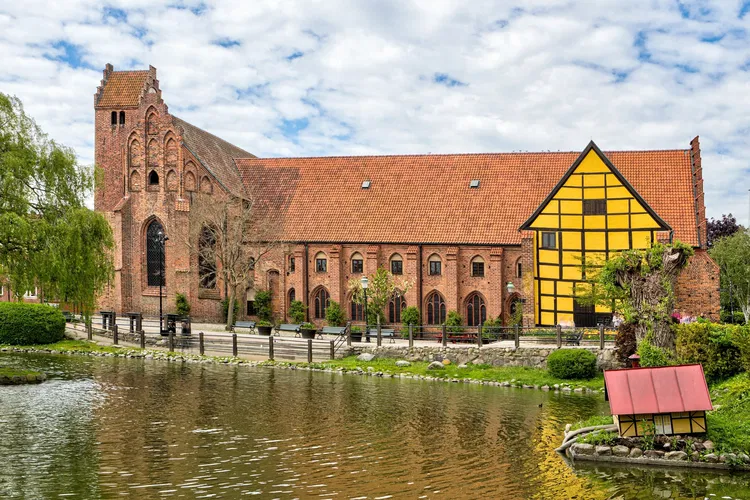
Greyfriars Abbey
YstadThe Greyfriars Abbey, also known as the Abbey in Ystad, is a significant historical site in Ystad, Sweden. This medieval former friary is recognized as one of the best-preserved medieval monasteries in the country. Its rich history and architectural beauty make it a fascinating destination for those interested in history, architecture, and culture.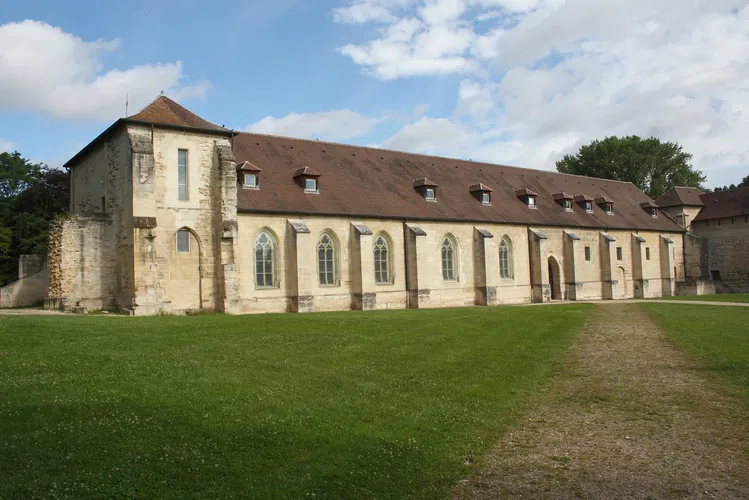
Maubuisson Abbey
Saint-Ouen-l'AumôneThe Maubuisson Abbey, located in the municipality of Saint-Ouen-l'Aumône in the French department of Val-d'Oise, is a former abbey for female Cistercians. This historical site offers a glimpse into the religious and cultural history of the region, making it a significant point of interest for tourists.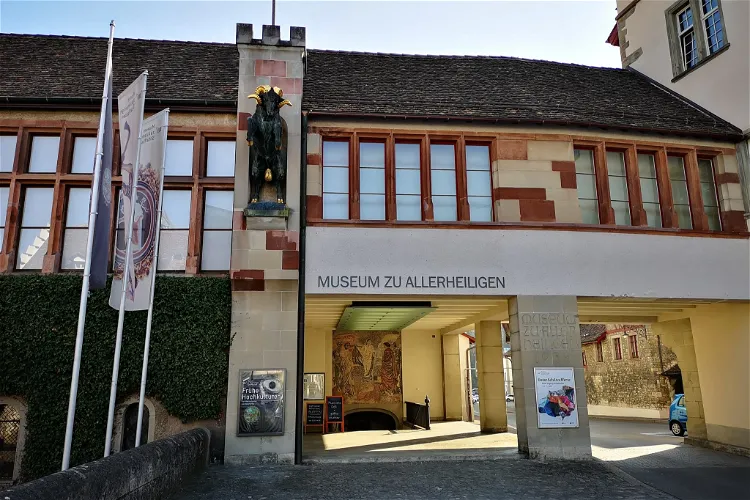
Museum zu Allerheiligen
SchaffhausenThe Museum zu Allerheiligen, located in the old town of Schaffhausen, is a significant cultural institution in the region. It is housed in the former Benedictine monastery of All Saints, adding a historical and architectural charm to the museum. The museum's location in the old town makes it easily accessible for tourists and provides a unique backdrop for the diverse collections it houses.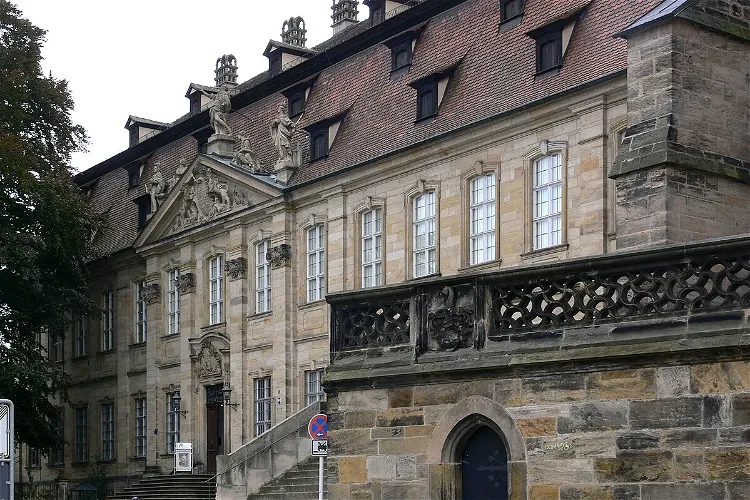
Bamberg Diocesan Museum
BambergThe Bamberg Diocesan Museum, situated in the chapter house adjacent to the cathedral, is home to a vast collection of art treasures. These treasures originate from the old cathedral treasury of Bamberg Cathedral and span the entire archdiocese. The museum offers a unique opportunity to explore the rich history and artistic heritage of the region.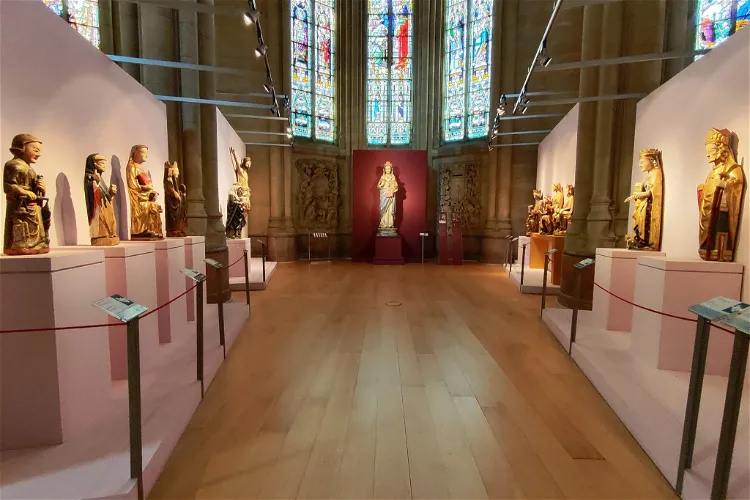
Diocesan Museum of Sacred Art
Vitoria-GasteizThe Diocesan Museum of Sacred Art, also known as Elizbarrutiko Arte Sakratuaren Museoa, is situated in the ambulatory of the Cathedral of Saint Mary Immaculate. This museum is located in the city of Vitoria-Gasteiz, Alava, in the Basque Country of Spain. It is a significant cultural and historical site that showcases a wide range of sacred art.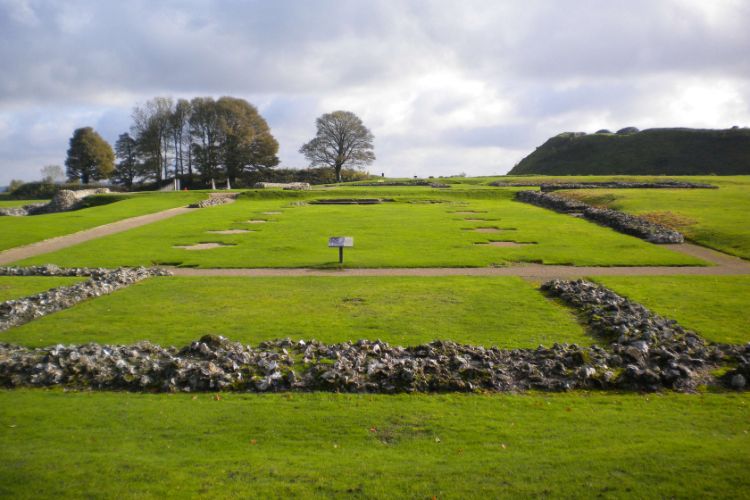
Old Sarum
SalisburyThe great earthwork of Old Sarum stands near Salisbury on the edge of Wiltshire's chalk plains. Its ramparts were raised in about 500 BC by Iron Age peoples, and later occupied by the Romans, the Saxons and, most importantly, the Normans. Today, the remains of the prehistoric fortress and of the Nor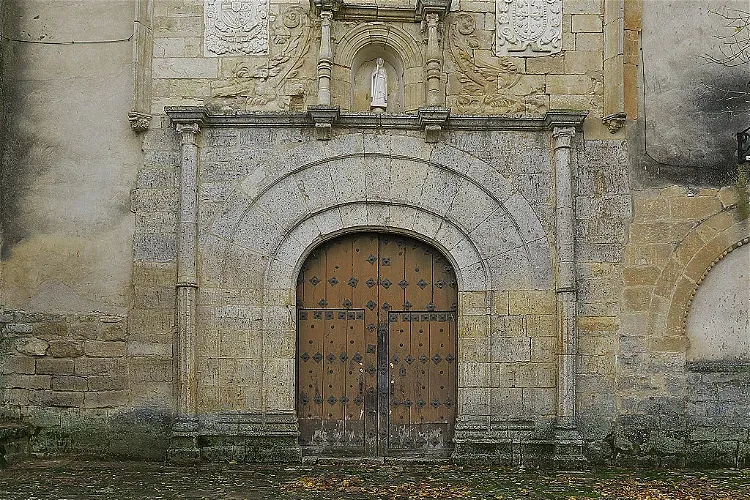
Monastery of Sancti Spiritus
ToroWithin the Monastery of Sancti Spiritus el Real, visitors can find the Museum of Sacred Art of Toro. This museum is home to a unique collection of polychrome sargas from the 16th century. These sargas depict scenes from the Passion, taken from large-scale Italo-Flemish prints. This collection provides a unique insight into the religious art of the period and is a must-see for any art enthusiasts or those interested in religious history.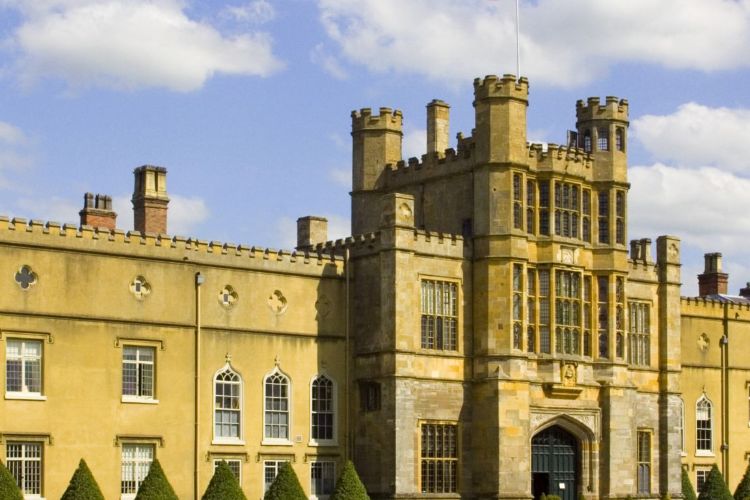
Coughton Court
AlcesterCoughton Court is a Grade I listed English Tudor country house located on the main road between Studley and Alcester in Warwickshire. This historic building is a significant part of England's architectural heritage and offers a glimpse into the country's past.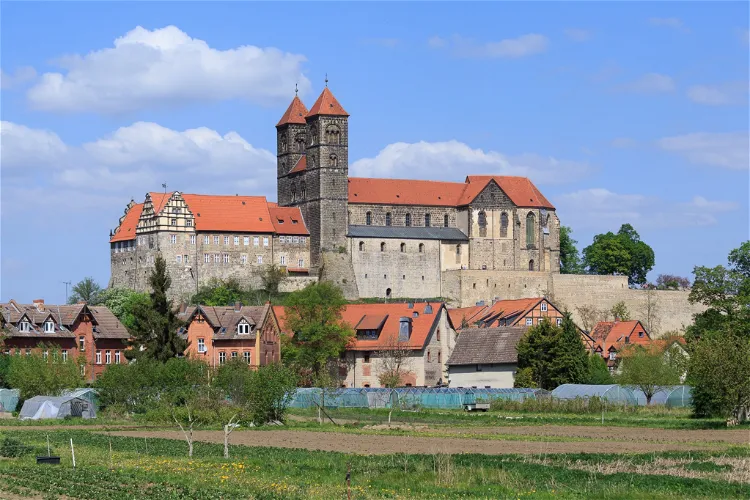
Stiftskirche St. Servaii Domschatz Quedlinburg
QuedlinburgThe Stiftskirche St. Servatius, also known as the Quedlinburg Cathedral, is a Protestant religious building located in Quedlinburg, Germany. This historic structure is a significant part of the city's cultural and religious heritage.
Torre Abbey Historic House and Gardens
TorquayTorre Abbey, located in Torquay, Devon, is a historic building that serves as an art gallery. It was originally established in 1196 as a monastery for Premonstratensian canons. This rich history adds a unique charm to the Abbey, making it a fascinating destination for tourists interested in history and art.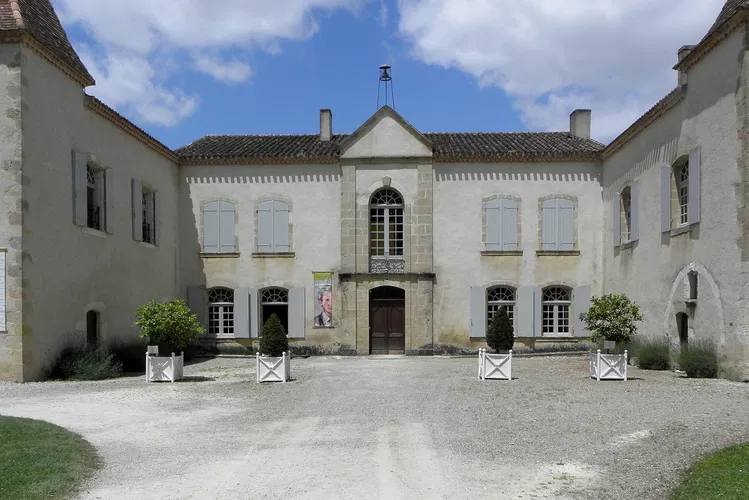
Flaran Abbey
Valence-sur-BaïseFlaran Abbey, a former Cistercian abbey, is situated in Valence-sur-Baïse, in the French department of Gers. This historical site offers a glimpse into the past, showcasing the architectural styles of the Romanesque and Gothic periods. The abbey is one of the best-preserved in the southwest of France, making it a significant landmark for those interested in history and architecture.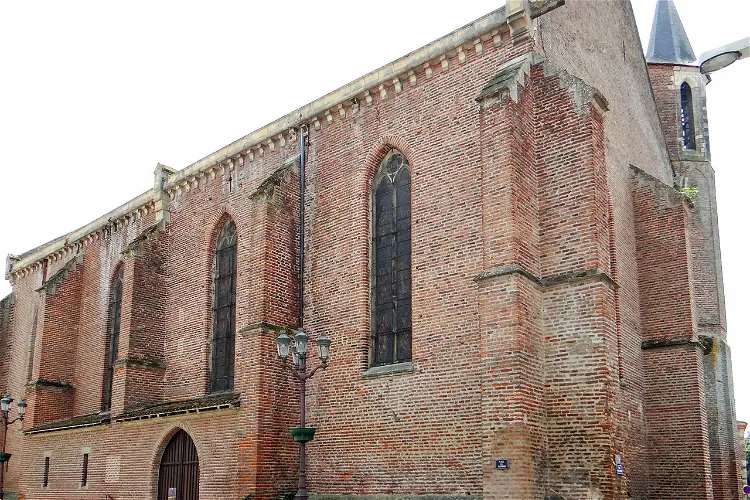
Église Notre-Dame des Jacobins
AgenThe Église Notre-Dame des Jacobins is a historical monument located in Agen, France. This 14th-century construction is situated between Rue Richard-Cœur-de-Lion and Rue Alexis-Pain. The church was originally built by the Dominican order, also known as the Jacobins, and has since become a significant part of the city's history and culture.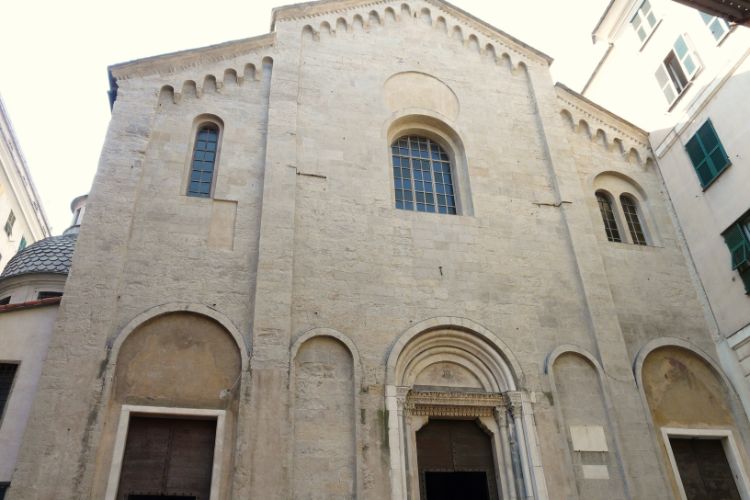
Basilica di Santa Maria di Castello
GenoaThe church of Santa Maria di Castello is a Catholic religious building in the historic center of Genoa, on the hillside in the district of Molo. It is one of the oldest Christian places of worship in Genoa and one of the most intact Romanesque buildings in the city. The Museum of Santa Maria di Cast
National Archaeological Museum of Tarragona
TarragonaThe National Archaeological Museum of Tarragona, also known as Museu Nacional Arqueològic de Tarragona or MNAT, is a public museum situated in the city of Tarragona in Catalonia, Spain. The museum is home to a variety of elements and remains that reflect the city's rich history and heritage.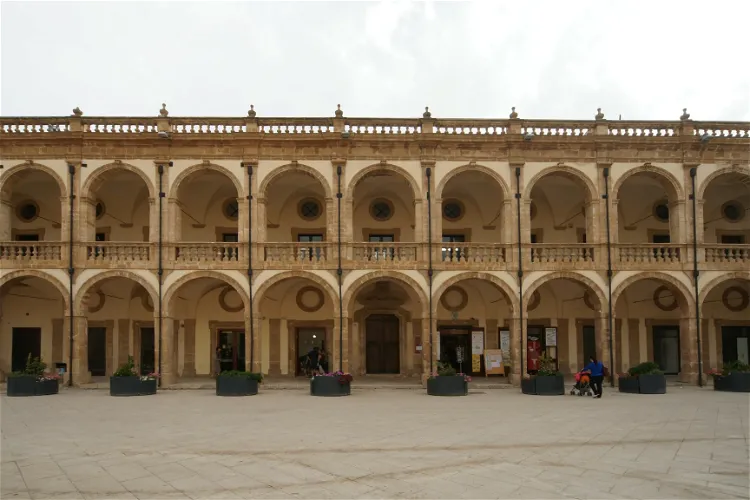
Museo Diocesano di Mazara Del Vallo
Mazara del ValloThe Diocesan Museum "Vito Ballatore" in Mazara del Vallo is a repository of a significant collection of sacred art. This includes sculptures, silverware, and sacred vestments that span from the 14th to the 19th century. The museum also houses a variety of paintings, making it a rich source of historical and artistic knowledge.Collégiale Sainte-Waudru et Trésor de Mons
Mons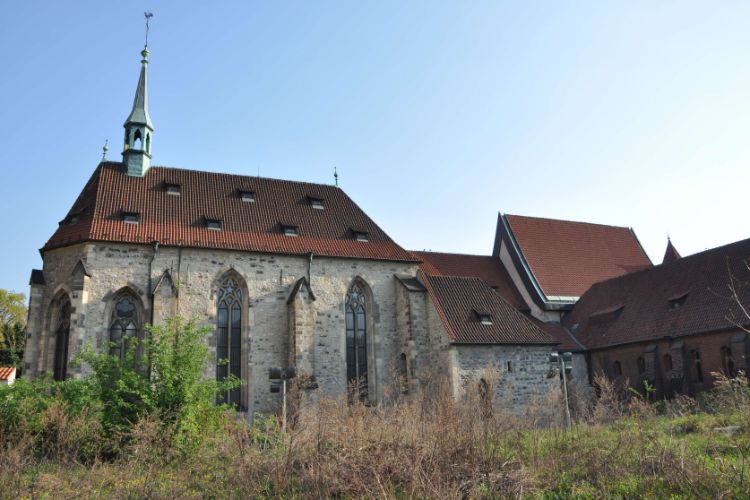
Convent of Saint Agnes of Bohemia
PragueThe Convent of Saint Agnes of Bohemia in Prague is a 13th-century building which originally served as a convent founded by Saint Agnes of Bohemia. Located on the right bank of the Vltava river, this Gothic building is one of the oldest of its kind in Prague. The convent houses a collection of Renais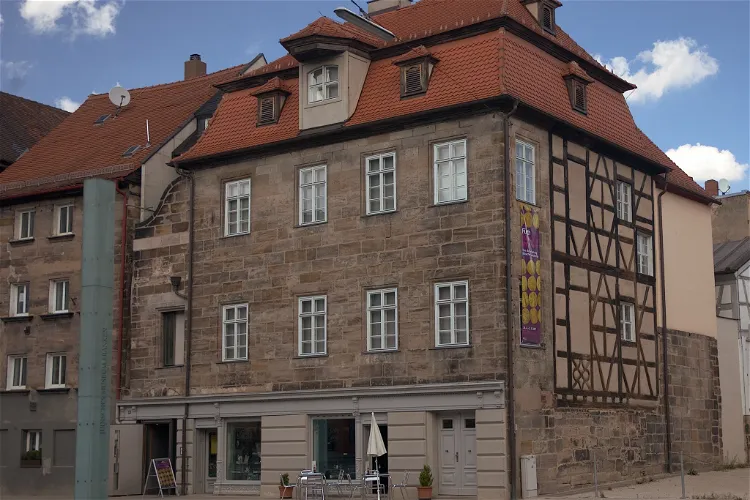
Jewish Museum of Franconia in Fuerth
FürthThe Jewish Museum of Franconia is a unique institution that spans three locations in Fürth, Schnaittach, and Schwabach. Each of these locations is a historical monument, offering visitors a chance to immerse themselves in the rich history of Jewish life in Franconia. The museum showcases the diversity of Franconian Jewish life from its beginnings to the present day.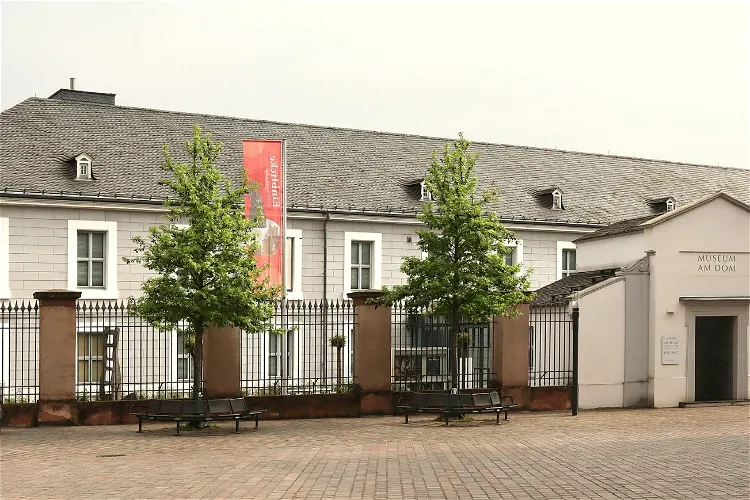
Trier Cathedral Museum
TrierIn addition to its main focus, the Museum am Dom Trier also conducts research on the late antique predecessor buildings of the Trier Cathedral, which is the oldest German bishop's church. This research provides valuable insights into the architectural evolution of the cathedral and its historical significance.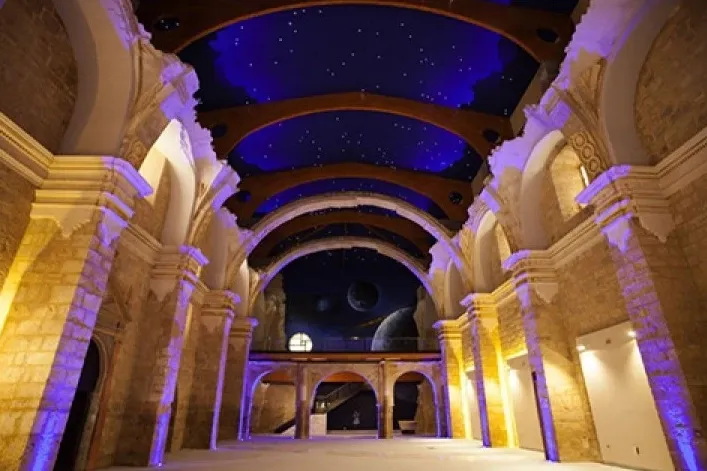
San Pedro Cultural
Becerril de CamposSan Pedro Cultural is a unique monument that was inaugurated on March 19, 2015. It was built from the ruins of the Church of San Pedro in the town of Becerril de Campos. This town was declared the most beautiful village in Spain by internet users in 2016. This makes it a significant location for tourists who are interested in history, architecture, and natural beauty.
Brancacci Chapel
FlorenceLocated in the Church of Santa Maria del Carmine, the Brancacci Chapel is notable for its outstanding frescoes made by Masaccio and Masolino, great Italian Renaissance painters. The work on the chapel was finished by Filippino Lippi. Some of the highlights include The Temptation of Adam and Eve and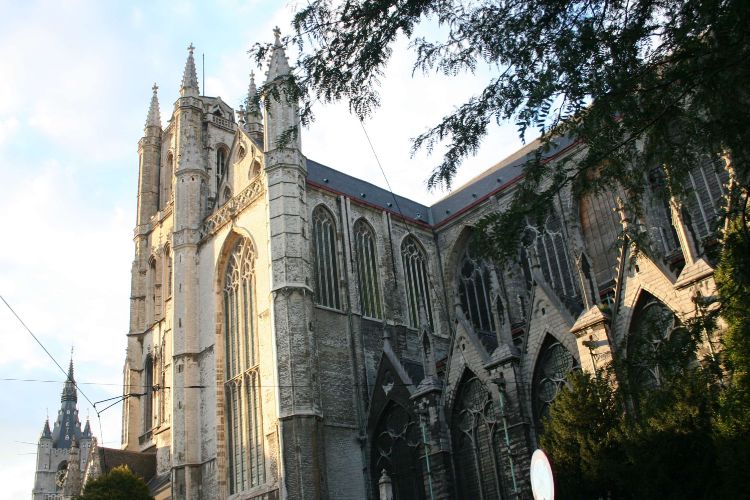
St. Bavo's Cathedral Ghent
GhentSt. Bavo's Cathedral Ghent is characterized by a collection of religiously inspired art accumulated over centuries. The oldest objects date from the 8th century, the youngest from the 20th century. A showpiece is the "Adoration of the Mystic Lamb," a work by brothers Jan and Hubrecht Van Eyck.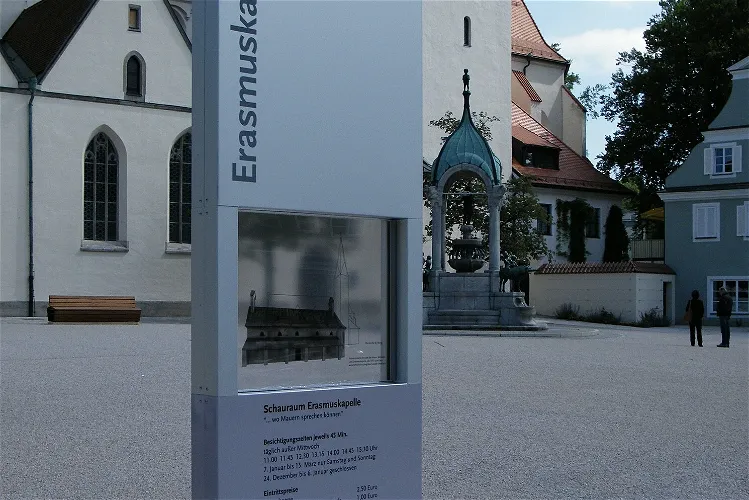
Erasmuskapelle
Kempten (Allgäu)Archaeological investigations conducted between 2003 and 2010 revealed approximately 500 burial sites of a former cemetery. The preserved parts of this archaeological monument were opened to the public in 2010, and it has since been recognized as a tourist attraction.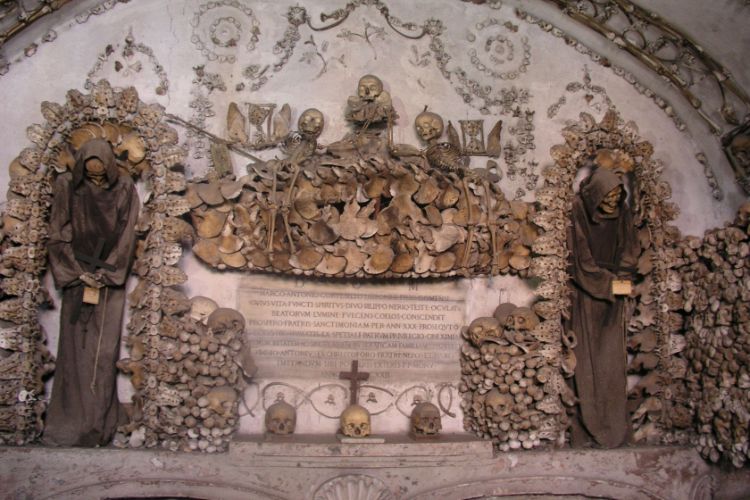
Museum and Crypt of Capuchins
RomeThe Museum and Crypt of Capuchins is located in a crypt under the church Santa Maria della Concezione dei Cappuccini. The museum presents bones of nearly 4000 Capuchin friars stored in the crypt. The bones are arranged into macabre decorations. The Capuchins have been using the church since 1631. So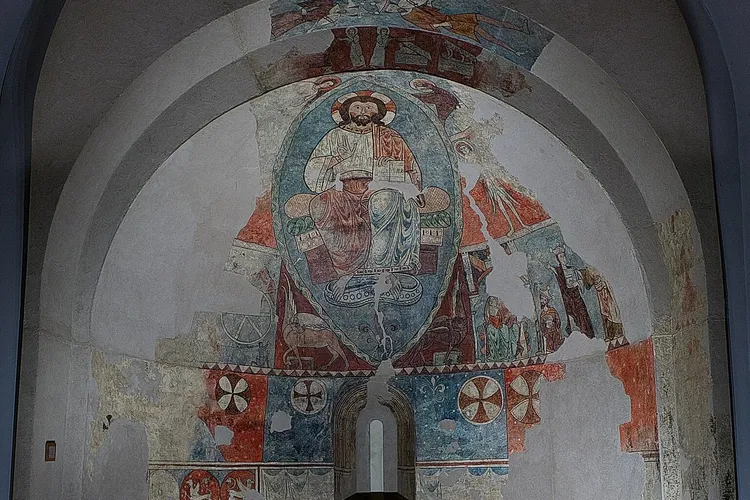
Barbastro Cathedral
BarbastroThe Cathedral of the Assumption of the Virgin Mary, also known as Catedral de Santa María de la Asunción, is a significant landmark in Barbastro, Spain. It serves as the cathedral of the Diocese of Barbastro-Monzón. This cathedral is not only a place of worship but also a historical monument that reflects the rich history and architectural prowess of the region.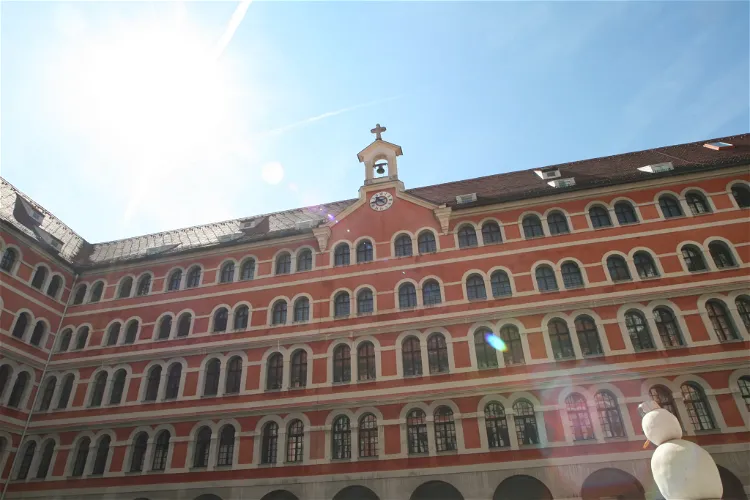
Diözesanmuseum Graz
GrazThe Diözesanmuseum Graz is a museum that represents the Diocese of Graz-Seckau. It is located in Graz, a city in Austria. The museum is a significant institution that showcases the history and culture of the local Catholic Church.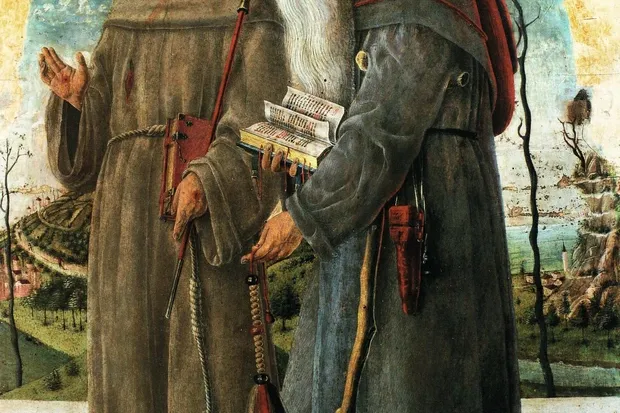
Diocesan Museum of Padua
PaduaThe Diocesan Museum of Padua is a significant cultural institution that showcases a wide array of arts and artifacts associated with the Roman Catholic Diocese of Padua. The museum is located in the Palazzo Vescovile, a former bishop's residence dating back to the 15th century. This historic building adds to the overall charm and appeal of the museum, making it a fascinating destination for those interested in art, history, and religion.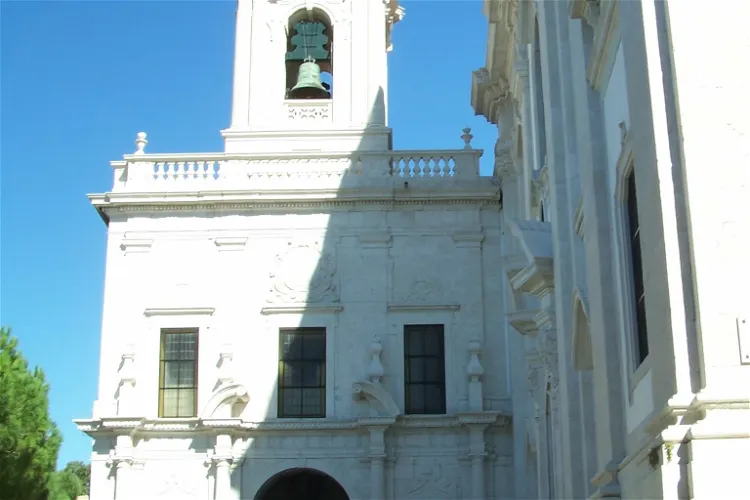
Church of Our Lady of Grace
LisbonThe Convent of Grace, a national monument in Lisbon, is situated in a location that offers panoramic views over the city and the Tagus River. This historic site belonged to the Order of the Hermits of Saint Augustine, also known as the Order of Saint Augustine, and was known as the Order of Gracians in Portugal. The convent dates back to the early days of the Portuguese nation, having been founded in the 13th century.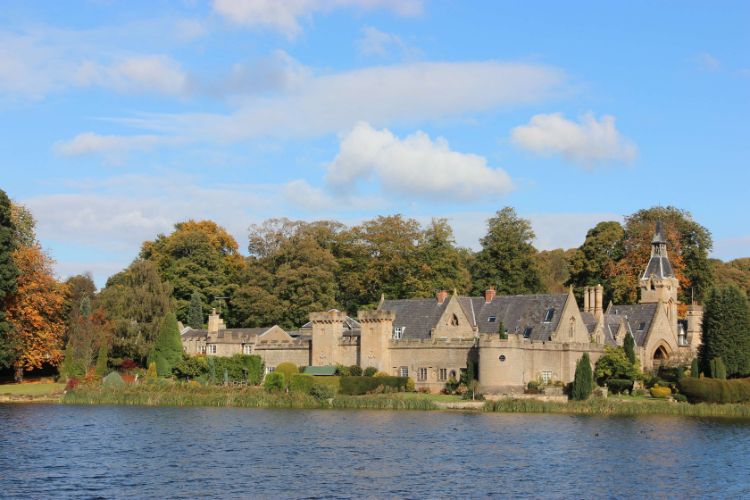
Newstead Abbey
NottinghamNewstead Abbey, located near Nottingham, is a historical site with a rich past. Originally, it was an Augustinian priory, a place of worship and solitude for monks. However, it gained fame as the family home of the renowned poet, Lord Byron. This connection to a significant literary figure adds a layer of cultural and historical significance to the site, making it an interesting destination for those interested in history, literature, and architecture.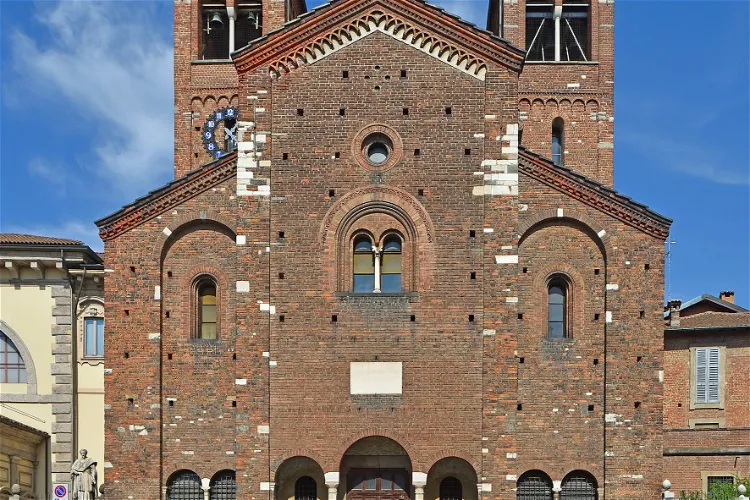
Crypt of San Sepolcro
MilanThe Chiesa di San Sepolcro, a church in Milan, Italy, is a significant historical site. It was originally constructed in 1030 and is situated at Piazza San Sepolcro in the city's historic center. This location makes it easily accessible for tourists and provides a glimpse into the rich history of Milan.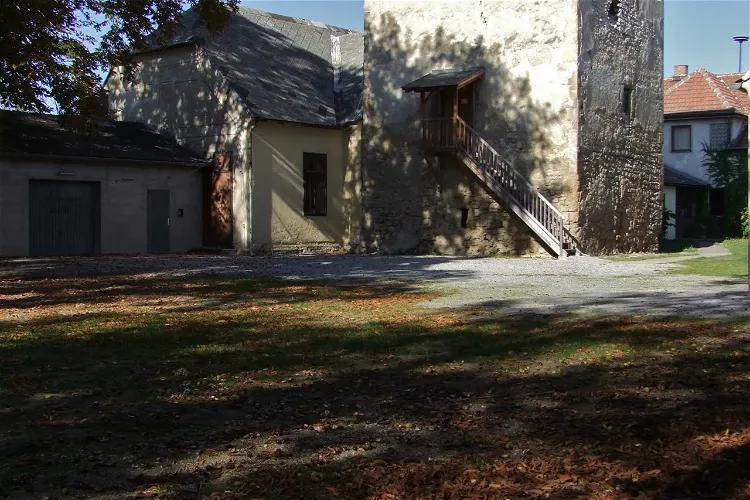
Wehrturm
Palterndorf-DobermannsdorfThe Wehrturm in Palterndorf, located in the Weinviertel region of Lower Austria, holds a rich history. It was first mentioned in the Liechtensteiner Urbar in 1414, but it is believed to be significantly older. This historical significance adds to the charm and allure of the tower, making it an interesting site for tourists who appreciate history.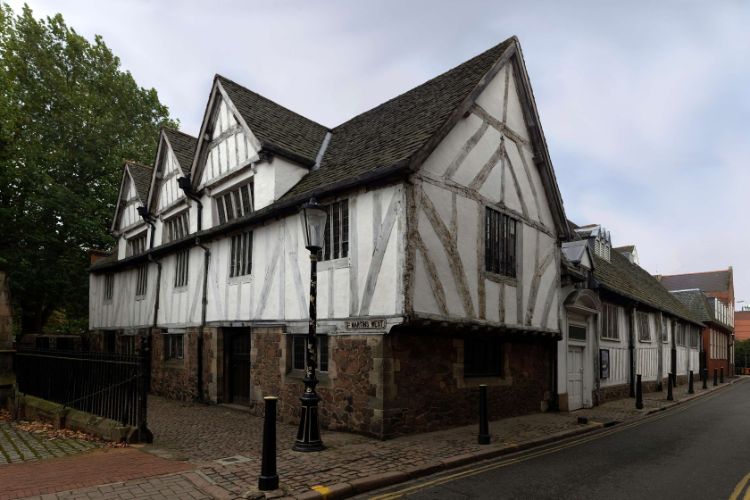
The Guildhall
LeicesterThe Guildhall in Leicester, England, is a historical building with a rich past. Its timber-framed structure dates back to around 1390, making it one of the oldest buildings in the city. This architectural gem once served as the town hall for Leicester until 1876. Today, it stands as a testament to the city's medieval history, offering visitors a glimpse into the past.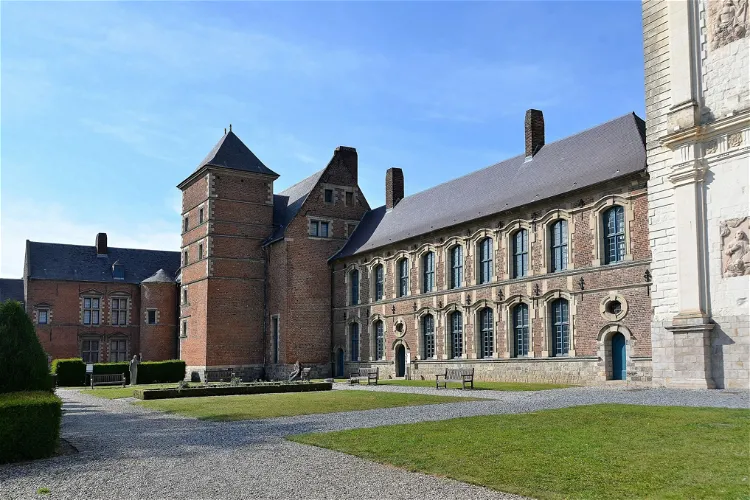
Musée de la Chartreuse
DouaiThe Musée de la Chartreuse, located in Douai, France, is an art museum housed in a former Carthusian monastery. This unique setting provides a historical backdrop to the museum's extensive collection of art, adding an extra layer of interest for visitors.
Old Synagogue, Kraków
KrakówThe Old Synagogue is an orthodox Jewish synagogue in Krakow. It is the oldest existing synagogue in Poland. Various sources mention 1407 and 1492 as the date of construction of the synagogue. The Old Synagogue was rebuilt, expanded and strengthened in 1570. The synagogue was ruined in the Second Wor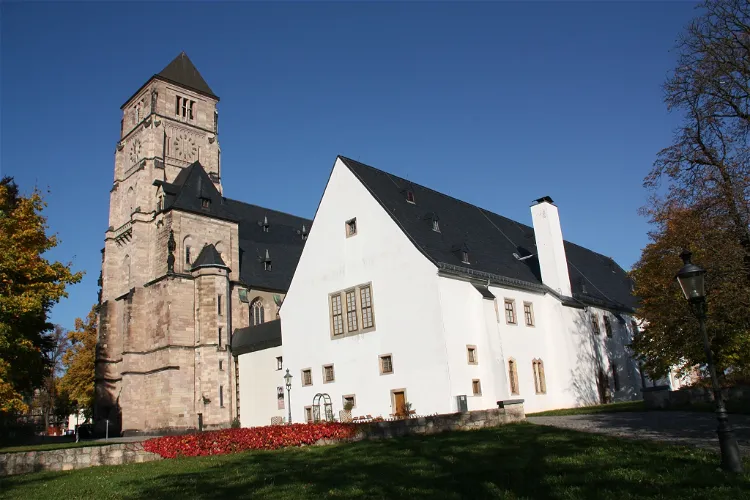
Schloßbergmuseum Chemnitz
ChemnitzThe Schloßbergmuseum is the city history museum of Chemnitz. It is situated in the Schloßchemnitz district on the grounds of an old Benedictine monastery. This location adds a historical charm to the museum, making it a unique place to learn about the city's history.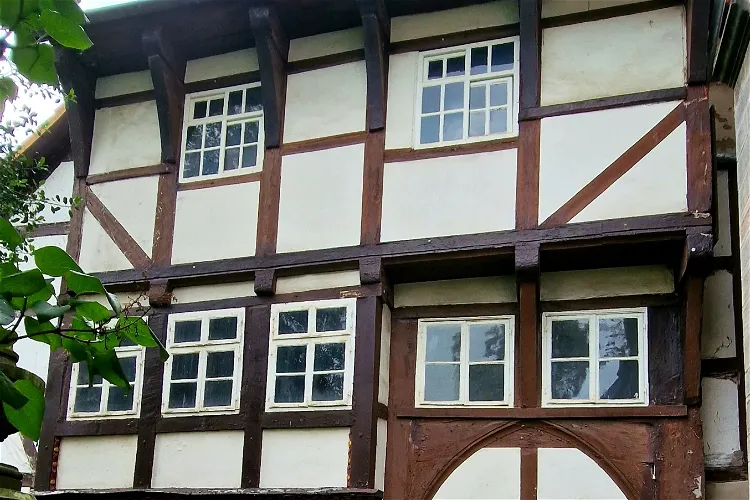
Städtisches Museum
GöttingenThe Städtische Museum Göttingen is a significant repository of the city's history and cultural heritage. It houses around 150,000 objects that trace the cultural evolution of Göttingen and its surroundings from the earliest settlements to the present day. This extensive collection provides a comprehensive insight into the city's past, making it a valuable resource for anyone interested in understanding the historical and cultural context of Göttingen.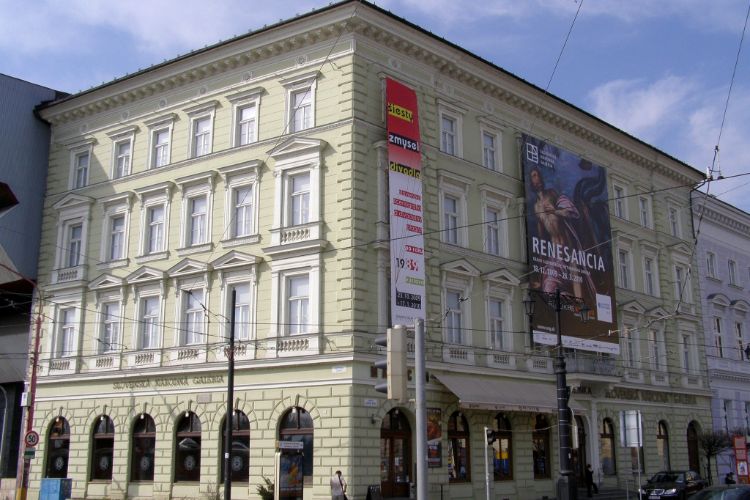
Slovak National Gallery
BratislavaThe Slovak National Gallery (Slovak Slovenská národná galéria, SNG) is the largest association of art museums in Slovakia. Its head office is in Bratislava. In Bratislava, the National Gallery has two exhibition buildings, the Palais Esterházy (Esterházyho palác) and the adjoining Water Barracks (Vo
Dunkeld Cathedral Chapter House Museum
DunkeldDunkeld Cathedral is a significant place of worship for the Church of Scotland. It is situated on the north bank of the River Tay in the town of Dunkeld, within the region of Perth and Kinross in Scotland. This location offers visitors a chance to experience a piece of Scotland's religious history while enjoying the scenic beauty of the surrounding area.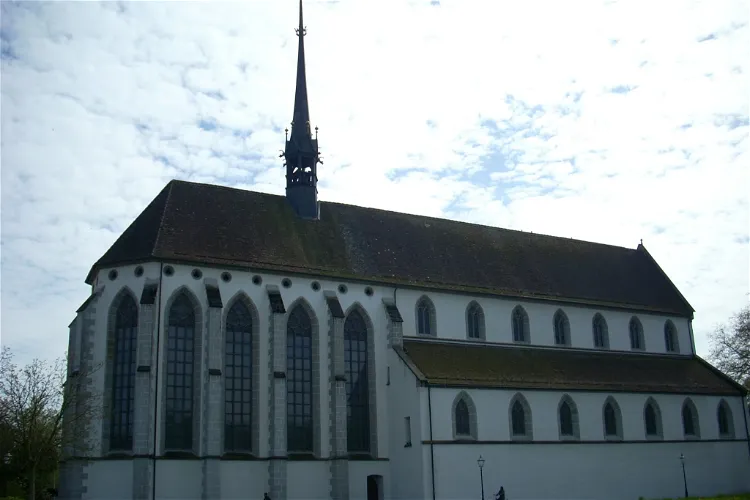
Königsfelden Monastery
WindischKönigsfelden Monastery, located in the municipality of Windisch in the canton of Aargau in Switzerland, is a former Franciscan double monastery. It was home to both a community of Poor Clare nuns and Franciscan friars, who lived in separate wings of the monastery.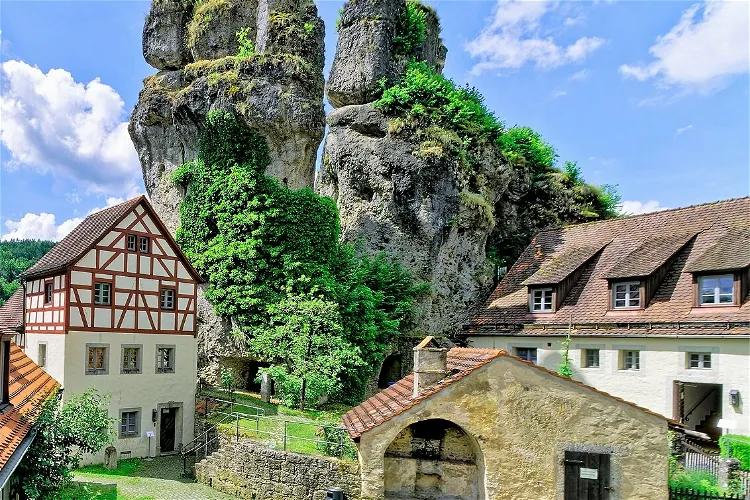
Fränkische-Schweiz-Museum
PottensteinThe Fränkische Schweiz-Museum (FSMT) in Tüchersfeld is a regional museum that offers a comprehensive overview of the Franconian Switzerland. The museum is spread over 43 rooms and covers approximately 800 m² of exhibition space. It provides a deep insight into the region's history, culture, and natural beauty.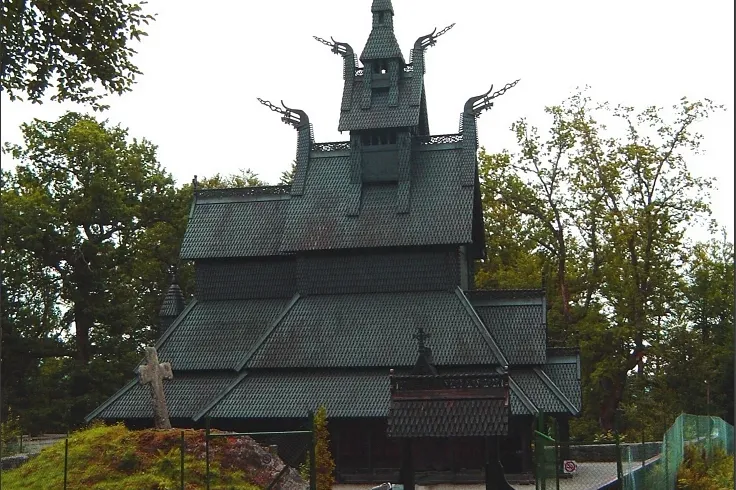
Fantoft Stave Church
BergenThe Fantoft Stave Church that stands today is a reconstruction of the original church that tragically burned down in 1992. The original church was built around the year 1150 and was located in Fortun in Sogn. It was moved and rebuilt in Fantoft in 1883. The reconstruction of the church after the fire was a significant challenge due to the lack of knowledge and experience in building stave churches, which hadn't been done in Norway for many centuries. Despite these challenges, the reconstructed church was completed and inaugurated in 1997.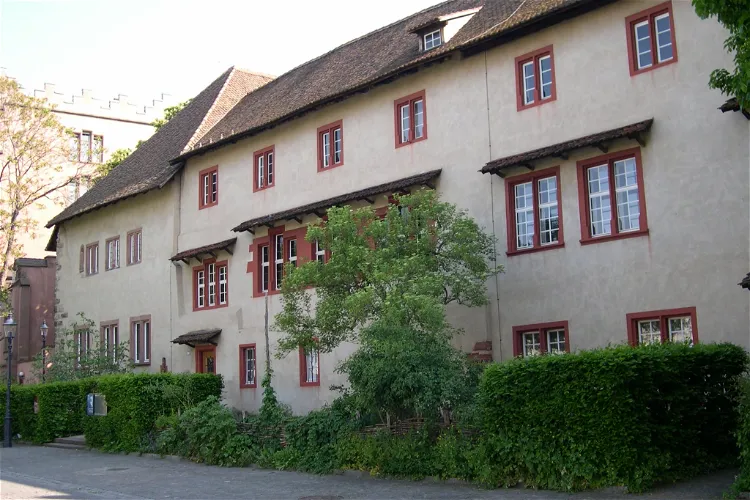
Museum Kleines Klingental
BaselThe Museum Kleines Klingental, located in Basel, is housed in the original building of the former Klingental nunnery, which dates back to 1274. The museum was established in 1938/39 and was initially known as the "City and Cathedral Museum". This historical setting provides a unique backdrop for the museum's exhibits, offering visitors a glimpse into the past.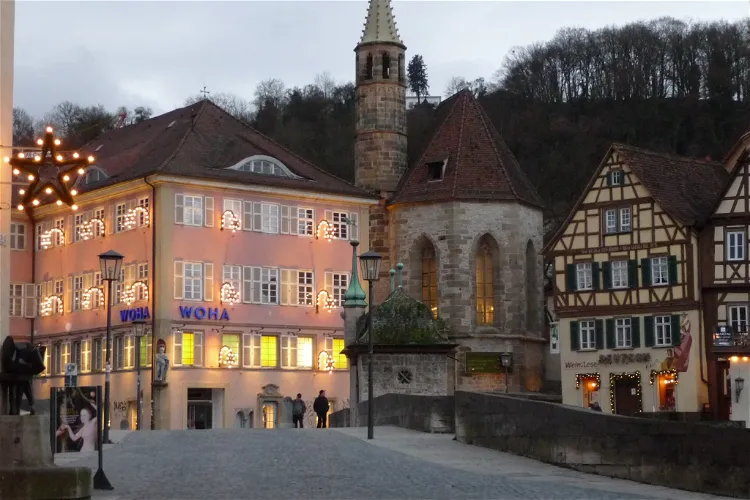
Johanniterkirche
Schwäbisch HallSince 2008, following extensive restorations, the Johanniterkirche has been repurposed as an exhibition hall. It now showcases a collection of paintings and sculptures from Old Masters, offering visitors a glimpse into the artistic heritage of the past.
Tynemouth Priory and Castle
TynemouthTynemouth Priory and Castle was once a monastery and a burial place of kings and saints. Visitors can explore the ruins, find tranquillity in the tiny chapel, take in the coastal views and enjoy a picnic in the grounds.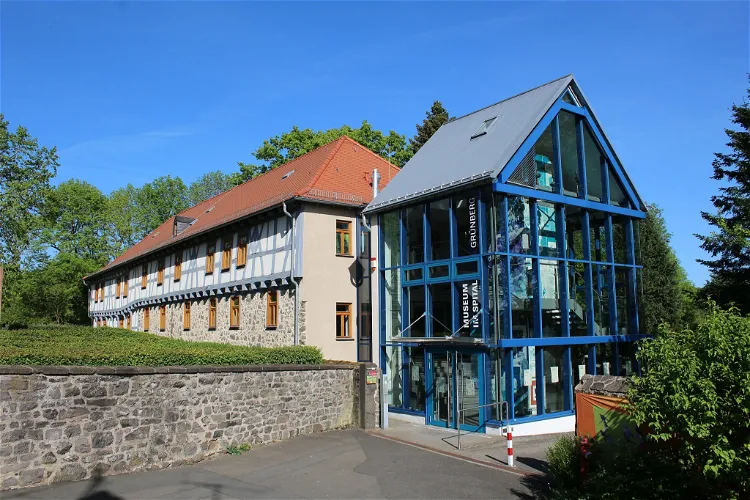
Museum im Spital Grünberg
GrünbergThe Museum im Spital, founded in 2007, is an ethnological museum situated in the former Augustinian monastery in the city of Grünberg. This location adds a historical touch to the museum, making it a unique place to explore the city's past and its ethnological aspects.
